# About
Name: Venzi
URL: https://venzi.ai/blog
# Navigation Menu
- Home: https://venzi.ai/
- Features: https://venzi.ai/features
- Team: https://venzi.ai/team
- Blogs: https://venzi.ai/blog/
- Get Demo: https://venzi.ai/request-demo
# Blog Posts
## Why 45% of Event Planners Use AI in 2025
Author: Unknown
Published: 2025-08-28
Category: AI & Event Technology
Meta Description: Discover why 45% of event planners use AI tools in 2025. Learn how AI transforms event planning, boosts ROI, and creates personalized attendee experiences.
Tags: event automation, event management tools, AI event planning
URL: https://venzi.ai/blog/why-event-planners-use-ai-2025
The event planning industry is experiencing a seismic shift. While you're still manually coordinating vendors and creating promotional content from scratch, nearly half of your competitors are leveraging artificial intelligence to streamline their workflows, personalize attendee experiences, and deliver measurably better results.
According to recent industry data, 45% of event organizers and directors are actively using AI tools to enhance operations and create personalized attendee experiences. If you're not among them, you're not just missing out on efficiency gains – you're falling behind in an increasingly competitive landscape.
The AI Advantage: What Your Competitors Are Already Doing
---------------------------------------------------------
Event planners who have embraced AI aren't just working faster; they're working smarter. Here's what they're achieving:
Automated Workflow Management: Instead of spending hours on repetitive tasks like venue selection, schedule coordination, and attendee management, AI-powered tools are handling these automatically. Machine learning algorithms now streamline everything from initial planning phases to post-event analytics.
Personalized Attendee Experiences: AI-powered recommendation systems are creating personalized experiences at scale. Rather than delivering generic event experiences, smart planners are using AI to match attendees with relevant sessions, networking opportunities, and content based on their preferences and behavior patterns.
Enhanced Marketing ROI: AI tools are revolutionizing event promotion by generating targeted social media posts, optimizing email campaigns, and creating compelling promotional content in minutes rather than hours. Event marketers using AI report significantly higher engagement rates and attendance numbers.
Predictive Analytics: Forward-thinking planners are using AI to predict attendee behavior, optimize logistics, and prevent potential issues before they occur. This proactive approach results in smoother events and higher satisfaction scores.
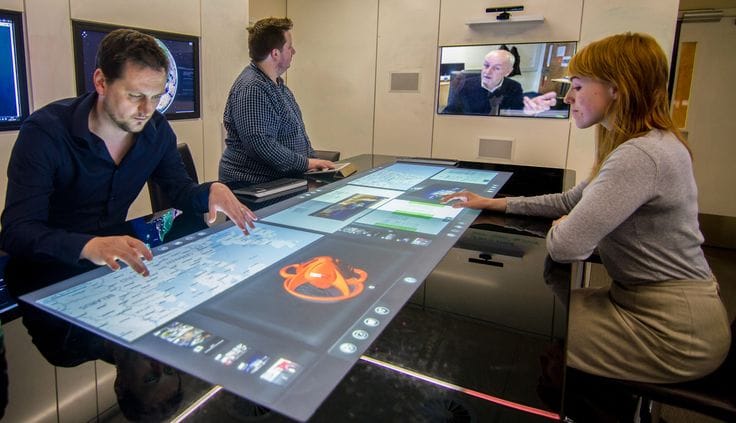
The Cost of Staying Behind
--------------------------
While 45% of planners are racing ahead with AI integration, the remaining 55% are facing increasing challenges:
* **Time Inefficiency:** Manual processes that competitors complete in minutes are taking hours.
* **Higher Operational Costs:** Labor-intensive workflows are driving up expenses while AI-powered competitors operate leaner.
* **Reduced Competitiveness:** Events without personalization and smart features feel dated compared to AI-enhanced experiences.
* **Missed Insights:** Without AI analytics, valuable attendee data and improvement opportunities go unnoticed.
The gap between AI-adopters and traditional planners is widening rapidly. As AI tools become more sophisticated and accessible, this divide will only increase.
**Breaking Down the AI Tools Your Competitors Use**
---------------------------------------------------
Research reveals that successful event planners are integrating multiple AI solutions:
* **Content Generation Tools:** Platforms like ChatGPT and Jasper are being used to create event descriptions, speaker bios, promotional copy, and post-event recaps. What once took days now happens in hours.
* **Visual Content Creation:** AI art generators and video creation tools like Lumen5 are producing professional-quality promotional materials without expensive design agencies or lengthy production timelines.
* **Automated Communication:** AI-powered chatbots and email systems are handling attendee inquiries, sending personalized reminders, and managing registration processes 24/7.
* **Data Analysis:** Advanced AI analytics platforms are processing attendee feedback, tracking engagement metrics, and providing actionable insights for future events.
* **Workflow Automation:** Comprehensive platforms are connecting all these elements, creating seamless workflows that require minimal human intervention.
### **The Shift from ROI to ROR: Why Relationships Matter More Than Ever**
The most sophisticated event planners are using AI to track not just traditional Return on Investment (ROI), but Return on Relationships (ROR). AI tools now measure relationship building, networking success, and long-term engagement – metrics that matter more than ever in today's experience-driven economy.
This shift represents a fundamental change in how event success is measured. While traditional planners focus on attendance numbers and immediate revenue, AI-powered planners are building sustainable relationships that drive long-term business value.
**Making the Leap: Your AI Integration Strategy**
-------------------------------------------------
The good news? It's not too late to join the 45% of planners leading the AI revolution. Here's how to start:
**Start Small:** Begin with one area where AI can make an immediate impact – content creation, attendee management, or promotional activities.
**Choose Integrated Solutions:** Rather than juggling multiple tools, look for platforms that combine AI capabilities with comprehensive event management features.
**Focus on Learning:** AI tools improve with use. The sooner you start, the better your results become.
**Measure Everything:** Use AI analytics to track not just what you've always measured, but new metrics like attendee engagement depth and networking success.
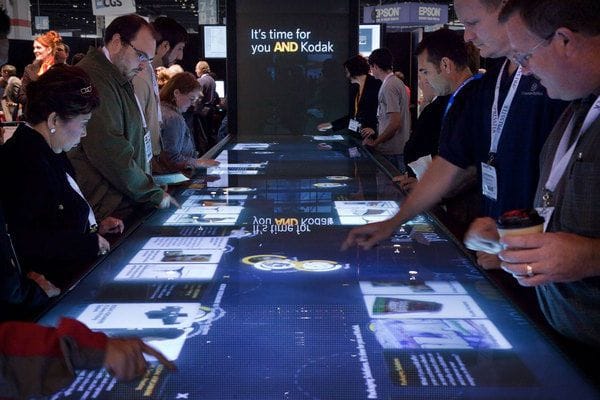
**The Future Belongs to AI-Powered Events**
-------------------------------------------
The question isn't whether AI will transform [event planning](https://venzi.ai/blog/september-events-ai-powered-30-day-event-creation/) – it already has. The question is whether you'll be part of the 45% leading this transformation or remain among the 55% struggling to catch up.
Every day you delay adoption, the competitive gap grows wider. Your competitors are already delivering more personalized experiences, operating more efficiently, and achieving better results. The technology that seemed futuristic just months ago is now standard practice for nearly half the industry.
The choice is yours: evolve with the industry or watch from the sidelines as AI-powered competitors reshape what attendees expect from events. With the right AI tools and strategy, you can join the ranks of successful planners who are not just keeping up with change – they're driving it.
**Ready to join the AI revolution in event planning? Discover how venzi.ai can transform your event management workflow and deliver the personalized experiences today's attendees demand.**
---
This blog is powered by Superblog. Visit https://superblog.ai to know more.
---
## September Events Made Easy: AI-Powered 30-Day Event Creation
Author: Unknown
Published: 2025-08-23
Category: Event Planning & Technology
Meta Title: AI Event Planning: 30-Day September Launch Guide
Meta Description: Discover how AI event creation transforms rapid event planning. Learn to execute quick event setup and automated event planning for successful 30-day event launch this September. Get expert tips.
Tags: rapid event planning, AI event creation, 30-day event launch
URL: https://venzi.ai/blog/september-events-ai-powered-30-day-event-creation
As September arrives with its back-to-school energy and fall momentum, event planners face the familiar challenge of creating memorable experiences under tight deadlines. Whether you're organizing a corporate retreat, community festival, or product launch, the traditional event planning timeline often feels impossibly long. Enter AI-powered event creation—a game-changing approach that's transforming rapid event planning from a stressful sprint into a streamlined, efficient process.
The Traditional Event Planning Bottleneck
-----------------------------------------
Conventional wisdom suggests that quality events require months of meticulous planning. From venue scouting and vendor coordination to marketing campaigns and attendee management, the traditional approach involves countless moving parts that seem to demand extensive lead times. This creates a significant barrier for organizations looking to capitalize on timely opportunities or respond quickly to market demands.
The problem becomes particularly acute during busy seasons like September, when venues book quickly and vendors' schedules fill up with back-to-school and fall campaign events. Event planners often find themselves caught between the desire to create exceptional experiences and the reality of compressed timelines. This is where AI event creation steps in to revolutionize the entire process.
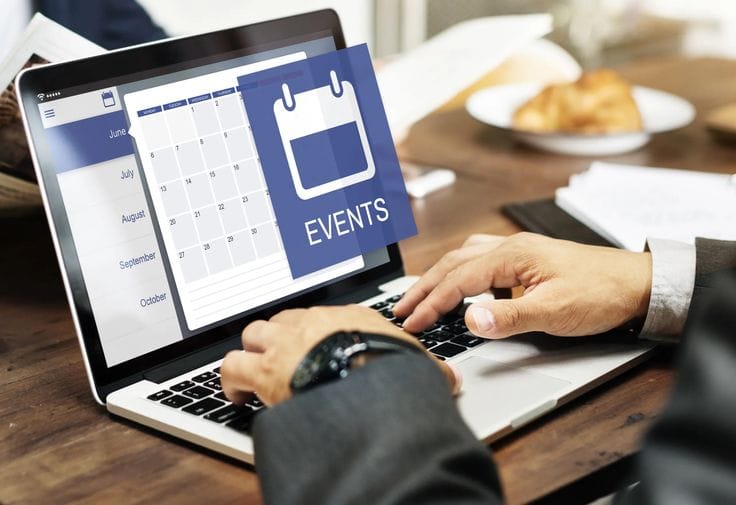
How AI Transforms Rapid Event Planning
--------------------------------------
Artificial intelligence is reshaping every aspect of quick event setup, from initial concept to final execution. AI-powered platforms can analyze vast databases of venues, vendors, and event components in seconds, identifying optimal combinations based on your specific requirements, budget, and timeline. What once took weeks of research and phone calls now happens in minutes.
The technology excels at pattern recognition and predictive analytics, learning from thousands of successful events to suggest proven combinations of elements that work well together. This means your automated event planning process isn't just faster—it's informed by data-driven insights that increase the likelihood of success.
AI algorithms can instantly cross-reference availability across multiple vendors, identify potential conflicts in scheduling, and even predict attendance patterns based on historical data and current market trends. This level of analysis would be impossible for human planners to achieve manually within a 30-day event launch timeline.
The 30-Day Event Creation Framework
-----------------------------------
The magic of [AI-powered event planning](https://venzi.ai/blog/ai-event-roi-maximize-investment-smart-optimization/) lies in its ability to compress traditional timelines without sacrificing quality. Here's how the process typically unfolds:
**Week 1: Intelligent Foundation Setting**
AI systems begin by analyzing your event goals, target audience, and constraints to generate a comprehensive event blueprint. Advanced algorithms scout and pre-qualify venues, vendors, and service providers, creating a curated shortlist of options that match your criteria. Meanwhile, automated market research tools analyze competitor events and industry trends to inform your strategy.
**Week 2: Rapid Resource Assembly**
With the foundation in place, AI tools coordinate simultaneous outreach to multiple vendors, automatically generating customized RFPs and managing the bidding process. Smart scheduling algorithms optimize vendor meetings and venue tours, while predictive pricing models ensure you get competitive rates. The system continuously refines recommendations based on real-time availability and feedback.
**Week 3: Streamlined Execution Planning**
AI-powered project management platforms create detailed timelines, assign tasks automatically, and identify potential bottlenecks before they occur. Marketing automation tools launch targeted campaigns across multiple channels, while attendee management systems begin collecting registrations and preferences. Smart logistics algorithms optimize everything from catering quantities to room layouts.
**Week 4: Launch and Real-Time Optimization**
As the event approaches, AI systems monitor registration trends, weather patterns, and other variables that could impact attendance or logistics. Real-time adjustment capabilities allow for last-minute optimizations, while automated communication tools keep all stakeholders informed. On event day, smart monitoring systems track everything from check-in flows to social media sentiment.
### The Competitive Advantage of Fast Event Deployment
Organizations that master rapid event planning gain significant competitive advantages. They can respond quickly to market opportunities, capitalize on trending topics, and demonstrate agility that impresses clients and stakeholders. Fast event deployment also reduces the accumulation of planning stress, allowing teams to maintain creativity and enthusiasm throughout the process.
Moreover, the data generated by AI-powered planning creates valuable insights for future events. Each rapid deployment becomes a learning opportunity, building an organizational knowledge base that makes subsequent events even faster and more effective.
Overcoming Implementation Challenges
------------------------------------
While AI event creation offers tremendous benefits, successful implementation requires careful consideration of several factors. Teams need to balance automation with human creativity, ensuring that efficiency gains don't come at the expense of event personality and uniqueness. It's also crucial to maintain quality control standards and vendor relationships, even when working at accelerated speeds.
The key is to view AI as an enhancement to human planning capabilities rather than a replacement. The technology handles routine tasks and data analysis, freeing planners to focus on creative elements and strategic decisions that truly differentiate great events.
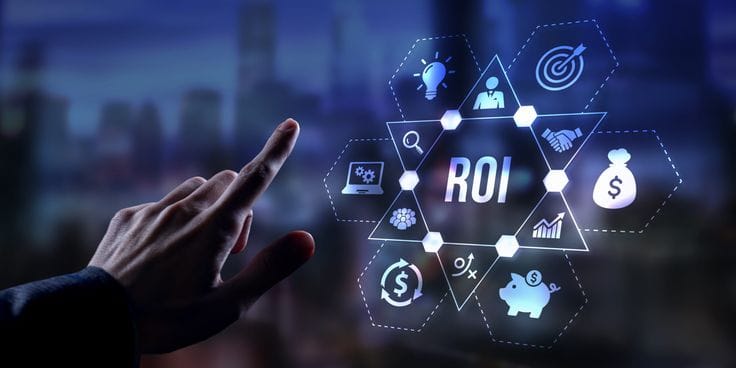
The Future of Event Planning
----------------------------
As AI technology continues to advance, we can expect even more sophisticated capabilities in automated event planning. Machine learning algorithms will become better at predicting attendee preferences, virtual and augmented reality tools will enable more immersive planning experiences, and integration with IoT devices will provide unprecedented event monitoring and optimization capabilities.
For event planners willing to embrace these tools, the future promises not just faster event creation, but better events created faster. The 30-day event launch is just the beginning—as AI capabilities expand, we may soon see high-quality events planned and executed in even shorter timeframes, opening up entirely new possibilities for responsive, agile event marketing and community engagement.
---
This blog is powered by Superblog. Visit https://superblog.ai to know more.
---
## The ROI Revolution: How AI Maximizes Event Investment
Author: Unknown
Published: 2025-08-16
Category: Event Technology
Meta Title: AI Event ROI: Maximize Investment with Smart Event Optimization
Meta Description: Discover how AI revolutionizes event ROI through predictive optimization, intelligent budgeting, and real-time performance monitoring for maximum returns.
Tags: Event ROI optimization, AI event management
URL: https://venzi.ai/blog/ai-event-roi-maximize-investment-smart-optimization
The events industry has undergone a seismic shift in recent years. What once relied heavily on intuition and best-guess budgeting has evolved into a data-driven powerhouse where artificial intelligence transforms how organizations plan, execute, and measure event success. This revolution isn't just changing the game—it's rewriting the rules entirely, delivering unprecedented returns on investment that were previously impossible to achieve.
The Traditional Event Investment Challenge
------------------------------------------
Event planning has historically been a high-stakes gamble. Organizations invest millions annually in conferences, trade shows, product launches, and corporate gatherings without concrete assurance of returns. Traditional approaches involved estimating attendance, guessing at engagement levels, and making budget decisions based on past performance rather than predictive insights. This reactive methodology frequently resulted in overspending in some areas while underinvesting in others, leaving significant ROI potential untapped.
The challenge becomes exponentially complex when considering the numerous variables impacting event success: venue selection, timing, pricing strategies, marketing channels, speaker lineups, catering choices, technology requirements, and attendee experience design. Without sophisticated analysis tools, event planners struggled to optimize these interconnected elements effectively, often discovering what worked or didn't only after substantial investments were already made and the event concluded.
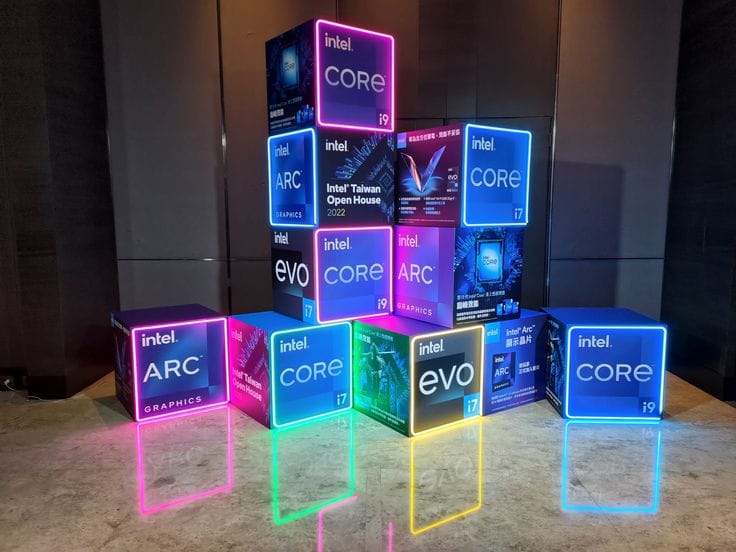
AI-Powered Predictive Event Optimization
----------------------------------------
Modern AI systems are revolutionizing this landscape through predictive event optimization. Machine learning algorithms analyze vast datasets encompassing historical event performance, market trends, demographic patterns, economic indicators, and competitive landscapes to forecast outcomes with remarkable accuracy. These intelligent systems can predict attendance rates, estimate revenue potential, identify optimal pricing thresholds, and recommend the most effective budget allocation strategies before a single dollar is spent.
Smart event investment begins with comprehensive AI-driven market analysis examining competitor events, industry calendars, economic cycles, and seasonal trends to identify optimal timing windows. Advanced algorithms process social media sentiment, search volume data, industry publications, news cycles, and consumer behavior patterns to gauge market interest and predict demand for specific event themes, formats, or speakers. This multi-layered analysis enables organizers to make informed decisions about event scale, pricing structures, marketing approaches, and resource allocation from the earliest planning stages, significantly reducing financial risk.
Intelligent Event Budgeting Strategies
--------------------------------------
AI investment analysis transforms budgeting from guesswork into precision science. Intelligent systems evaluate historical spending patterns across similar events, analyzing thousands of data points to identify which investments consistently deliver the highest returns. These sophisticated platforms can recommend optimal budget distributions between venue costs, marketing expenditures, speaker fees, technology investments, catering, and ancillary services based on predicted attendee behavior, engagement patterns, and conversion probabilities.
Dynamic pricing algorithms represent a game-changing advancement, adjusting ticket prices in real-time based on demand fluctuations, competitor pricing, market conditions, early bird trends, and demographic targeting. This approach maximizes revenue while maintaining optimal attendance levels, ensuring events reach their full potential without pricing out target audiences. AI systems also identify cost-saving opportunities by analyzing vendor performance histories, identifying negotiating leverage points, monitoring market rates, and suggesting alternative approaches that maintain quality while reducing expenses substantially.
Real-Time Optimization and Performance Monitoring
-------------------------------------------------
The true power of [AI event ROI](https://venzi.ai/blog/ai-event-planning-integration/) optimization emerges during live events through real-time monitoring and adjustment capabilities. Advanced systems track attendee engagement, session popularity, networking activity, and satisfaction levels as they unfold, enabling immediate course corrections. If certain sessions are underperforming, AI can suggest promotional strategies or content adjustments to boost attendance. When networking areas show low utilization, intelligent systems can recommend layout changes or activity modifications to improve engagement.
These real-time insights extend beyond immediate fixes to inform future event planning. AI platforms continuously learn from each interaction, building increasingly sophisticated models that improve prediction accuracy and optimization recommendations over time. This creates a virtuous cycle where each event becomes more successful than the last, maximizing long-term ROI across an organization's entire event portfolio.
### Measuring and Maximizing Long-Term Impact
Traditional event ROI measurement focused predominantly on immediate metrics like attendance numbers, direct revenue, and basic satisfaction scores. AI-powered analysis reveals the complete picture, tracking comprehensive long-term impacts including lead nurturing progression, sales pipeline development, brand sentiment changes, social media engagement increases, customer lifetime value improvements, and strategic partnership development outcomes. These comprehensive insights demonstrate events' true value extending far beyond immediate financial returns.
Advanced predictive models identify which specific event elements contribute most significantly to long-term business objectives, enabling organizers to double down on high-impact investments while systematically eliminating low-value activities. This strategic approach ensures every dollar spent contributes meaningfully to organizational goals rather than simply filling agenda time or meeting traditional expectations without measurable outcomes.

The Future of Smart Event Investment
------------------------------------
As AI technology continues advancing, the potential for event ROI optimization grows exponentially. Emerging capabilities include personalized attendee experience creation, automated vendor selection and negotiation, and predictive maintenance for event technology. Organizations embracing these innovations today position themselves at the forefront of the industry's evolution.
The ROI revolution powered by AI isn't just about improving individual events—it's about fundamentally transforming how organizations approach event investment strategy. By leveraging predictive optimization, intelligent budgeting, and comprehensive performance analysis, event organizers can consistently deliver exceptional returns while creating more engaging, valuable experiences for attendees.
The future belongs to those who embrace data-driven decision making and AI-powered optimization. In this new landscape, maximizing event investment isn't just possible it's inevitable for those willing to harness the power of intelligent technology.
---
This blog is powered by Superblog. Visit https://superblog.ai to know more.
---
## Breaking Down Event Planning Silos with AI Integration
Author: Unknown
Published: 2025-08-13
Category: Event Technology
Meta Title: AI Event Integration: Breaking Down Planning Silos
Meta Description: Transform event planning with AI integration platforms. Eliminate silos, streamline workflows, and create seamless experiences for better ROI.
URL: https://venzi.ai/blog/ai-event-planning-integration
Event planning has long been plagued by fragmented workflows, where different aspects of the process operate in isolation. Marketing teams work separately from logistics coordinators, venue managers rarely communicate directly with catering services, and attendee management systems don't sync with registration platforms. This siloed approach creates inefficiencies, communication gaps, and missed opportunities that can make or break an event's success.
The emergence of AI-powered integrated event management platforms is revolutionizing how professionals approach event planning, creating seamless connections between previously disconnected processes and stakeholders.
The Cost of Fragmented Event Management
---------------------------------------
Traditional event planning often resembles a complex puzzle where pieces don't naturally fit together. Marketing departments might launch campaigns without real-time visibility into venue capacity constraints. Registration systems may not automatically communicate dietary restrictions to catering teams. Budget tracking happens in isolation from vendor negotiations, leading to cost overruns and last-minute scrambles.
These silos create multiple pain points. Data gets duplicated across systems, increasing the risk of errors and inconsistencies. Communication breakdowns lead to missed deadlines and confused stakeholders. Most critically, the lack of integrated insights prevents planners from making informed decisions that could optimize both attendee experience and operational efficiency.

The Power of Unified Event Platforms
------------------------------------
Modern [AI event integration](https://venzi.ai/blog/ai-vs-traditional-event-platforms-smb-comparison/) platforms are breaking down these barriers by creating centralized ecosystems where all event components communicate seamlessly. These unified event platforms serve as command centers that orchestrate every aspect of event management, from initial concept through post-event analysis.
Rather than juggling multiple disconnected tools, event professionals can now work within integrated environments where marketing automation syncs with venue management, attendee data flows automatically to catering systems, and budget tracking updates in real-time based on vendor negotiations. This holistic approach eliminates the information gaps that have historically caused events to fall short of their potential.
AI as the Integration Engine
----------------------------
Artificial intelligence serves as the connective tissue that makes seamless event planning possible. AI systems can analyze patterns across different event components, identifying optimization opportunities that human planners might miss when working within individual silos.
For example, Artificial Intelligence AI can correlate weather forecasts with historical attendance data to recommend optimal venue capacity adjustments. It can analyze dietary preference trends from registration data to automatically suggest catering modifications. Machine learning algorithms can even predict potential scheduling conflicts by analyzing vendor availability patterns and suggest alternative arrangements before problems arise.
The true power of AI tool integration lies in its ability to process vast amounts of interconnected data simultaneously. While human planners excel at creative problem-solving and relationship management, AI handles the complex task of maintaining awareness across all event variables, ensuring nothing falls through the cracks.
Streamlining Communication and Collaboration
--------------------------------------------
Integrated AI platforms transform how event teams collaborate. Instead of endless email chains and fragmented communication, stakeholders access shared dashboards that provide real-time visibility into all project aspects. Vendors can update their status directly within the system, triggering automatic notifications to relevant team members.
This transparency creates accountability and reduces the miscommunication that often derails event timelines. When the venue coordinator updates capacity constraints, the marketing team immediately sees updated parameters for their promotional campaigns. When registration numbers spike, catering and logistics teams automatically receive alerts to adjust their preparations accordingly.
### Data-Driven Decision Making
All-in-one event AI platforms generate unprecedented insights by analyzing data across all event touchpoints simultaneously. Instead of making decisions based on incomplete information from isolated systems, planners can access comprehensive analytics that reveal the true relationships between different event variables.
These insights enable more strategic decision-making. Planners can identify which marketing channels generate the highest-value attendees, understand how venue layout impacts networking effectiveness, and optimize resource allocation based on real-time demand patterns. The result is events that not only meet their objectives but exceed expectations through data-informed optimization.
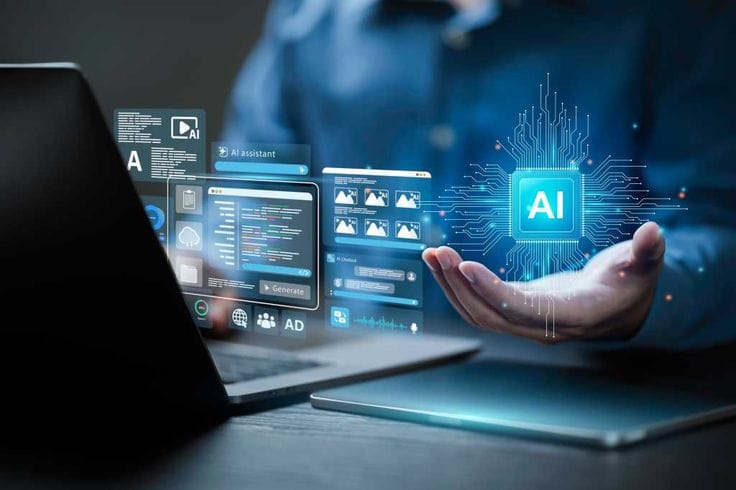
Implementation Strategies for AI Integration
--------------------------------------------
Successfully implementing integrated event management requires careful planning and stakeholder buy-in. Organizations should begin by mapping their current event processes to identify the most problematic silos and integration opportunities. Training teams on unified platforms ensures smooth adoption and maximizes the benefits of AI tool integration.
Change management becomes absolutely crucial as teams adjust from specialized tools to comprehensive platforms. However, the efficiency gains typically justify the initial learning curve, especially as AI systems become more intuitive and user-friendly with each technological advancement.
The Future of Seamless Event Planning
-------------------------------------
As AI technology continues advancing, integrated event management platforms will become even more sophisticated. Predictive analytics will enable proactive problem-solving, while automated workflows will handle routine tasks, freeing planners to focus on creative and strategic elements that create memorable experiences.
The future belongs to event professionals who embrace unified platforms and leverage AI integration to create seamless, efficient, and successful events. By breaking down silos and harnessing the power of connected systems, the event industry is entering a new era of precision, efficiency, and exceptional attendee experiences.
---
This blog is powered by Superblog. Visit https://superblog.ai to know more.
---
## AI vs. Traditional Event Platforms: The Ultimate Comparison
Author: Unknown
Published: 2025-08-07
Category: Event Management Technology
Meta Title: AI vs Traditional Event Platforms: SMB Event Management Guide 2025
Meta Description: Compare AI-powered and traditional event platforms for SMBs. Discover cost-effective event software solutions, features, and which simple event platform fits your business needs best.
Tags: SMB event management, AI event platforms, event management comparison
URL: https://venzi.ai/blog/ai-vs-traditional-event-platforms-smb-comparison
Small and medium-sized businesses (SMBs) today face a critical decision when choosing event management solutions: stick with traditional platforms they know or embrace AI-powered alternatives that promise to revolutionize how events are planned and executed. This comprehensive comparison will help you understand which approach best serves your SMB event management needs in an increasingly competitive marketplace.
The Traditional Event Platform Landscape
----------------------------------------
Traditional event platforms have dominated the market for years, offering familiar interfaces and established workflows that many businesses have come to rely on. These systems typically provide basic registration management, email communication tools, standard reporting features, and straightforward event logistics coordination. For many SMBs, these platforms represent the comfort zone—predictable functionality with transparent pricing models that are easy to budget for and understand.
However, traditional platforms often require significant manual input and constant oversight from event organizers. Teams spend countless hours on repetitive tasks like attendee segmentation, follow-up scheduling, manual data analysis, and troubleshooting basic technical issues. While these systems reliably get the job done, they rarely optimize processes or provide the intelligent insights that could transform event outcomes and drive meaningful business growth.
The limitations become particularly apparent when managing multiple events simultaneously or trying to scale operations. Traditional systems force organizers to repeat the same manual processes for each event, creating bottlenecks that can limit growth potential and strain already busy teams.
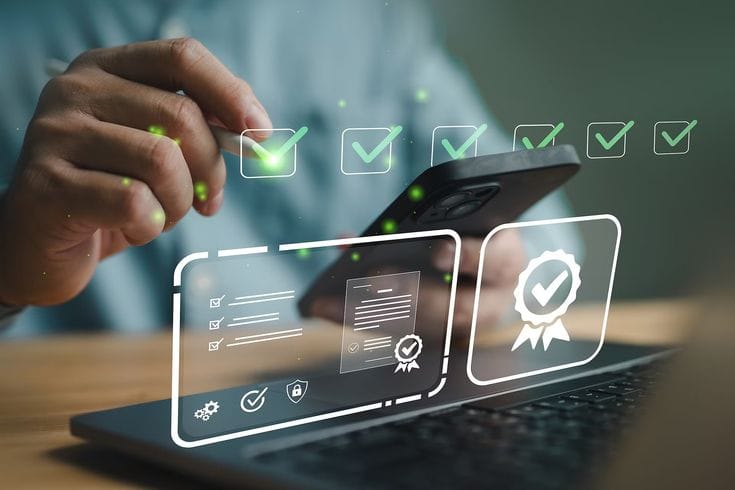
The AI Revolution in Event Management
-------------------------------------
AI-powered event platforms are fundamentally reshaping the industry by automating complex tasks and providing intelligent recommendations that were previously impossible. These sophisticated systems learn from historical data patterns, predict attendee behavior with remarkable accuracy, and optimize event experiences in real-time based on ongoing engagement metrics. For SMBs seeking a simple event platform that works smarter rather than harder, AI represents a significant technological leap forward.
Modern AI platforms can automatically personalize attendee experiences based on individual preferences and past behavior, suggest optimal scheduling based on engagement patterns and industry best practices, and even predict which marketing channels will drive the highest registration rates for specific target demographics. This level of sophisticated automation and insight was previously available only to enterprise-level organizations with dedicated event teams and substantial technology budgets.
These intelligent systems also excel at identifying potential issues before they become problems, automatically adjusting marketing campaigns based on performance data, and providing actionable insights that help organizers make data-driven decisions throughout the event lifecycle.
### Cost-Effectiveness: Breaking Down the Real Numbers
When evaluating cost-effective event software, SMBs must carefully consider both upfront costs and long-term value proposition. Traditional platforms often appear more affordable initially, featuring straightforward monthly subscriptions or per-event pricing that seems budget-friendly. However, hidden costs quickly emerge through the substantial time investment required for manual tasks, the opportunity cost of suboptimal event performance, and the potential need for additional staff to manage growing event complexity.
AI-powered platforms may require higher upfront investments, but they consistently deliver remarkable return on investment through intelligent automation and continuous optimization. By dramatically reducing manual work hours and significantly improving event outcomes, these systems often prove more cost-effective over time. Industry studies show SMBs typically save 15-20 hours per event while achieving 25-30% higher attendee satisfaction rates, translating to measurable business impact and improved customer relationships.
The long-term cost benefits become even more pronounced as businesses scale, with AI systems maintaining efficiency levels that would require substantial additional staffing with traditional approaches.
Feature Comparison: Traditional vs. AI-Powered Solutions
--------------------------------------------------------
Traditional event platforms excel in reliability and straightforward functionality that teams can quickly understand and implement. They offer proven registration systems, basic email marketing capabilities, standard reporting dashboards, and reliable technical support. These features work exceptionally well for organizations running simple, recurring events with minimal customization requirements and predictable attendee patterns.
AI platforms provide all essential traditional features while adding powerful intelligent automation layers that transform the event management experience. They offer sophisticated predictive analytics, automated attendee segmentation based on behavior patterns, dynamic content personalization that adapts in real-time, and continuous optimization recommendations that improve with each event. For SMBs managing multiple events or seeking to maximize attendee engagement and business outcomes, these advanced features provide substantial competitive advantages in crowded markets.
Implementation and Learning Curves
----------------------------------
Traditional platforms typically require minimal training time, making them particularly attractive for small teams with limited technical resources and tight deadlines. Most staff members can become proficient within days, and the familiar interfaces significantly reduce resistance to adoption across different team members and skill levels.
AI platforms have evolved dramatically to become increasingly user-friendly, with many now offering intuitive interfaces that rival traditional systems in simplicity. While there may be a slightly steeper initial learning curve, the long-term benefits of automated processes and intelligent insights often far outweigh the initial investment in training time and system familiarization.

Making the Right Choice for Your SMB
------------------------------------
The decision between traditional and AI-powered event platforms ultimately depends on your specific business needs, growth trajectory, available resources, and strategic vision. Traditional platforms suit organizations that prioritize simplicity over optimization and operate with limited budgets for event technology investments.
[AI-powered platforms](https://venzi.ai/blog/ai-powered-event-personalization-future-engagement/) are ideal for SMBs that view events as strategic growth drivers and want to maximize their investment through intelligent automation and data-driven optimization. These systems particularly benefit organizations managing multiple events, targeting diverse audiences, or operating in competitive markets where attendee experience differentiation directly impacts business success and customer retention.
---
This blog is powered by Superblog. Visit https://superblog.ai to know more.
---
## The Future of Events: AI-Powered Personalization and Engagement
Author: Unknown
Published: 2025-08-05
Category: Event Technology
Meta Title: AI Event Personalization: Transforming Attendee Engagement
Meta Description: Discover how AI event personalization transforms conferences with smart engagement, automation, and tailored recommendations to boost attendee experience and event ROI.
Tags: AI event personalization, smart attendee engagement, automated event experiences
URL: https://venzi.ai/blog/ai-powered-event-personalization-future-engagement
The events industry stands at a transformative crossroads. As attendee expectations soar and competition intensifies, event organizers are turning to artificial intelligence to create more meaningful, personalized experiences. AI event personalization is revolutionizing how we think about conferences, trade shows, festivals, and corporate gatherings, moving beyond one-size-fits-all approaches to deliver tailored experiences that resonate with each individual participant.
The Evolution of Event Engagement
---------------------------------
Traditional events have long struggled with a fundamental challenge: how to engage diverse audiences with varying interests, expertise levels, and objectives. A tech conference might attract seasoned developers alongside marketing professionals, each seeking different value from their attendance. Until recently, organizers relied on broad programming and hoped for the best, often leaving significant portions of their audience underwhelmed.
Smart attendee engagement powered by AI is changing this paradigm entirely. By analyzing attendee data, behavioral patterns, and real-time interactions, artificial intelligence can predict what each participant wants most from their event experience and deliver it seamlessly.
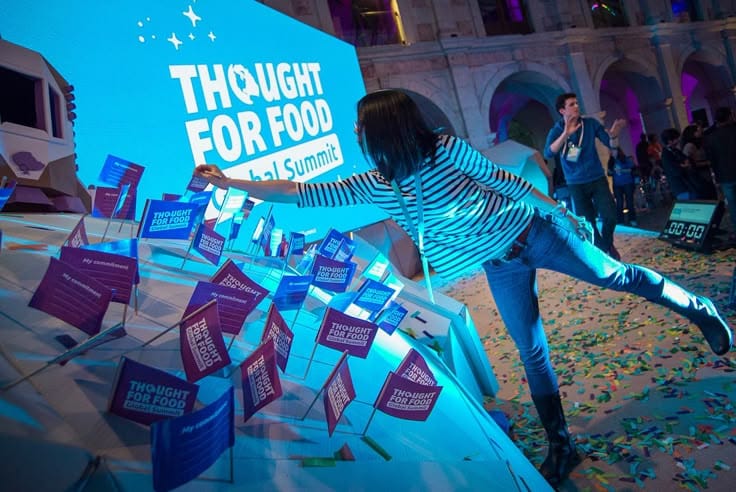
How AI Event Personalization Works
----------------------------------
The foundation of AI-driven event personalization lies in data collection and analysis. Modern event platforms gather information from registration forms, past attendance records, social media profiles, and in-app behaviors. Machine learning algorithms process this data to create detailed attendee profiles that go far beyond basic demographics.
These intelligent systems track how attendees interact with event content, which sessions they attend, how long they stay, and what networking opportunities they pursue. The AI continuously learns and refines its understanding of each participant's preferences, creating increasingly accurate personalization over time.
Automated event experiences then spring into action, delivering customized recommendations for sessions, networking matches, and even dining options. The technology works invisibly in the background, ensuring that personalization feels natural rather than intrusive.
### Real-World Applications Transforming Events
Dynamic Session Recommendations: AI analyzes an attendee's professional background, interests, and goals to suggest the most relevant sessions. A marketing professional interested in emerging technologies might receive recommendations for AI marketing workshops while skipping highly technical coding sessions.
Intelligent Networking: Smart algorithms identify potential connections based on complementary skills, shared interests, or business objectives. Instead of random networking, attendees receive targeted introductions to people who could genuinely benefit their professional development.
Personalized Content Delivery: Event apps powered by AI curate content feeds, displaying the most relevant announcements, updates, and resources for each user. This ensures attendees never miss important information while avoiding notification fatigue.
Adaptive Learning Paths: For educational events, AI creates personalized learning journeys that adjust based on attendee comprehension and engagement levels. If someone struggles with advanced concepts, the system might recommend prerequisite sessions or supplementary materials.
Real-Time Experience Optimization: AI monitors crowd flows, session popularity, and attendee satisfaction in real-time, making dynamic adjustments to improve the overall experience. This might include opening additional networking spaces or adjusting presentation formats based on audience engagement.
The Benefits Driving Adoption
-----------------------------
Organizations implementing AI event personalization report remarkable improvements in key metrics. Attendee satisfaction scores increase significantly when participants feel their time is valued and their specific needs are addressed. Higher engagement levels translate directly into better return on investment for both organizers and sponsors.
Smart attendee engagement also reduces the overwhelming nature of large events. Instead of feeling lost in a sea of options, participants receive clear, personalized guidance that helps them maximize their experience. This leads to higher retention rates and stronger word-of-mouth marketing.
For event organizers, AI provides unprecedented insights into attendee behavior and preferences. This data proves invaluable for future event planning, sponsor value demonstrations, and continuous improvement initiatives.
Overcoming Implementation Challenges
------------------------------------
Despite its promise, AI event personalization faces several challenges. Privacy concerns top the list, as attendees worry about how their data is collected and used. Successful implementations prioritize transparency, clearly communicating data usage policies and providing attendees control over their information.
Technical complexity presents another hurdle. Integrating AI systems with existing event technology requires careful planning and often significant investment. However, the rapid development of user-friendly AI platforms is making implementation more accessible to organizations of all sizes.
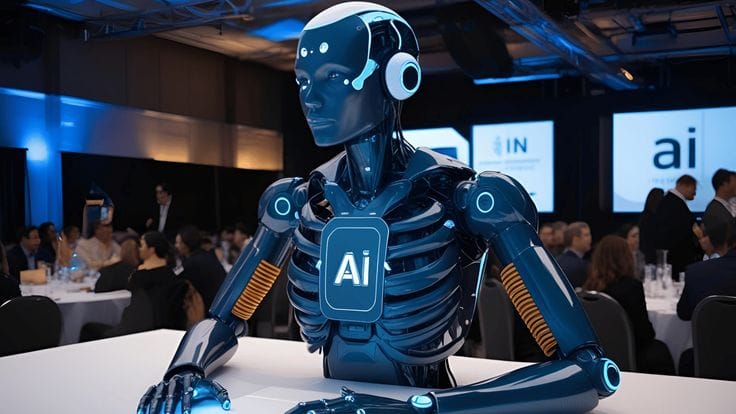
Looking Ahead: The Future Landscape
-----------------------------------
The future of automated event experiences promises even more sophisticated personalization. Emerging technologies like augmented reality and voice interfaces will create new opportunities for tailored interactions. Predictive analytics will become so refined that AI might anticipate attendee needs before they're even consciously aware of them.
As [AI event personalization](https://venzi.ai/blog/enterprise-event-platforms-overkill-modern-businesses/) matures, we can expect to see the emergence of truly adaptive events that reshape themselves in real-time based on collective attendee behavior and feedback. The boundary between physical and digital experiences will continue to blur, creating hybrid events that leverage the best of both worlds.
The events industry is embracing a future where every attendee feels like the event was designed specifically for them. Through intelligent automation and thoughtful implementation, AI-powered personalization is transforming events from generic gatherings into powerful, personalized experiences that drive real value for all participants.
---
This blog is powered by Superblog. Visit https://superblog.ai to know more.
---
## Why Enterprise Event Platforms Are Overkill for Modern Businesses
Author: Unknown
Published: 2025-08-04
Category: Business Software
Meta Title: Why Enterprise Event Platforms Are Overkill for SMBs
Meta Description: Discover why simple event platforms work better for SMBs than complex enterprise solutions. Learn about cost-effective event software alternatives.
Tags: SMB event management, simple event platform, cost-effective event software
URL: https://venzi.ai/blog/enterprise-event-platforms-overkill-modern-businesses
The event management software industry has a fundamental problem: it's designed for enterprises that no longer exist. While modern businesses are lean, agile, and efficiency-focused, the event platform market continues pushing bloated, overpriced solutions built for corporate giants of the past decade.
Small and medium-sized businesses (SMBs) find themselves trapped between two equally frustrating options: paying enterprise prices for sophisticated features they'll never use, or cobbling together free tools that leave critical gaps in their event management workflow. This mismatch between available solutions and actual business needs has created a significant opportunity gap in the market. It's time to acknowledge that the future of business events lies in elegant simplicity, not overwhelming complexity.
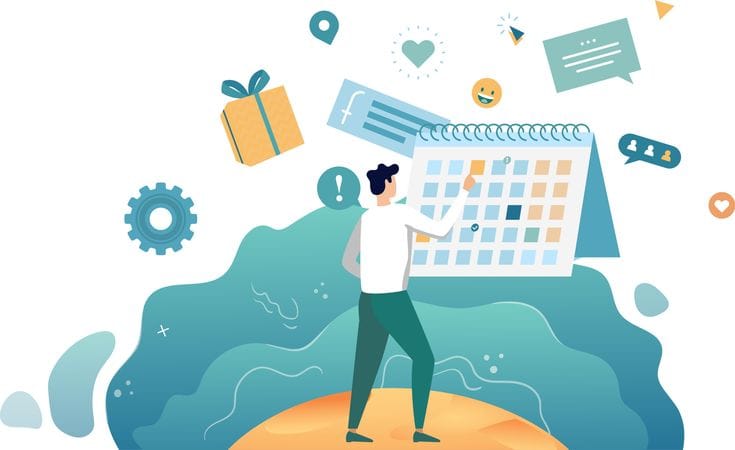
The Enterprise Trap
-------------------
Traditional enterprise event platforms were designed during an era when companies had dedicated event teams, unlimited budgets, and months to plan every gathering. These platforms include advanced analytics dashboards with dozens of metrics, multi-tier approval workflows that require executive sign-off, complex integrations with numerous software systems, and extensive customization options requiring technical expertise to implement effectively.
For small marketing agencies planning quarterly client meetups or startups organizing product launches, these features aren't just unnecessary—they're actively counterproductive. The time spent learning complex software interfaces and navigating byzantine menu systems could be better invested in actually connecting with attendees and creating genuinely memorable experiences that drive business results.
Consider the typical SMB event scenario: a lean team of 2-5 people organizing events for 20-200 attendees, working with tight timelines and even tighter budgets. They need to send professional invitations, track RSVPs accurately, manage a straightforward registration process, and collect essential attendee information. The entire planning process should take hours, not weeks of intensive software training and configuration.
The Real Cost of Complexity
---------------------------
The hidden costs of enterprise event platforms extend far beyond monthly subscription fees. Complex software requires extensive training time, ongoing maintenance, and often dedicated IT support to function properly. When platforms offer 50+ different features across multiple modules, team members spend more time navigating confusing menus than actually planning meaningful events.
Many SMBs report spending 40-60% of their event planning time simply managing the software itself—learning how to customize registration forms, troubleshooting integration issues with existing tools, and generating comprehensive reports containing far more data than anyone actually needs or has time to analyze. The software becomes the primary bottleneck, not the productivity solution it promises to be.
Truly effective event software should enhance productivity and streamline workflows, not drain precious resources. When small business owners can set up complete event registration systems in 15 minutes instead of 15 hours, that represents genuine value creation that directly impacts their bottom line.
### What Modern Businesses Actually Need
Modern [SMB event management](https://venzi.ai/blog/smart-event-analytics-ai-powered-insights/) requirements are surprisingly straightforward and focused. Most businesses need reliable platforms handling five core functions: easy invitation distribution, streamlined registration processes, basic attendee communication, simple check-in procedures, and minimal post-event follow-up capabilities.
The real magic isn't having hundreds of available features—it's having the essential features executed flawlessly with intuitive design. Registration forms that actually work seamlessly on mobile devices are infinitely more valuable than complex analytics dashboards that nobody has time to interpret or act upon. Automated reminder emails that arrive at precisely the right time are more valuable than sophisticated segmentation tools requiring marketing degrees to operate effectively.
Modern businesses increasingly value speed and flexibility over extensive customization options. They'd rather launch professional event registration pages in minutes using clean, proven templates than spend days building elaborate custom-branded experiences that only marginally improve their brand presentation to attendees.
The Rise of Right-Sized Solutions
---------------------------------
Smart event platform providers are beginning to recognize this shift. Instead of cramming more features into already bloated systems, they're focusing on perfecting the essentials. These right-sized solutions typically cost 60-80% less than enterprise alternatives while delivering better user experiences for typical SMB use cases.
The best simple event platforms share common characteristics: intuitive interfaces that require no training, mobile-first design that works seamlessly across devices, transparent pricing without hidden fees, and customer support that actually understands small business needs.
These platforms recognize that small businesses don't want to become event management experts—they want to focus on their core business while ensuring their events run smoothly. The software should be invisible, handling logistics efficiently so organizers can concentrate on creating valuable experiences for their attendees.

Making the Smart Choice
-----------------------
The shift toward simpler, more focused event platforms reflects a broader trend in business software. Companies are realizing that having fewer, better-executed features often delivers superior results than having comprehensive toolsets that overwhelm users.
For SMBs evaluating event management options, the question isn't "What can this platform do?" but rather "How quickly can I accomplish what I need to do?" The right solution should feel like a natural extension of your existing workflow, not a complex system that requires dedicated expertise to operate effectively.
The future belongs to businesses that can move quickly and adapt easily. Your event management platform should support that agility, not hinder it with unnecessary complexity and enterprise-grade overhead designed for problems you don't actually have.
---
This blog is powered by Superblog. Visit https://superblog.ai to know more.
---
## Smart Event Analytics: AI-Powered Insights That Actually Matter
Author: Unknown
Published: 2025-07-25
Category: Event Marketing
Meta Title: Smart Event Analytics: AI-Powered Insights That Matter
Meta Description: Discover how AI-powered event analytics deliver actionable insights beyond basic metrics. Transform your events with predictive intelligence & real-time data.
Tags: AI event analytics, predictive event insights, smart event data
URL: https://venzi.ai/blog/smart-event-analytics-ai-powered-insights
The events industry has undergone a radical transformation in recent years, with data becoming the cornerstone of successful event planning and execution. Traditional methods of measuring event success such as basic attendance numbers and post-event surveys are no longer sufficient in today's competitive landscape. Smart event analytics powered by artificial intelligence has emerged as the game-changer, delivering actionable insights that drive meaningful results and measurable ROI.
Beyond Surface-Level Metrics
----------------------------
While conventional event analytics focus on vanity metrics like registration numbers and social media mentions, AI-powered analytics dig deeper into the behavioral patterns and engagement dynamics that truly matter. These sophisticated systems analyze attendee journey mapping, session participation rates, networking interaction quality, and real-time sentiment analysis to paint a comprehensive picture of event success.
Smart analytics platforms can track micro-interactions that were previously invisible, including how long attendees spend in specific areas, which sessions generate the most post-event follow-up actions, and even facial expression analysis during presentations to gauge genuine interest levels. This granular data provides event professionals with unprecedented visibility into what resonates with their audience and what falls flat, enabling more strategic decision-making for future events.

Predictive Intelligence for Strategic Planning
----------------------------------------------
The real power of AI event analytics lies in its predictive capabilities. Machine learning algorithms analyze historical data patterns, attendee behavior trends, and external factors to forecast future event outcomes with remarkable accuracy. These predictive insights enable event planners to make data-driven decisions about everything from venue selection and speaker lineup to marketing strategies and budget allocation.
Predictive models can identify which marketing channels are most likely to attract high-value attendees, predict optimal session scheduling to maximize attendance, and even forecast potential logistical challenges before they occur. This proactive approach transforms event planning from a reactive scramble into a strategic, evidence-based process that consistently delivers superior results.
Real-Time Optimization and Adaptive Response
--------------------------------------------
Modern AI analytics platforms provide real-time monitoring and instant optimization recommendations during live events. Smart systems can detect emerging trends in attendee behavior, identify bottlenecks in event flow, and suggest immediate adjustments to improve the experience. If a particular session is underperforming, the system can recommend content modifications or promotional strategies to boost engagement instantly.
This real-time adaptability is particularly valuable for hybrid and virtual events, where traditional feedback mechanisms are limited. AI can monitor chat engagement, track virtual networking success rates, and analyze participation patterns to ensure remote attendees receive an equally compelling experience as in-person participants.
Personalization at Scale
------------------------
AI-powered event analytics enable unprecedented levels of personalization without sacrificing efficiency. By analyzing individual attendee preferences, professional backgrounds, and engagement history, smart systems can deliver tailored experiences that feel custom-designed for each participant. This might include personalized agenda recommendations, strategic networking suggestions, or targeted content delivery based on specific interests and goals.
Advanced platforms can even predict which attendees are most likely to become customers, partners, or brand advocates, allowing event teams to prioritize their engagement efforts strategically. This level of personalization significantly improves attendee satisfaction while maximizing business outcomes for event organizers, creating win-win scenarios that drive long-term relationships.
### Measuring True Business Impact
Traditional event metrics often struggle to demonstrate clear connections to business objectives. AI analytics bridge this gap by tracking meaningful outcomes throughout the entire customer journey. Smart systems can correlate event interactions with subsequent business activities, tracking leads that convert to sales, partnerships that develop from networking connections, and brand perception changes that result from event participation.
These comprehensive attribution models provide concrete evidence of event ROI, making it easier to secure budget approval and demonstrate the strategic value of event marketing initiatives. Event professionals can finally move beyond reporting attendance numbers to showcasing genuine business impact that resonates with executive leadership and stakeholders.
### Data Integration and Holistic Insights
Smart event analytics platforms excel at integrating data from multiple touchpoints to create comprehensive attendee profiles. By connecting event participation data with CRM systems, marketing automation platforms, and social media interactions, AI creates a unified view of each attendee's engagement journey. This holistic approach reveals insights that would be impossible to discover through isolated data analysis, helping event teams understand how their events fit into broader customer acquisition and retention strategies.

The Future of Event Intelligence
--------------------------------
As AI technology continues advancing, event analytics will become even more sophisticated and valuable. Emerging capabilities include predictive attendee matching for optimal networking outcomes, automated content optimization based on real-time engagement data, and intelligent resource allocation that adapts to changing event dynamics. Voice sentiment analysis, biometric feedback integration, and advanced behavioral prediction models are pushing the boundaries of what's possible in event intelligence.
[Smart event analytics](https://venzi.ai/blog/death-manual-event-workflows-ai-automation-action/) represents a fundamental shift from intuition-based planning to evidence-driven strategy, providing event professionals with the competitive advantages needed to deliver engaging experiences while achieving measurable business results. Organizations that embrace these AI-powered insights gain significant advantages in attendee satisfaction, operational efficiency, and business outcomes.
---
This blog is powered by Superblog. Visit https://superblog.ai to know more.
---
## The Death of Manual Event Workflows: AI Automation in Action
Author: Unknown
Published: 2025-07-21
Category: Event Technology
Meta Title: AI Event Automation: End of Manual Workflows (2025)
Meta Description: Discover how AI event workflow automation is revolutionizing event management. Learn about smart event processes, automated tasks, and intelligent optimization solutions.
URL: https://venzi.ai/blog/death-manual-event-workflows-ai-automation-action
The event industry is experiencing a seismic shift. Gone are the days when event professionals spent countless hours manually coordinating vendors, tracking RSVPs, and managing logistics through spreadsheets and endless email chains. Today's event landscape is being revolutionized by AI-powered solutions that are fundamentally transforming how we approach event workflow automation.
The End of Manual Chaos
-----------------------
Traditional event management resembled a complex juggling act where one dropped ball could cascade into complete disaster. Event planners would manually track hundreds of moving parts, from speaker schedules to catering requirements, often working nights and weekends to ensure nothing fell through the cracks. This antiquated approach not only consumed valuable time but also introduced countless opportunities for human error.
The inefficiencies of manual processes became particularly apparent during the pandemic, when virtual and hybrid events demanded even more coordination. Event professionals realized that relying on human-only workflows simply wasn't sustainable in an increasingly complex and fast-paced environment.
AI Event Processes: The New Standard
------------------------------------
Modern smart event management platforms are replacing these manual workflows with sophisticated AI event processes that can handle multiple tasks simultaneously with remarkable precision. These intelligent systems can automatically match speakers with appropriate time slots based on availability, topic relevance, and audience preferences. They can predict attendance patterns, optimize venue layouts, and even suggest menu modifications based on dietary restrictions and cultural preferences.
Machine learning algorithms analyze historical event data to identify potential bottlenecks before they occur. For instance, if past events showed that registration typically spikes 48 hours before the event, the system can automatically scale up customer service resources and prepare additional materials in advance. This predictive capability transforms reactive event management into proactive orchestration.
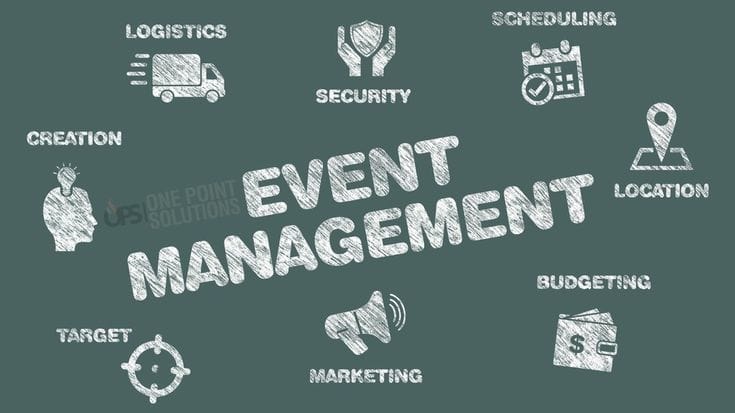
Streamlining Operations Through Automated Event Tasks
-----------------------------------------------------
The most immediate impact of AI automation is felt in the realm of automated event tasks that previously consumed significant human resources. Registration processes that once required manual verification and data entry now happen instantly through intelligent forms that can detect duplicate entries, validate information, and trigger appropriate follow-up communications.
Vendor coordination, traditionally a nightmare of back-and-forth emails and phone calls, now operates through automated systems that can negotiate contracts, schedule deliveries, and manage payment processing. AI systems can simultaneously communicate with multiple vendors, cross-reference requirements, and identify potential conflicts before they impact the event timeline.
These automated workflows extend to attendee engagement as well. AI chatbots provide 24/7 customer service, answering common questions and routing complex inquiries to appropriate human staff members. They can provide personalized recommendations for sessions, networking opportunities, and local attractions based on individual attendee profiles and preferences.
AI Workflow Optimization: Beyond Basic Automation
-------------------------------------------------
While automating individual tasks represents significant progress, the true power of AI lies in comprehensive AI workflow optimization. These systems don't just execute predetermined actions; they continuously learn and adapt to optimize entire event ecosystems.
Advanced algorithms analyze real-time data streams from multiple sources – social media sentiment, weather forecasts, traffic patterns, and attendee behavior – to make dynamic adjustments to event schedules and resource allocation. If an AI system detects that a particular session is generating significant social media buzz, it can automatically recommend larger venue spaces or suggest live streaming options to accommodate increased interest.
Resource optimization becomes particularly sophisticated when AI systems manage multiple events simultaneously. They can identify opportunities to share resources between events, negotiate better rates with vendors through consolidated purchasing, and optimize staff schedules across different projects.

Intelligent Event Processes: The Human-AI Partnership
-----------------------------------------------------
The evolution toward intelligent event processes doesn't eliminate human creativity and relationship-building skills. Instead, it creates a powerful partnership where AI handles routine tasks and data analysis while humans focus on strategic thinking, creative problem-solving, and personal relationship management.
Event professionals can now spend their time on high-value activities like developing innovative event concepts, building meaningful connections with stakeholders, and creating memorable experiences for attendees. The AI systems handle the logistical heavy lifting, ensuring that creative visions can be executed flawlessly without getting bogged down in operational details.
### The Future of Event Management
Looking ahead, the integration of AI into [event management](https://venzi.ai/blog/ai-first-event-planning-automated-management-platforms/) will only deepen. We can expect to see more sophisticated predictive analytics that can forecast event success rates, recommend optimal pricing strategies, and suggest personalized attendee experiences based on individual preferences and behavior patterns.
Voice-activated event assistants will soon coordinate complex logistics through natural language commands, while augmented reality systems will provide real-time guidance for setup crews and attendees alike. The boundary between digital and physical event experiences will continue to blur as AI systems seamlessly orchestrate hybrid environments.
Embracing the Revolution
------------------------
The death of manual event workflows isn't just an industry trend – it's an inevitable evolution driven by the need for efficiency, scalability, and enhanced attendee experiences. Event professionals who embrace these AI-powered solutions will find themselves better equipped to handle increasingly complex events while delivering superior results.
**The future belongs to those who can harness the power of event workflow automation while maintaining the human touch that makes events truly memorable. In this new landscape, success isn't measured by how many hours you work, but by how intelligently you leverage technology to create extraordinary experiences.
**
---
This blog is powered by Superblog. Visit https://superblog.ai to know more.
---
## Reimagining Events with AI: Planning Beyond Traditional Boundaries
Author: Unknown
Published: 2025-07-14
Category: Event Technology
Meta Title: AI Event Planning: Automated Management Beyond Traditional Tools
Meta Description: Discover how AI-first event platforms revolutionize planning with automated venue selection, attendee engagement, and real-time optimization beyond traditional tools.
Tags: Event Technology, AI event planning, Automated event management
URL: https://venzi.ai/blog/ai-first-event-planning-automated-management-platforms
The event planning industry stands at a transformative crossroads. Traditional platforms that once revolutionized how we organize conferences, weddings, and corporate gatherings are being eclipsed by a new generation of AI-first event planning systems. These intelligent platforms don't just digitize existing processes—they fundamentally reimagine what automated event management can achieve, creating unprecedented efficiency and personalization.
The Evolution from Manual to Intelligent
----------------------------------------
Traditional event planning platforms primarily served as digital filing cabinets and communication hubs. Event planners would still make most decisions manually, using software tools to organize information and coordinate with vendors. The AI-first approach represents a paradigm shift where artificial intelligence becomes the primary decision-maker, orchestrating every aspect of event planning with minimal human intervention.
Modern AI event planning systems leverage machine learning algorithms, natural language processing, and predictive analytics to handle complex decision-making processes that previously required years of industry experience. These systems analyze vast datasets of past events, attendee preferences, market trends, and real-time conditions to make optimal choices automatically.
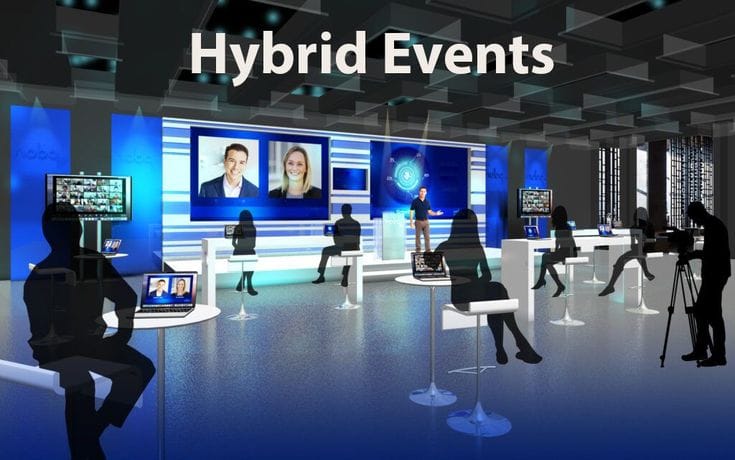
Intelligent Venue Selection and Optimization
--------------------------------------------
AI-first event platforms revolutionize venue selection by analyzing massive datasets that include venue capacity, location demographics, historical pricing trends, weather patterns, and accessibility features. These intelligent systems instantly cross-reference attendee locations with venue options, calculating optimal travel times and costs while factoring in seasonal demand fluctuations and local event calendars.
The AI doesn't just recommend venues—it predicts which spaces will create the most engaging experience for specific audience types by analyzing social media sentiment and past event performance data. Advanced AI platforms integrate with IoT sensors in venues to assess real-time conditions like air quality, acoustics, and lighting, enabling automatic adjustments to room configurations based on attendee comfort metrics from previous events.
Automated Attendee Engagement and Personalization
-------------------------------------------------
AI-first [event planning](https://venzi.ai/blog/event-planning-checklist-30-days/)transforms attendee engagement through automated personalization that goes far beyond traditional segmentation. These systems continuously analyze attendee behavior patterns, preferences, and interaction history to deliver hyper-personalized experiences without manual intervention.
Platforms automatically generate custom agendas for each attendee based on their professional interests, networking goals, and past event participation. AI algorithms predict which sessions will resonate with specific individuals and automatically adjust scheduling to maximize engagement. Real-time sentiment analysis of attendee feedback enables instant pivots in programming and content delivery.
Networking facilitation becomes truly intelligent through AI-powered matchmaking that analyzes professional backgrounds, stated interests, and behavioral patterns to create optimal connection opportunities, automatically scheduling meetings and suggesting conversation starters based on compatibility algorithms.
Seamless Vendor and Resource Management
---------------------------------------
AI-first platforms excel at vendor coordination by automatically managing vendor relationships through performance metrics, cost efficiency, and reliability scores. These systems predict resource needs based on event parameters and automatically adjust orders for catering, equipment, and staffing while negotiating contracts by analyzing market rates and vendor availability.
Supply chain optimization becomes particularly powerful when AI systems learn from thousands of events, predicting potential bottlenecks and automatically implementing backup plans when disruptions occur.
Predictive Analytics and Risk Management
----------------------------------------
Modern AI event planning platforms incorporate sophisticated predictive analytics to anticipate and mitigate potential issues. Weather forecasting algorithms automatically trigger contingency plans for outdoor events. Social media monitoring can detect emerging trends or potential controversies that might impact event success.
These systems analyze historical data to predict attendance patterns, helping optimize registration processes and prevent overcrowding. They can identify potential security risks by analyzing attendee lists and automatically implementing appropriate safety measures. Financial forecasting becomes more accurate as AI systems learn from past events and market conditions.
### Real-Time Optimization and Adaptation
The most impressive feature of AI-first event platforms is their ability to adapt in real-time. Traditional events follow predetermined schedules regardless of how well they're performing. AI systems continuously monitor engagement metrics, attendance patterns, and feedback to make instant adjustments.
If a session isn't resonating with attendees, the AI can automatically modify content, adjust timing, or redirect participants to more engaging activities. Climate control, lighting, and audio systems respond automatically to crowd density and energy levels. Even catering can be adjusted based on real-time consumption patterns and dietary preferences.
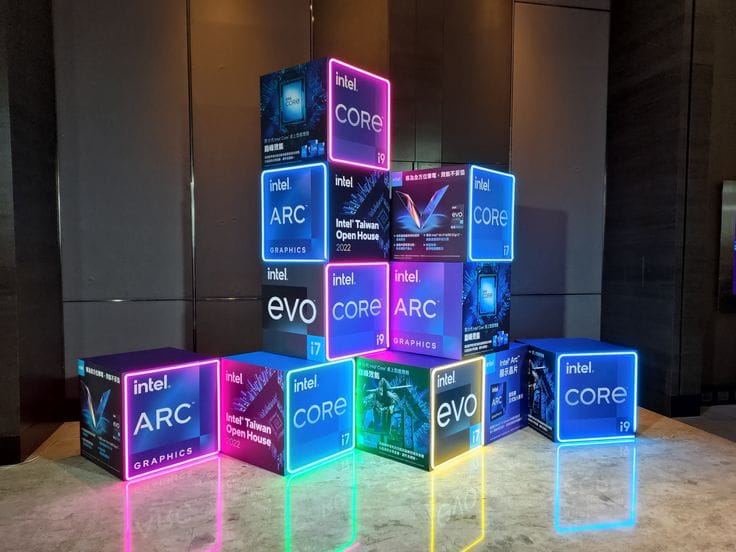
The Future of Event Intelligence
--------------------------------
AI-first event planning represents more than technological advancement—it's a fundamental shift toward intelligence-driven experiences. These platforms don't just automate existing processes; they create entirely new possibilities for event engagement and optimization.
As these systems continue learning from millions of events, they'll develop increasingly sophisticated understanding of human behavior and preferences. Future AI event platforms will likely predict attendee needs before they're expressed, create entirely personalized event experiences, and seamlessly integrate physical and virtual elements.
The transition from traditional event planning platforms to AI-first systems isn't just about efficiency—it's about creating events that are more engaging, more personalized, and more successful than ever before. For event professionals and organizations, embracing this AI-first approach isn't just an opportunity; it's becoming essential for staying competitive in an increasingly sophisticated event landscape.
The era of truly intelligent event planning has arrived, and it's reshaping how we conceive, execute, and experience events in ways that were unimaginable just a few years ago.
---
This blog is powered by Superblog. Visit https://superblog.ai to know more.
---
## 30-Day Countdown: The Only Event Planning Checklist You Need
Author: Unknown
Published: 2025-07-05
Category: Event Planning
Meta Title: 30-Day Event Planning Checklist for Flawless Execution
Meta Description: Master event planning with our 30-day checklist—covering everything from venue booking to final execution. Stay organized and stress-free in your final month.
Tags: Event planning AI, Smart event management, event checklist
URL: https://venzi.ai/blog/event-planning-checklist-30-days
The final month before your event can feel overwhelming, but with a structured approach, you can transform those pre-event jitters into confident execution. Whether you're organizing a corporate conference, wedding, or community gathering, this comprehensive 30-day timeline will ensure nothing falls through the cracks during the crucial final stretch.
Week 4: Foundation Check (Days 30-22)
-------------------------------------
The fourth week before your event should focus on solidifying your foundation. Start by confirming your venue booking and conducting a thorough final walkthrough with the venue manager. During this visit, review floor plans and seating arrangements while testing all audiovisual equipment and lighting systems. This is also the perfect time to verify parking availability and accessibility features for guests with special needs.
Your guest management efforts should intensify during this period. Send final invitations to any remaining attendees and set up a reliable RSVP tracking system with deadline reminders. Create comprehensive guest lists for registration and check-in purposes, and begin preparing name badges, welcome packets, and seating charts. Don't forget to confirm any dietary restrictions and special accommodation requests that have been submitted.
Staff coordination becomes critical at this stage. Finalize event team assignments and ensure everyone has current contact information. Schedule staff briefing meetings for the week before the event and prepare detailed run-of-show documents for all team members. Confirm volunteer schedules and assign specific responsibilities to each person. Create emergency contact lists and develop backup plans for key positions in case of last-minute changes.
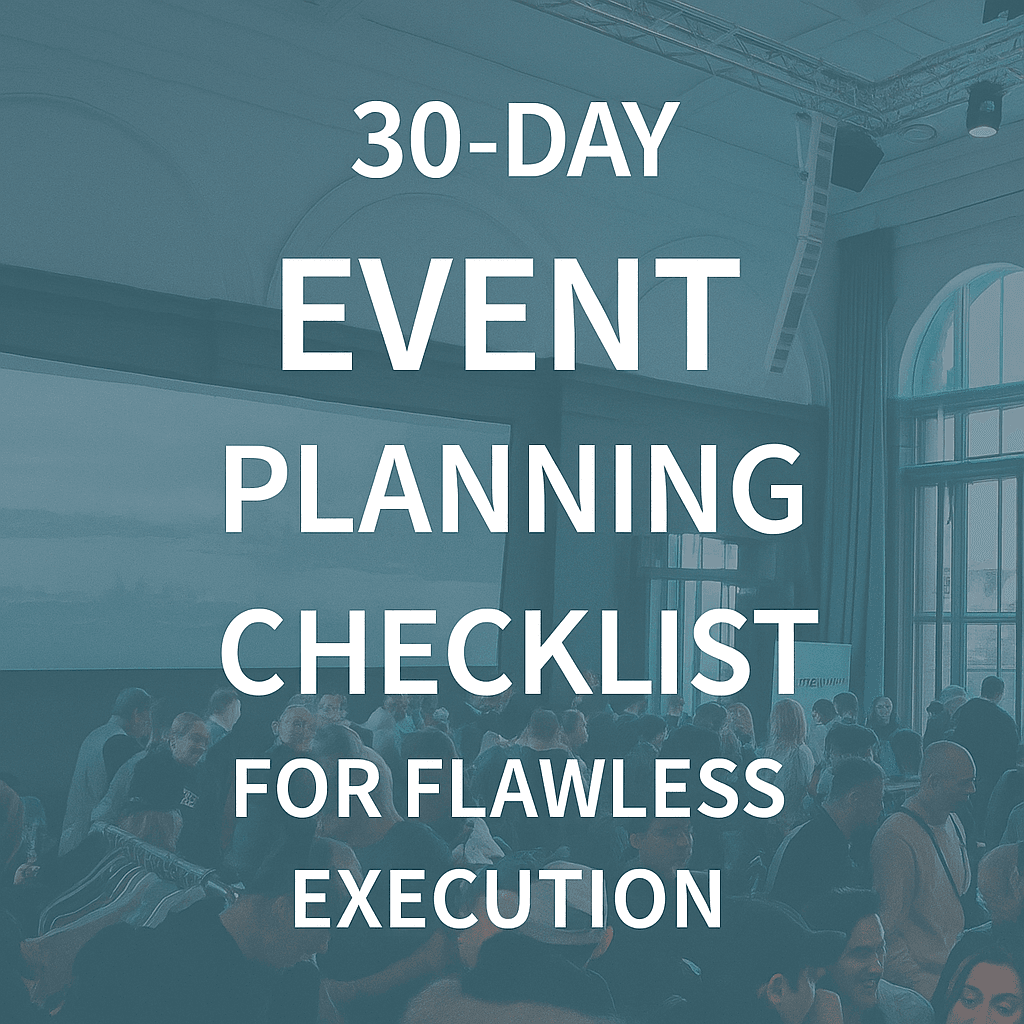
Week 3: Content & Materials (Days 21-15)
----------------------------------------
The third week demands intense focus on content finalization and material preparation. Complete all presentation materials and confirm speaker requirements, ensuring that your event program, agenda, and printed materials are ready for production. Review and approve all marketing collateral and signage, while confirming arrangements with entertainment, speakers, and special guests. Test all technology presentations and have backup systems ready to deploy if needed.
Supply management requires careful attention during this period. Order any remaining supplies, decorations, and promotional items while confirming catering numbers and finalizing menu selections. Arrange transportation for VIP guests or those with special requirements, and prepare gift bags, welcome packages, and giveaway items. Create detailed inventory checklists that will make setup tracking much easier when the event day arrives.
Your communication strategy should be fully activated now. Draft and schedule reminder communications to attendees, and prepare social media content with a posting schedule. Create press releases and media alerts if your event warrants media coverage. Set up event hashtags and encourage attendee engagement across social platforms. Additionally, prepare post-event survey questions and feedback forms so you can capture valuable insights immediately after the event concludes.
Week 2: Final Preparations (Days 14-8)
--------------------------------------
The second week focuses on final preparations and vendor coordination. Confirm all vendor contracts and delivery schedules, conduct a final menu tasting, and approve all catering details. Review setup and breakdown timelines with each vendor to ensure smooth logistics. Confirm payment schedules and any outstanding balances, and establish clear day-of-event contact protocols with all suppliers.
Registration and check-in processes need your attention during this period. Finalize attendee numbers and create updated guest lists for easy reference. Prepare all registration materials and check-in systems, testing any mobile apps or digital check-in processes you plan to use. Train your registration staff on procedures and troubleshooting techniques, and set up payment processing systems for any day-of purchases.
Risk management becomes paramount in week two. Review your insurance coverage and emergency procedures, identifying potential weather backup plans for any outdoor elements. Prepare contingency plans for common issues like no-shows, technical failures, or vendor problems. Confirm security arrangements and crowd management protocols, and create detailed contact lists for emergency situations.
Week 1: Final Sprint (Days 7-1)
-------------------------------
The final week requires intensive team coordination and last-minute confirmations. Conduct comprehensive staff meetings with all team members, reviewing timelines, responsibilities, and emergency procedures. Distribute final versions of all event materials and contact lists, assigning specific roles for setup, execution, and breakdown. Confirm arrival times and dress code requirements for all staff members.
Your last-minute confirmations should include calling all vendors to verify delivery times and requirements. Confirm your final headcount with catering and seating arrangements, and verify weather forecasts, activating backup plans if necessary. Test all equipment one final time, including microphones, projectors, and any interactive technology. Prepare a comprehensive day-of-event survival kit containing extra supplies for common problems.
The day before your event requires complete venue setup and decorating. Conduct a final walkthrough with venue management, addressing any last-minute concerns. Brief all staff members on their specific responsibilities and confirm transportation arrangements for key personnel. Prepare a detailed timeline for event day execution that accounts for every major milestone.
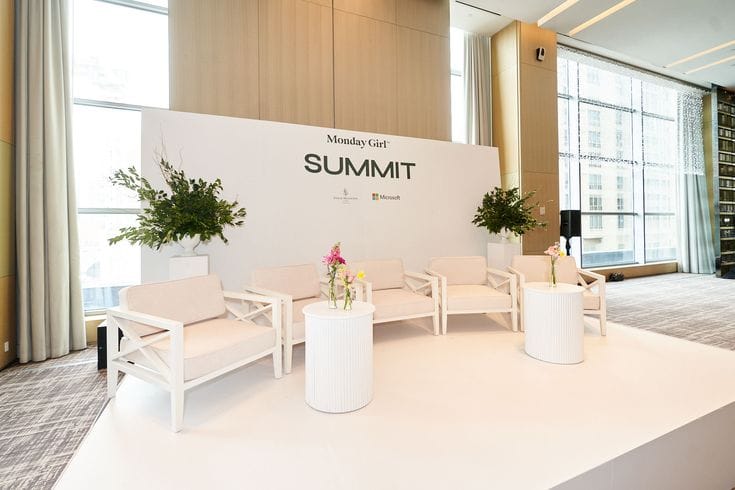
### Event Day Success and Beyond
Start your event day early with a team meeting to review the timeline and address any final questions. Assign point persons for major areas like registration, technical support, and vendor coordination. Maintain communication throughout the event using walkie-talkies or group messaging apps, and designate someone to handle social media updates while you focus on overall coordination.
Within 48 hours of your event, send thank-you messages to attendees and collect feedback through surveys. Begin vendor payment processing and schedule a debrief meeting with your team to capture lessons learned. This comprehensive approach to the final 30 days will help you create memorable experiences that leave lasting impressions on everyone involved, transforming careful planning into [successful execution](https://venzi.ai/blog/influencer-marketing-events-collaborate-convert/).
---
This blog is powered by Superblog. Visit https://superblog.ai to know more.
---
## Influencer Marketing Strategies to Boost Engagement and Attendance at Events
Author: Unknown
Published: 2025-07-02
Category: Event Marketing
Meta Title: Influencer Marketing for Events: Boost Attendance & Convert
Meta Description: Learn proven tactics to partner with niche influencers for event marketing. Discover collaboration strategies that drive attendance and maximize ROI.
Tags: influencer event marketing, event influencers, influencer ROI measurement
URL: https://venzi.ai/blog/influencer-marketing-events-collaborate-convert
The landscape of event promotion has fundamentally shifted. Traditional advertising channels no longer command the attention they once did. In their place, authentic voices with loyal followings have emerged as powerful drivers of engagement and attendance. Forward-thinking event organizers are discovering that partnerships with niche influencers can turn empty venues into sold-out events.
The Power of Niche Over Numbers
-------------------------------
When selecting influencers for [event marketing](https://venzi.ai/blog/sustainable-event-planning-green-guide/), it's crucial to look beyond follower counts. A fitness influencer with 50,000 engaged followers will often generate far better results for a wellness summit than a lifestyle influencer with 500,000 disengaged ones. Niche influencers possess trust and credibility within specific communities, and their endorsements carry the authority of genuine expertise.
Micro-influencers, typically with 10,000 to 100,000 followers, often boast engagement rates between 3–7%, compared to the 1–2% common among mega-influencers. Their audiences see them as relatable peers rather than distant celebrities, which makes their recommendations feel like personal suggestions from a trusted friend.
### Building Strategic Partnerships
Effective influencer marketing goes beyond asking for a few social media posts. It involves thoughtful partnerships that offer value to both the influencer and their audience. Consider providing behind-the-scenes access, VIP experiences, or even opportunities to co-host parts of the event. These tactics position the influencer as a vital part of the overall experience, not just a promotional tool.
Create a tiered collaboration strategy. Nano-influencers (1,000–10,000 followers) might be offered free tickets in exchange for organic content, while more established micro-influencers could be invited to speak or participate in panel discussions. This layered approach helps you stretch your marketing budget while maximizing reach and impact.
### A Three-Phase Content Strategy
To get the most from your influencer partnerships, extend your content plan across three phases: pre-event, during the event, and post-event.
* **Pre-Event**: Collaborate on educational or engaging content that builds anticipation. Have influencers share what excites them about the event, how they’re preparing, or which speakers they’re most interested in. These behind-the-scenes glimpses feel authentic and build trust.
* **During the Event**: Encourage influencers to post in real-time. Focus on candid moments, key takeaways, or networking interactions. Real-time posts help highlight the energy of the event and showcase the value to those not in attendance.
* **Post-Event**: Maintain the momentum. Have influencers share what they learned, the people they met, or content recaps that keep the conversation alive. This phase helps extend the event’s lifecycle and reach.
Measuring Impact and ROI
------------------------
Before launching your campaign, set clear objectives and tracking methods. Use unique promo codes or custom URLs to monitor ticket sales, social reach, and engagement. More advanced analysis may include evaluating attendee behavior, such as how long they stayed or whether they interacted with event partners or sponsors.
Also track sentiment. Are followers commenting positively on posts? Are they resharing content or asking how they can attend? These qualitative insights are just as important as quantitative metrics.
Create reporting dashboards that include both numbers and narrative—ticket conversions, website traffic spikes, and social mentions alongside tone, excitement, and influencer alignment.
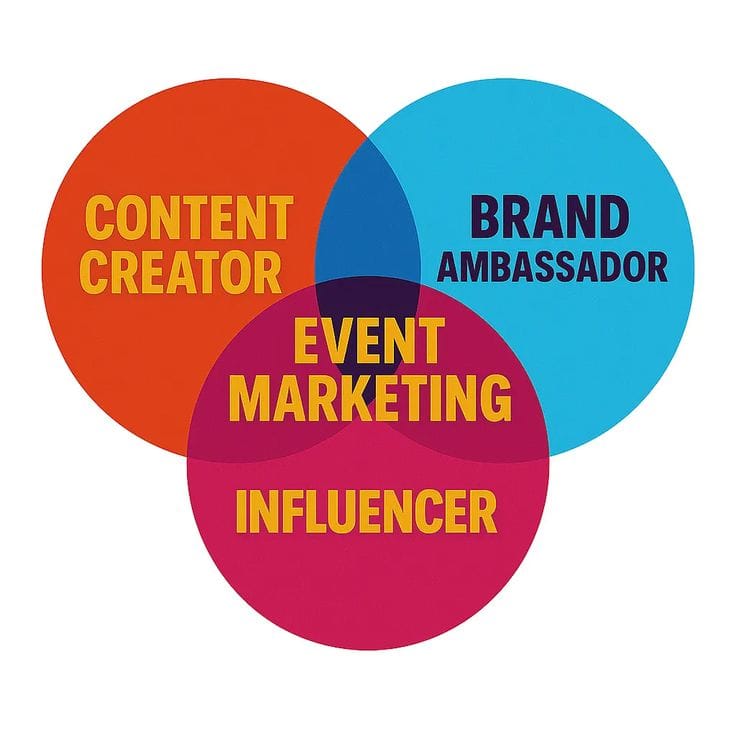
### Creating Long-Term Relationships
The best influencer relationships are built over time. Instead of viewing influencers as one-off partners, treat them as long-term collaborators. Develop an “influencer alumni” program to keep them engaged between events. Share exclusive updates, invite them to internal planning sessions, or even ask for their input on content or programming decisions.
Consider forming an influencer advisory panel—trusted content creators who regularly contribute ideas and feedback. This involvement builds investment and ensures that influencers become genuine champions of your events.
### Fair and Flexible Compensation
Influencer compensation doesn't always have to mean cash. Many creators value professional development opportunities, exclusive access, or content creation support over traditional payment. Offer packages that may include professionally shot photos, networking introductions, or even public speaking opportunities.
Transparency is essential. Provide influencers with detailed briefs that outline what you expect, what they’ll receive in return, and how flexible they can be with creative direction. Give them the freedom to maintain their authentic voice—after all, that’s why their audience trusts them.
### Common Mistakes to Avoid
Not all influencers are the right fit for your event. Avoid partnering with creators who don’t align with your brand or audience values. A mismatched partnership can backfire, doing more harm than good.
Be sure all influencer content includes clear FTC-compliant disclosures. Authenticity and transparency build audience trust and protect both parties from legal or reputational issues.
### Scaling Your Strategy
As your event portfolio grows, streamline your influencer outreach and collaboration processes. Develop standardized templates, contracts, and briefing documents. Build a database of previous collaborators with notes on performance, audience fit, and engagement levels.
Use tools to manage campaigns more efficiently—platforms like Upfluence, Aspire, or even airtable can help track influencer metrics, deliverables, and ROI in one place.
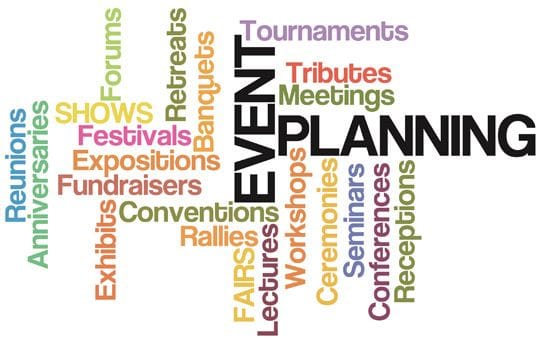
**Conclusion**
The future of event marketing lies in trust, authenticity, and community connection. Strategic influencer partnerships allow you to tap into existing audiences in a way that feels genuine and engaging. By building thoughtful relationships with the right voices—those who align with your mission and speak directly to your target demographic—you can create event experiences that resonate deeply and sell themselves.
---
This blog is powered by Superblog. Visit https://superblog.ai to know more.
---
## Sustainable Event Planning: Host Eco-Friendly Events Without Sacrifices
Author: Unknown
Published: 2025-07-02
Category: Event Planning
Meta Title: Sustainable Event Planning: Go Green Without Compromise Guide
Meta Description: Complete guide to sustainable events: eco-friendly vendors, green technology solutions, and sustainable swag ideas that reduce environmental impact.
Tags: eco-friendly events, Sustainable events, Green event planning
URL: https://venzi.ai/blog/sustainable-event-planning-green-guide
Planning memorable events while minimizing environmental impact has become essential for modern event organizers. With growing awareness of climate change and environmental responsibility, sustainable events are no longer optional—they're necessary. This guide explores how to create impactful events that respect the planet without sacrificing quality or attendee experience.
Understanding Sustainable Events
--------------------------------
Sustainable event planning involves making conscious decisions throughout the planning process to reduce environmental impact, support local communities, and create positive social change. The goal is to minimize waste, reduce carbon emissions, conserve resources, and leave a positive legacy long after the event concludes.

Eco-Friendly Vendor Selection
-----------------------------
### Choosing Green Partners
When selecting vendors for your sustainable events, prioritize partners who demonstrate genuine environmental commitment. Look for vendors with certified sustainability practices, such as B-Corp certification, LEED-certified facilities, or ISO 14001 environmental management standards. Research their waste reduction policies, energy sources, and transportation methods.
Local vendors should be your first choice whenever possible. Working with suppliers within a 100-mile radius significantly reduces transportation emissions while supporting the local economy. This approach also allows for better relationship building and more flexible collaboration throughout the planning process.
### Catering with Conscience
Food service represents one of the largest environmental impacts at events. Partner with caterers who prioritize organic, locally-sourced ingredients and seasonal menus. Seek out vendors who can accommodate dietary restrictions while minimizing food waste through accurate headcount planning and donation programs for surplus food.
Consider plant-forward menus that reduce the carbon footprint associated with meat production. Work with caterers who use compostable or reusable serveware and have established relationships with local farms and producers.
### Venue Selection Criteria
Choose venues that align with your sustainability goals. LEED-certified buildings, venues with renewable energy sources, and locations accessible by public transportation should rank highly in your selection process. Consider the venue's waste management capabilities, water conservation practices, and existing recycling programs.
Technology Solutions for Green Events
-------------------------------------
### Digital-First Approaches
Embrace technology to reduce paper consumption and streamline event operations. Digital registration systems eliminate paper forms while providing real-time data and analytics. QR codes can replace printed programs, maps, and promotional materials, allowing attendees to access information directly on their devices.
Live streaming and hybrid event formats can significantly reduce travel-related emissions by allowing remote participation. Virtual networking platforms enable meaningful connections without requiring physical presence, expanding your event's reach while reducing its environmental footprint.
### Smart Event Management
Implement event management software that optimizes resource allocation and reduces waste. Digital check-in systems speed up registration while eliminating paper tickets and badges. Mobile apps can facilitate networking, provide schedules, and enable real-time feedback collection without printed materials.
When technology equipment is necessary, choose energy-efficient options and work with vendors who prioritize sustainable practices. LED lighting systems consume significantly less energy than traditional options while offering superior lighting quality.
Sustainable Swag Ideas
----------------------
### Useful and Lasting Items
Move beyond throwaway promotional items toward gifts that attendees will genuinely use and appreciate. High-quality reusable water bottles, bamboo utensil sets, and organic cotton tote bags serve practical purposes while promoting your brand long after the event. These items should be durable enough to replace single-use alternatives in attendees' daily lives.
Tech accessories like portable phone chargers made from recycled materials or bamboo phone stands offer modern utility while supporting sustainability. Choose items that align with your audience's lifestyle and professional needs to ensure continued use and brand visibility.
### Experience-Based Alternatives
Consider offering experiences rather than physical items. Digital gift cards to local businesses, subscription services, or online learning platforms provide value without material waste. Charitable donations made in attendees' names can create positive impact while eliminating shipping and packaging concerns.
Seed packets or small potted plants offer symbolic growth and environmental benefit while serving as memorable takeaways. Partner with local nurseries to provide native plant species that support regional ecosystems.
Waste Reduction and Transportation
----------------------------------
### Comprehensive Waste Management
Implement robust sorting systems with clearly labeled bins for recycling, composting, and minimal landfill waste. Partner with waste management companies that can handle specialized materials and provide post-event reporting on diversion rates. Staff these stations with knowledgeable volunteers who can assist attendees and maintain system integrity.
Design events with end-of-life planning for all materials. Decorative elements should be reusable, returnable, or compostable. Work with vendors who can reclaim materials after events for use in future projects.
### Encouraging Sustainable Transportation
Provide comprehensive information about public transportation options, including schedules, routes, and any special event discounts. Partner with rideshare companies to offer group transportation options or incentivize carpooling among attendees. When possible, choose venues accessible by walking, cycling, or public transit from major hotels and airports.
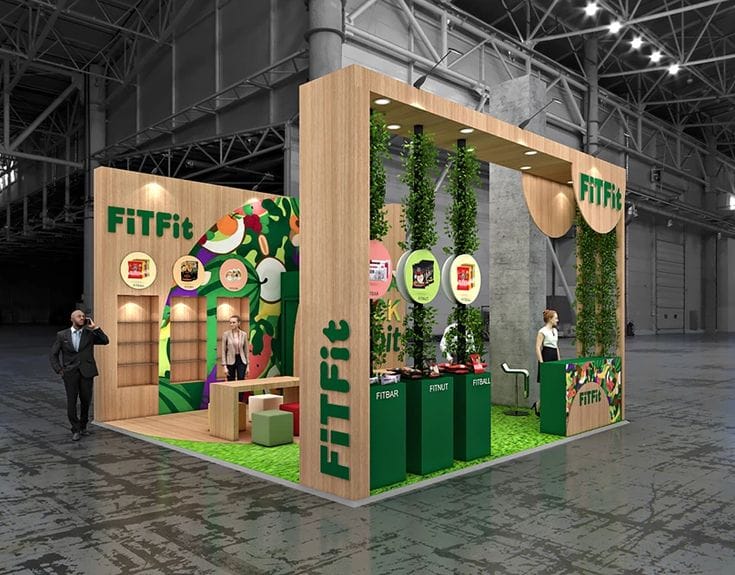
Measuring Success
-----------------
### Key Performance Indicators
Establish measurable sustainability goals before your event begins. Track metrics such as waste diversion rates, local vendor percentage, digital adoption rates, and attendee satisfaction with sustainability initiatives. Survey attendees about their perception of sustainability efforts and gather suggestions for improvement.
Calculate your event's carbon footprint using established methodologies that account for attendee travel, venue energy use, catering, and materials. Consider partnering with reputable offset providers who invest in verified projects such as reforestation or renewable energy.
### Cost-Effective Implementation
Many sustainable practices reduce costs while improving environmental impact. Digital materials eliminate printing and shipping expenses. Local vendors often offer competitive pricing while reducing transportation costs. Energy-efficient equipment and venues frequently cost less to operate, providing immediate savings.
Clearly communicate the value of sustainability initiatives to stakeholders and attendees. Many participants appreciate transparency about environmental impact and want to contribute to positive change. This approach often enhances brand reputation and attendee satisfaction while achieving environmental goals.
**[Sustainable event planning](https://venzi.ai/blog/maximize-sponsor-roi-event-guide/) requires thoughtful consideration and strategic implementation, but the benefits extend far beyond environmental impact. These practices often result in cost savings, improved attendee experiences, and enhanced organizational reputation while contributing to global sustainability efforts.
**
---
This blog is powered by Superblog. Visit https://superblog.ai to know more.
---
## How to Maximize Sponsor ROI at Your Next Event
Author: Unknown
Published: 2025-06-23
Category: Event Marketing
Meta Title: Maximize Event Sponsor ROI: Creative Tech Integration Guide
Meta Description: Discover creative ideas and tech integrations to boost sponsor visibility and ROI at your next event. Expert strategies for better sponsor partnerships.
Tags: small event marketing, sponsor ROI, event sponsors
URL: https://venzi.ai/blog/maximize-sponsor-roi-event-guide
In today's competitive event landscape, delivering measurable value to sponsors requires more than basic logo placement. Event organizers must leverage creative approaches and cutting-edge technology to maximize return on investment. When sponsors see real results, they become long-term partners who drive your event's sustained success.
Understanding Modern Sponsor Expectations
-----------------------------------------
Today's sponsors expect meaningful engagement, qualified leads, and measurable outcomes that directly impact their business objectives. The most successful events create win-win scenarios where sponsors achieve their marketing goals while attendees receive genuine value.
Smart event organizers recognize that sponsor satisfaction translates into increased revenue, better partnerships, and stronger event credibility. This approach requires moving beyond basic brand visibility to integrated experiences that feel natural and beneficial to all parties involved.
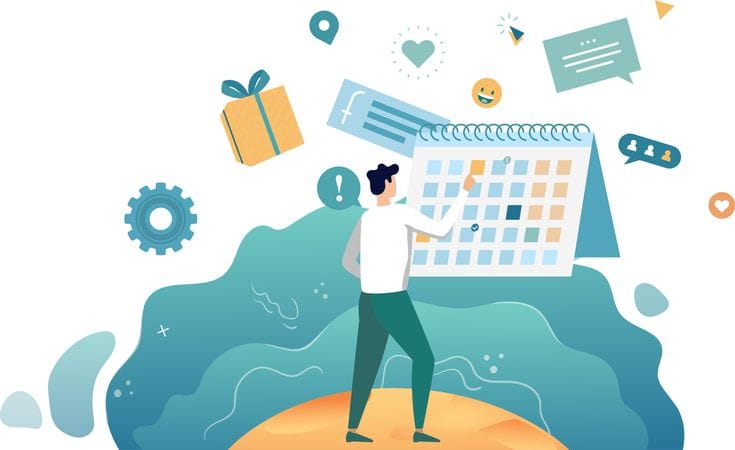
Strategic Pre-Event Planning
----------------------------
### Audience-Sponsor Alignment
The foundation of sponsor ROI begins with proper alignment. Match sponsors with audience segments that genuinely benefit from their products or services. Create detailed attendee personas and share relevant data with potential sponsors, helping them understand the opportunity and develop targeted activation strategies.
### Custom Integration Opportunities
Move beyond standard sponsorship tiers by offering custom integration opportunities. Consider sponsors' specific objectives and create unique touchpoints throughout the event journey. A software company might benefit from sponsored demo stations, while a consulting firm could sponsor educational workshops directly related to their expertise.
Creative Visibility Solutions
-----------------------------
### Interactive Brand Experiences
Transform passive logo displays into interactive experiences that naturally draw attendee engagement. Photo booths with branded backgrounds, interactive games, or hands-on demonstration areas create memorable moments while providing sponsors with valuable face-to-face interaction time.
Create themed zones sponsored by different companies, where each area offers unique value to attendees. A relaxation lounge sponsored by a wellness brand, a tech charging station sponsored by an electronics company, or a networking café sponsored by a professional services firm all provide functional value while maintaining brand visibility.
### Content Integration Strategies
Integrate sponsors into your content programming meaningfully. Rather than simple commercial breaks, create sponsored educational sessions where sponsors share genuine expertise with attendees. This positions sponsors as thought leaders while providing valuable learning opportunities for participants.
Develop co-created content opportunities where sponsors collaborate with your team to produce valuable resources. Joint whitepapers, exclusive interviews, or collaborative research presentations add value while giving sponsors substantive content to share with their networks.
Technology-Driven Engagement
----------------------------
### Digital Platform Integration
Leverage event apps and digital platforms to create seamless sponsor integration throughout the attendee journey. Push notifications about sponsor sessions, native in-app advertising, and gamification elements that encourage sponsor booth visits all maximize digital touchpoints effectively.
Create digital scavenger hunts that guide attendees through sponsor areas while providing educational content about each company. QR codes at sponsor booths can trigger exclusive content, special offers, or prize drawing entries, making sponsor interactions more engaging and trackable.
### Real-Time Analytics and Reporting
Implement tracking systems that provide sponsors with real-time engagement data. Heat mapping technology shows foot traffic patterns around sponsor areas, while app analytics reveal which sponsor content generates the most engagement. This data helps sponsors understand their ROI and plan future strategies.
Provide comprehensive post-event reports including lead generation metrics, engagement analytics, and attendee feedback specific to sponsor activations. This transparency builds trust and helps sponsors justify their investment to internal stakeholders.
### Virtual and Hybrid Solutions
For virtual or hybrid events, create innovative digital sponsor experiences beyond banner ads. Virtual trade show booths with live chat capabilities, sponsored breakout rooms, or interactive product demonstrations via video calls provide meaningful engagement in digital environments.
Develop sponsored content libraries where attendees can access exclusive resources, product demos, or educational materials on-demand. This extends sponsor visibility beyond the live event timeframe while providing lasting participant value.
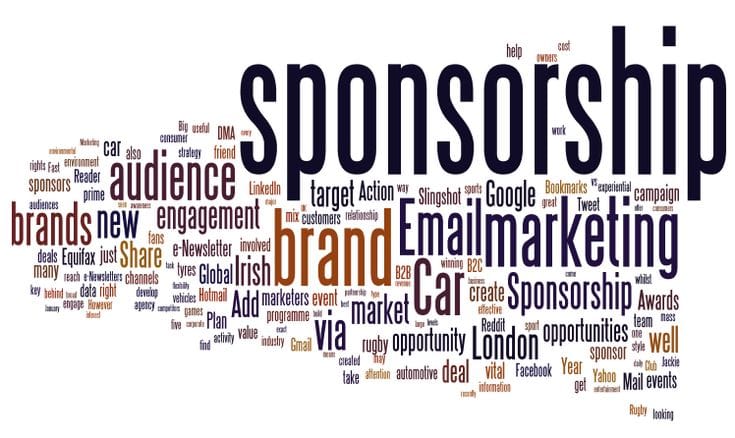
Measuring Success and Building Partnerships
-------------------------------------------
### Comprehensive ROI Tracking
Establish clear success metrics before the event begins. Track lead generation, brand awareness lift, social media engagement, and direct sales attribution where possible. Use unique tracking codes, dedicated landing pages, and custom surveys to gather comprehensive performance data.
Create standardized reporting templates for easy comparison across different sponsor activations and events. This consistency helps sponsors understand which strategies work best and supports data-driven decision making for future partnerships.
### Post-Event Relationship Management
The sponsor relationship doesn't end when the event concludes. Provide detailed performance reports within one week, including quantitative data and qualitative attendee feedback. Schedule follow-up meetings to discuss results and gather sponsor experience feedback.
Use [post-event insights](https://venzi.ai/blog/future-virtual-booths-beyond-zoom-links/) to improve future sponsor offerings and strengthen existing relationships. Sponsors who see continuous improvement are more likely to increase investment and become long-term partners.
Social Media and Multi-Channel Amplification
--------------------------------------------
Create shareable moments that naturally incorporate sponsor branding without feeling forced. Instagram-worthy installations, Twitter-worthy quotes from sponsor speakers, or LinkedIn-worthy professional insights from sponsor-hosted sessions extend reach beyond the physical event space.
Develop official event hashtags that sponsors can use across their social channels, creating unified campaign messaging that amplifies overall event visibility. Encourage user-generated content through photo contests or social media challenges featuring sponsor elements.
Key Takeaways
-------------
Maximizing sponsor ROI requires authentic, value-driven experiences that benefit all stakeholders. Focus on building relationships rather than just selling placements. When sponsors achieve their objectives through meaningful audience engagement, they become invested partners in your event's long-term success.
**By implementing creative and technology-driven strategies, event organizers can transform sponsor relationships from transactional arrangements into strategic partnerships that drive mutual success. The investment in sponsor satisfaction pays dividends through increased loyalty, higher renewal rates, and stronger industry recommendations.
**
---
This blog is powered by Superblog. Visit https://superblog.ai to know more.
---
## The Future of Virtual Booths: Beyond Zoom Links
Author: Unknown
Published: 2025-06-19
Category: Event Technology
Meta Title: Future of Virtual Booths: Beyond Zoom Links | Venzi.ai
Meta Description: Discover innovative virtual booth formats transforming online exhibitions. Explore interactive 3D spaces, AR demos, and immersive experiences beyond basic video calls.
Tags: virtual booths, 3D booths, digital transformation
URL: https://venzi.ai/blog/future-virtual-booths-beyond-zoom-links
The virtual events landscape has evolved dramatically since the early days of pandemic-driven digital transformations. While basic video conferencing served as a temporary bridge, today's exhibitors and attendees demand more sophisticated, engaging experiences that rival their physical counterparts. The future of virtual booths lies not in replicating traditional formats, but in leveraging technology to create entirely new possibilities for connection and engagement.
Breaking Free from the Screen-Share Paradigm
--------------------------------------------
Traditional virtual booths often felt like glorified video calls with shared presentations. Attendees would join a Zoom room, watch a static presentation, and perhaps engage in brief chat conversations. This approach, while functional, failed to capture the serendipitous discovery and immersive exploration that make physical exhibitions compelling.
The next generation of virtual booths transforms these limitations into opportunities. Instead of passive viewing experiences, modern platforms create active exploration environments where attendees can navigate spaces, interact with products, and engage with representatives in ways that feel natural and intuitive.
Immersive 3D Environments: The New Exhibition Floor
---------------------------------------------------
Three-dimensional virtual spaces represent perhaps the most significant advancement in virtual booth technology. These environments allow exhibitors to create branded spaces that visitors can explore using familiar navigation controls. Attendees can walk through virtual showrooms, examine products from multiple angles, and discover information organically rather than following predetermined presentation sequences.
These 3D environments excel at recreating the spatial relationships that make physical booths effective. Visitors can see other attendees in the space, creating social proof and encouraging longer engagement times. The ability to move freely through the environment also enables the kind of casual encounters and spontaneous conversations that drive meaningful business connections.
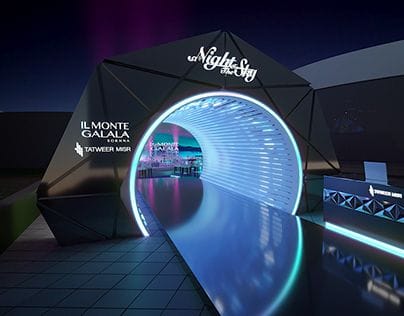
Interactive Product Demonstrations in Virtual Space
---------------------------------------------------
Virtual booths now support sophisticated product interactions that often exceed what's possible at physical events. Attendees can manipulate 3D models, access detailed specifications instantly, and even experience augmented reality demonstrations directly through their browsers or mobile devices.
For software companies, virtual booths can offer live sandbox environments where prospects can actually use products rather than simply watching demonstrations. Manufacturing companies can provide detailed technical specifications, 360-degree product views, and even virtual reality experiences that showcase products in their intended environments.
Gamification and Engagement Mechanics
-------------------------------------
Progressive virtual booth designs incorporate game-like elements that encourage exploration and sustained engagement. Attendees might collect digital badges by visiting different sections of a booth, unlock exclusive content through interactions, or participate in mini-games that demonstrate product capabilities.
These gamification elements serve multiple purposes beyond entertainment. They provide exhibitors with detailed analytics about attendee interests and engagement patterns, help qualify leads based on demonstrated interest levels, and create memorable experiences that enhance brand recall long after the event concludes.
AI-Powered Personalization and Assistance
-----------------------------------------
Artificial intelligence transforms virtual booths from static displays into dynamic, responsive environments. AI chatbots can provide instant responses to common questions, route qualified leads to appropriate sales representatives, and even conduct preliminary discovery conversations to maximize the efficiency of human interactions.
Machine learning algorithms can analyze attendee behavior patterns to personalize booth experiences in real-time. Someone spending significant time examining technical specifications might be presented with detailed case studies, while a visitor focused on pricing information could be directed toward ROI calculators and cost-benefit analyses.
### Seamless Integration with Business Systems
Modern virtual booths integrate directly with CRM systems, marketing automation platforms, and sales tools. This integration enables real-time lead scoring, automatic follow-up sequences, and seamless handoffs between marketing and sales teams. Attendee interactions generate rich behavioral data that enhances lead qualification and enables more targeted follow-up communications.
### Multimodal Communication Channels
The future of virtual booths embraces communication diversity. While video conversations remain important, progressive platforms support text chat, voice messages, screen sharing, collaborative whiteboards, and even asynchronous communication channels that accommodate different time zones and communication preferences.
This multi-modal approach recognizes that effective business communication often requires different formats for different purposes. Initial discovery might happen through text chat, technical discussions might benefit from screen sharing, and relationship building might require face-to-face video conversations.
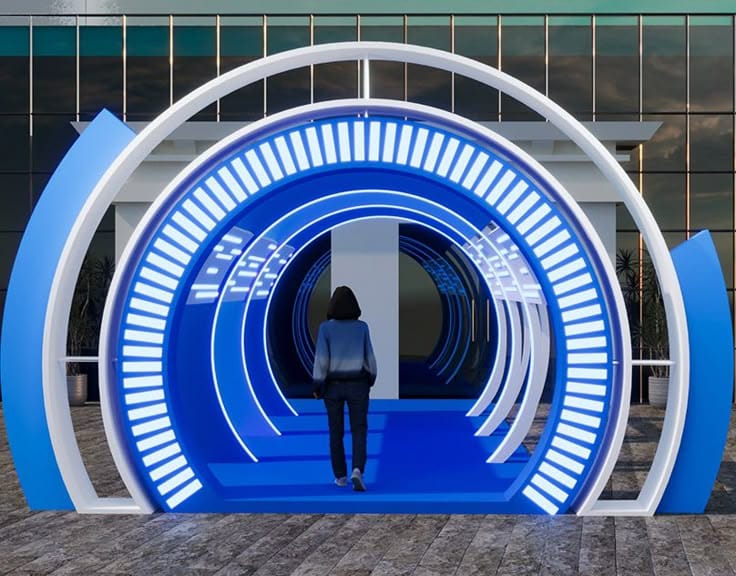
### Analytics and Performance Measurement
Virtual booths generate unprecedented amounts of engagement data. Exhibitors can track visitor paths through their spaces, identify the most engaging content areas, measure time spent with different materials, and analyze conversation quality metrics. This data enables continuous optimization of booth designs and content strategies.
Advanced analytics platforms can even predict attendee intent based on behavioral patterns, enabling sales teams to prioritize their time and focus on the most qualified prospects. Heat maps show which areas of virtual booths attract the most attention, helping exhibitors optimize their layouts for maximum impact.
### The Hybrid Future: Connecting Physical and Virtual
The ultimate evolution of virtual booths involves seamless integration with physical events. Hybrid approaches allow remote attendees to participate in physical exhibitions through virtual representations, while physical attendees can access enhanced digital content and extended networking opportunities.
These hybrid models expand the reach of exhibitions beyond geographical constraints while maintaining the energy and spontaneity of in-person events. Exhibitors can engage with global audiences without the costs and logistics of international travel, while attendees can participate in world-class events regardless of their location.
### Preparing for the Virtual Booth Revolution
Organizations preparing for this [virtual booth](https://venzi.ai/blog/event-email-marketing-sequences-convert/) evolution should focus on understanding their audience's digital comfort levels and engagement preferences. Success requires moving beyond technical capabilities to consider how virtual experiences can deliver genuine value for both exhibitors and attendees.
The most effective virtual booths solve real problems for their audiences rather than simply recreating physical booth experiences in digital formats. They leverage technology's unique capabilities to provide experiences that would be impossible in physical spaces while maintaining the human connections that drive business relationships.
**The transition from basic video calls to sophisticated virtual environments represents just the beginning of this transformation. As these technologies mature and become more accessible, virtual booths will likely become the preferred format for many types of business interactions, offering superior convenience, broader reach, and richer engagement possibilities than their physical predecessors.
**
---
This blog is powered by Superblog. Visit https://superblog.ai to know more.
---
## High-Converting Email Marketing Sequences for Promoting Your Next Event
Author: Unknown
Published: 2025-06-16
Category: Email Marketing
Meta Title: Event Email Marketing: Sequences That Convert & Drive ROI
Meta Description: Master event email marketing with proven funnel strategies. Learn pre-event, during, and post-event sequences that boost registrations and attendance rates.
Tags: email funnels, event promotion, small event marketing
URL: https://venzi.ai/blog/event-email-marketing-sequences-convert
Event marketing success hinges on one crucial element: getting the right people to show up. While social media buzz and paid advertising play their roles, email marketing remains the backbone of effective event promotion. The secret lies not in sending random promotional blasts, but in crafting strategic event funnels that guide prospects from initial awareness to enthusiastic attendance and beyond.
### The Foundation of Event Email Marketing
Event email marketing differs significantly from traditional promotional campaigns. You're not just selling a product – you're selling an experience, a moment in time that can't be replicated. This unique challenge requires a sophisticated approach that builds anticipation, addresses concerns, and creates genuine excitement around your event.
Successful event funnels operate on a simple principle: meet your audience where they are in their decision-making journey. Some recipients might be ready to register immediately, while others need weeks of nurturing before they commit. Your email sequence should accommodate both scenarios while maintaining consistent engagement throughout.
**
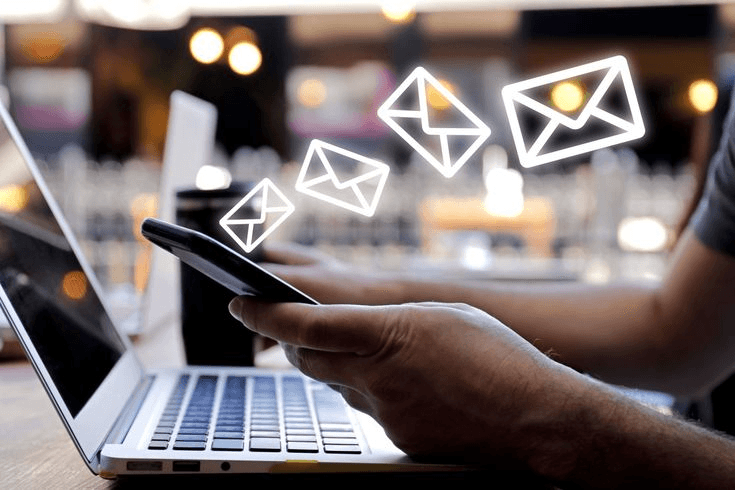
**
Pre-Event Sequence: Building Momentum
The pre-event phase is where conversions happen. Your initial announcement email should focus on value proposition rather than logistics. Lead with the transformation attendees will experience, the problems you'll solve, or the opportunities you'll unlock. Save the detailed schedule for follow-up communications.
Your announcement should create urgency without feeling pushy. Limited seating, early-bird pricing, or exclusive speaker announcements naturally encourage prompt action. However, avoid artificial scarcity tactics that might damage trust with your audience.
Follow your announcement with a series of value-driven emails that reinforce your event's benefits. Share speaker spotlights, preview key sessions, or offer exclusive content related to your event theme. Each email should stand alone as valuable content while collectively building a compelling case for attendance.
### The Registration Nurture Sequence
Not everyone registers immediately, and that's perfectly normal. Your nurture sequence should address common hesitations without being overly sales-focused. Create emails that tackle practical concerns like scheduling conflicts, travel arrangements, or budget considerations.
Social proof plays a crucial role in event email marketing. Share testimonials from previous attendees, highlight notable registrants, or showcase early registration numbers. People want to know they're making a smart decision by joining a valuable gathering of their peers.
Consider segmenting your audience based on engagement levels. Highly engaged subscribers who opened multiple emails but haven't registered might need a different message than those who've shown minimal interest. Personalized approaches yield significantly better conversion rates than one-size-fits-all campaigns.
### Confirmation and Pre-Event Logistics
Once someone registers, your email relationship shifts from persuasion to service. Your confirmation email sets expectations for the entire event experience. Include essential details like date, time, location, and what to bring, but also reinforce the value they'll receive.
Pre-event logistics emails serve multiple purposes beyond information sharing. They maintain engagement, reduce no-shows, and build excitement. Send reminders at strategic intervals – perhaps one week before, three days before, and the morning of your event.
These emails are perfect opportunities to introduce networking elements. Share attendee lists, create discussion forums, or encourage social media engagement with event-specific hashtags. The goal is transforming individual registrants into a community before they even arrive.
**
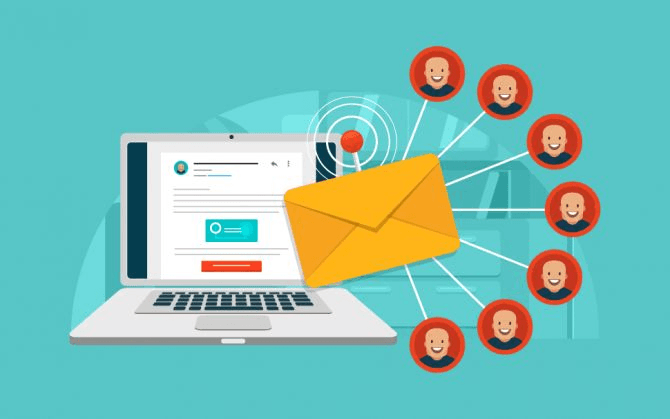
**
### During-Event Engagement
Email doesn't stop when your event begins. Live updates, session highlights, and real-time social media compilation emails keep non-attendees engaged while providing additional value to those present. These communications also create content for future event promotion.
Consider sending brief recap emails at the end of each day for multi-day events. Include key takeaways, photos, and previews of upcoming sessions. This approach maintains momentum and reduces dropout rates between sessions.
### Post-Event Follow-Up: Extending the Experience
The most overlooked aspect of event funnels is post-event engagement. Your follow-up sequence determines whether attendees become advocates, repeat participants, or forgotten contacts in your database.
Send a thank-you email within 24 hours while the experience remains fresh. Include session recordings, presentation slides, or exclusive resources promised during the event. This immediate follow-up reinforces the value received and encourages social sharing.
Your post-event sequence should also capture feedback through surveys, testimonials, or case studies. This content becomes invaluable for promoting future events while helping you improve the attendee experience.
Measuring Event Funnel Success
------------------------------
Effective event email marketing requires consistent measurement and optimization. Track open rates, click-through rates, and conversion rates at each funnel stage. More importantly, monitor registration-to-attendance ratios and post-event engagement levels.
A/B test subject lines, send times, and email formats to optimize performance. Small improvements in open rates can significantly impact overall event attendance when applied across large email lists.
Conclusion
----------
[Event funnels](https://venzi.ai/blog/ai-tools-event-planning-2025/) that convert combine strategic timing, valuable content, and genuine relationship building. By treating email marketing as a complete attendee journey rather than isolated promotional messages, you create experiences that drive registration, ensure attendance, and build lasting connections with your audience.
**The most successful event marketers understand that their email sequence is often the first and most lasting impression of their event. Make it count.
**
---
This blog is powered by Superblog. Visit https://superblog.ai to know more.
---
## AI Tools in Event Planning: What's Hot in 2025?
Author: Unknown
Published: 2025-06-12
Category: AI & Technology
Meta Description: Discover cutting-edge AI event tools transforming modern event planning in 2025. From smart venue selection to personalized networking solutions.
Tags: AI event tools, Event planning AI, Smart event management
URL: https://venzi.ai/blog/ai-tools-event-planning-2025
The event planning industry has undergone a remarkable transformation, with artificial intelligence leading the charge into a new era of efficiency, personalization, and innovation. As we navigate through 2025, AI event tools have become indispensable assets for event planners looking to create memorable experiences while streamlining their workflows.
Gone are the days when event planning relied solely on spreadsheets, manual coordination, and gut instinct. Today's event planning AI solutions are revolutionizing how we conceptualize, organize, and execute events of all scales – from intimate corporate gatherings to massive international conferences.
The AI Revolution in Event Management
-------------------------------------
The integration of artificial intelligence into event planning represents more than just a technological upgrade; it's a fundamental shift in how the industry operates. Modern AI tools process vast amounts of data, predict attendee preferences, optimize logistics, and create personalized experiences that would have been impossible to achieve manually.
Event planners are discovering that AI doesn't replace human creativity and intuition – instead, it amplifies these qualities by handling routine tasks, providing data-driven insights, and enabling professionals to focus on creating unforgettable experiences.
**
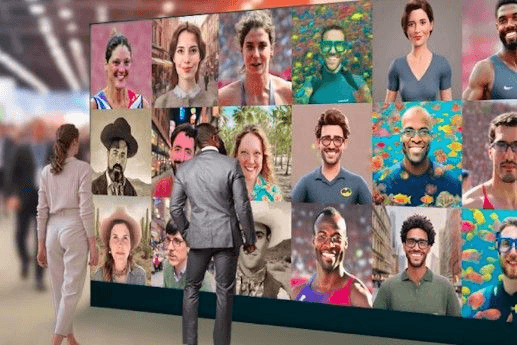
**
Smart Venue Selection and Space Optimization
One of the most significant breakthroughs in event planning AI comes through intelligent venue selection platforms. These sophisticated tools analyze multiple variables simultaneously, including attendee demographics, preferred locations, budget constraints, accessibility requirements, and weather patterns to recommend optimal venues.
Advanced algorithms now predict crowd flow patterns, helping planners optimize space utilization and prevent bottlenecks before they occur. Some platforms offer virtual reality previews powered by AI, allowing clients to experience different venue layouts without physical site visits.
Space optimization tools use machine learning to analyze historical attendance data and suggest optimal seating arrangements, booth placements, and traffic flow designs that maximize engagement while minimizing congestion.
### Intelligent Attendee Experience and Networking
AI is making its biggest impact in attendee experience and networking facilitation. Modern AI event tools analyze attendee profiles, interests, professional backgrounds, and stated goals to create intelligent networking recommendations that go far beyond simple keyword matching.
These systems learn from interaction patterns and feedback to continuously improve their matching algorithms. Some platforms now offer real-time networking suggestions during events, using location data and availability status to facilitate meaningful connections.
AI-powered chatbots have evolved from simple FAQ responders to sophisticated conversation partners that help attendees navigate complex event schedules, make reservations, and provide personalized recommendations based on individual preferences and past behavior.
### Predictive Analytics for Event Success
Predictive analytics capabilities are transforming event planning decision-making. AI tools analyze historical data, market trends, social media sentiment, and external factors to predict event attendance, identify potential issues, and optimize pricing strategies in real-time.
These systems forecast everything from catering requirements and staffing needs to parking demand and merchandise sales. More sophisticated platforms predict which sessions will be most popular, helping organizers make informed decisions about room assignments and capacity planning.
Weather prediction integration has become particularly valuable, with AI systems automatically adjusting outdoor event plans, recommending contingency measures, and predicting how weather conditions might affect attendee engagement levels.
**
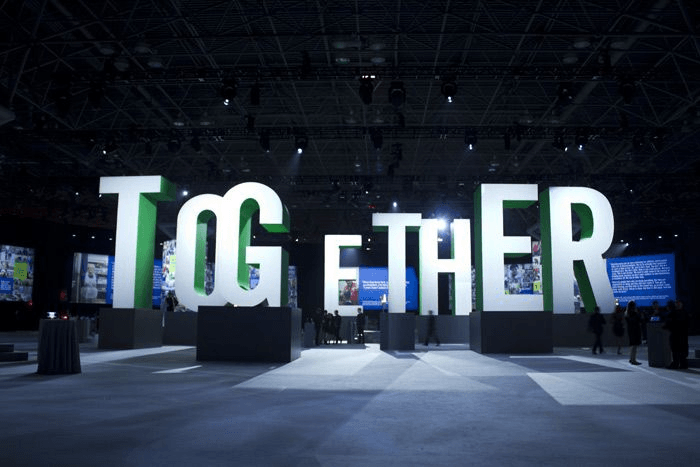
**
Automated Content Creation and Personalization
Content creation has been revolutionized by AI tools that generate personalized event materials, from customized invitations and agenda recommendations to post-event follow-up communications. These systems analyze attendee data to create highly targeted content that resonates with specific audience segments.
Dynamic scheduling platforms use AI to create personalized agendas for each attendee, considering their interests, availability, networking goals, and energy levels throughout the day. This level of personalization was previously impossible at scale but is now becoming the standard expectation.
Social media content generation has also been transformed, with AI tools creating event-specific hashtags, generating engaging post content, and predicting optimal posting times for maximum engagement across different platforms.
Real-Time Event Optimization
----------------------------
During live events, AI tools provide unprecedented visibility and control. Real-time sentiment analysis of social media posts, feedback forms, and engagement data helps organizers understand attendee satisfaction levels as events unfold.
Dynamic resource allocation systems automatically adjust staffing levels, redirect foot traffic, and modify environmental settings based on real-time occupancy and engagement data. Advanced systems can predict and prevent potential safety issues by analyzing crowd density and movement patterns.
Sustainable Event Planning Through AI
-------------------------------------
Environmental consciousness has become crucial in modern event planning, and AI tools are leading toward more sustainable practices. Carbon footprint calculators powered by machine learning analyze every aspect of an event, providing actionable insights for reducing environmental impact.
Waste prediction algorithms help organizers order appropriate quantities of materials and food, significantly reducing post-event waste. Transportation optimization tools suggest carpooling arrangements and optimal routes to minimize the event's overall carbon footprint.
The Future of AI in Event Planning
----------------------------------
As we progress through 2025, integration between different AI event tools is becoming increasingly seamless. Comprehensive platforms combining venue selection, attendee management, content creation, and real-time optimization are emerging as preferred solutions for professional event planners.
The trend toward voice-activated and conversational AI interfaces is making these powerful tools more accessible to event planners without extensive technical backgrounds, democratizing access to advanced event planning capabilities.
Embracing the AI-Powered Future
-------------------------------
The landscape of [event planning](https://venzi.ai/blog/boost-b2b-leads-post-event-follow-up-tactics/) continues to evolve at an unprecedented pace, with artificial intelligence serving as the catalyst for innovation and efficiency. The most successful event planners are those who embrace these technologies while maintaining the human touch that makes events truly memorable.
For event professionals looking to stay competitive in 2025, investing in AI event tools isn't just an option – it's becoming essential for delivering the personalized, efficient, and impactful experiences that modern attendees expect.
---
This blog is powered by Superblog. Visit https://superblog.ai to know more.
---
## Boosting B2B Leads with Effective Post-Event Follow-Up Tactics
Author: Unknown
Published: 2025-06-09
Category: B2B Marketing
Meta Title: Boost B2B Leads with Post-Event Follow-Up Tactics | Venzi.ai
Meta Description: Master effective email, retargeting, and content strategies to convert event prospects into qualified B2B leads. Expert post-event tactics that boost ROI.
Tags: B2B lead generation, email marketing, post-event strategy
URL: https://venzi.ai/blog/boost-b2b-leads-post-event-follow-up-tactics
Trade shows, conferences, webinars, and networking events represent significant investments for B2B companies. While the immediate networking and brand exposure provide value, the real ROI comes from what happens after the event ends. The follow-up phase is where prospects transform into qualified leads and eventually into customers.
Studies show that 80% of leads generated at events never receive proper follow-up, representing millions in missed revenue opportunities. Companies that implement strategic post-event follow-up tactics see 3x higher conversion rates compared to those relying on basic email outreach alone.
The Critical 48-Hour Window
---------------------------
The effectiveness of your post-event strategy hinges on timing. Research indicates that leads contacted within 48 hours of an event are 60% more likely to engage compared to those contacted after a week. During this golden window, your brand remains fresh in prospects' minds, and the momentum from face-to-face interactions hasn't dissipated.
Create a systematic approach by categorizing leads immediately after the event. Segment contacts based on their level of interest, decision-making authority, and timeline for potential purchases. This segmentation enables personalized follow-up that resonates with each prospect's specific situation and needs.
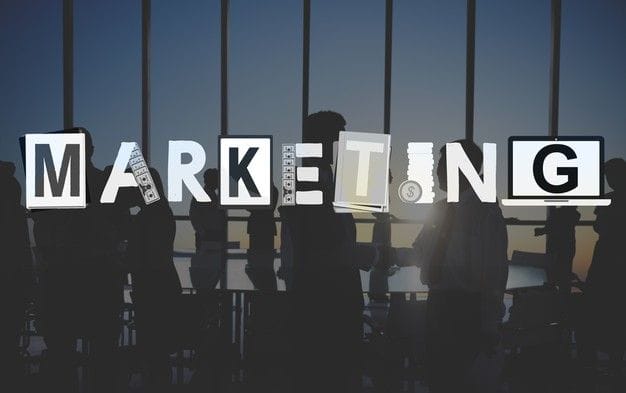
### Strategic Email Follow-Up Campaigns
Email remains the cornerstone of B2B post-event communication, but generic "nice meeting you" messages fall flat. Successful B2B lead generation requires personalized, value-driven email sequences that continue the conversation started at the event.
Begin with a personalized connection email that references specific conversation points from your interaction. Include relevant resources such as case studies, whitepapers, or product demos that address challenges discussed during your meeting. This approach demonstrates active listening and positions your company as a solution provider rather than just another vendor.
Develop a multi-touch email sequence spanning 2-3 weeks. The first email should arrive within 24 hours, followed by value-added touchpoints every 3-4 days. Each email should provide unique value while gently moving prospects through your sales funnel. Include social proof, customer testimonials, and relevant industry insights that align with their business challenges.
### Leveraging Retargeting for Sustained Engagement
Digital retargeting campaigns amplify your post-event strategy by maintaining visibility across multiple touchpoints. Upload your event attendee list to create custom audiences on LinkedIn, Google Ads, and other relevant platforms where your B2B prospects spend time.
LinkedIn retargeting proves particularly effective for B2B companies, allowing you to serve targeted content to event attendees as they browse their professional network. Create ad campaigns featuring event highlights, exclusive content offers, or invitations to product demonstrations. This multi-channel approach ensures your brand remains top-of-mind during their decision-making process.
Implement sequential retargeting campaigns that align with your email outreach timeline. Start with awareness-focused ads highlighting your event presence, then progress to consideration-stage content like case studies and product comparisons, finally culminating in conversion-focused calls-to-action.
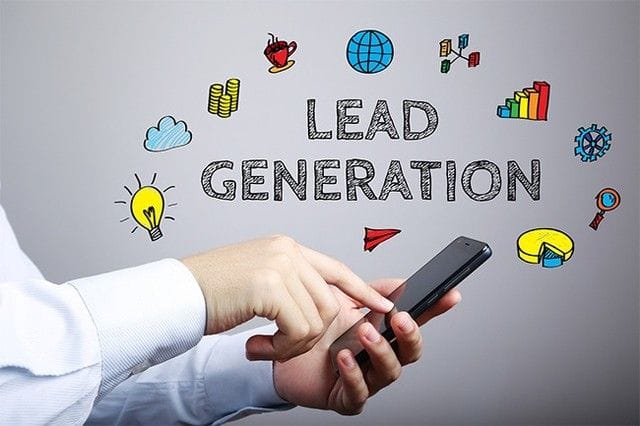
### Content Marketing That Converts
Content serves as the foundation for effective post-event nurturing. Develop gated content specifically designed for event prospects, such as industry reports, exclusive webinars, or comprehensive guides addressing challenges commonly discussed at the event.
Create event-specific landing pages that reference the conference or trade show, making prospects feel part of an exclusive group. These pages should offer valuable resources in exchange for additional contact information, helping you build more complete prospect profiles for future nurturing efforts.
Consider hosting exclusive post-event webinars for attendees, featuring industry experts or detailed product demonstrations. These sessions provide additional touchpoints while delivering genuine value to prospects still in the research phase of their buying journey.
### Measuring and Optimizing Your Post-Event Strategy
Track key metrics to evaluate your post-event follow-up effectiveness. Monitor email open rates, click-through rates, and response rates across different prospect segments. Analyze which content pieces generate the most engagement and which follow-up sequences produce the highest conversion rates.
Implement lead scoring based on post-event engagement levels. Prospects who download multiple resources, attend follow-up webinars, or engage with retargeting ads demonstrate higher purchase intent and should receive priority attention from your sales team.
Use marketing automation to streamline follow-up processes while maintaining personalization. Automated workflows can trigger specific actions based on prospect behavior, ensuring timely and relevant communication without overwhelming your team.
Turning Strategy Into Revenue
-----------------------------
Effective post-event follow-up requires coordination between marketing and sales teams. Establish clear handoff procedures for qualified leads and ensure sales representatives have context about each prospect's event interactions and follow-up engagement history.
The companies that maximize B2B lead generation from events treat post-event follow-up as seriously as the event itself. By implementing personalized email campaigns, strategic retargeting, and valuable content offerings, you transform one-time event interactions into ongoing business relationships.
Remember that post-event strategy isn't just about immediate conversions. Many B2B purchase decisions involve extended consideration periods, making consistent, value-driven follow-up essential for long-term success. The prospects you nurture today through strategic post-event tactics become tomorrow's customers and brand advocates.
Start implementing these proven post-event follow-up tactics to maximize your [event ROI](https://venzi.ai/blog/micro-events-major-impact-small-format-big-results/) and transform connections into revenue-generating opportunities.
---
This blog is powered by Superblog. Visit https://superblog.ai to know more.
---
## Micro Events, Major Impact: Small Format, Big Results
Author: Unknown
Published: 2025-06-05
Category: Event Marketing
Meta Title: Micro Events: Small Format, Big Results & Higher ROI
Meta Description: Discover how micro events drive higher engagement and superior ROI. Learn why intimate gatherings of 10-50 attendees outperform large-scale events.
Tags: micro events, small event marketing, event ROI, intimate events
URL: https://venzi.ai/blog/micro-events-major-impact-small-format-big-results
In today's saturated marketing landscape, brands are discovering that bigger isn't always better. While massive conferences and large-scale events have their place, a growing trend toward micro events is proving that intimate gatherings can deliver outsized results. These carefully curated, small-format experiences are revolutionizing how businesses connect with their audiences, driving higher engagement rates and superior ROI compared to their larger counterparts.
What Are Micro Events?
----------------------
Micro events are intimate, focused gatherings typically hosting 10-50 attendees. Unlike traditional large-scale events, these experiences prioritize quality interactions over quantity. They can take various forms: exclusive product launches, expert roundtables, workshop sessions, networking dinners, or specialized training programs. The key differentiator lies not in the size but in the intentional design that fosters meaningful connections and engagement.
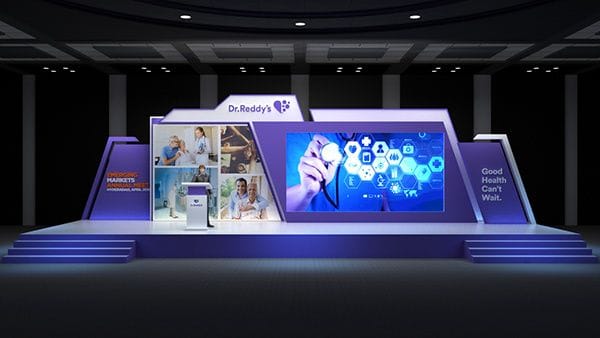
### The Power of Intimacy in Event Marketing
The magic of micro events lies in their ability to create genuine human connections. When attendees aren't lost in a crowd of hundreds, they're more likely to engage authentically with your brand, speakers, and fellow participants. This intimate setting allows for personalized experiences that larger events simply cannot replicate.
Consider the difference between asking a question in a 500-person auditorium versus a 20-person roundtable discussion. The smaller format encourages participation, creates psychological safety, and enables deeper conversations that lead to stronger brand relationships and business outcomes.
### Higher Engagement Through Personalization
Small event marketing thrives on its ability to deliver highly personalized experiences. With fewer attendees, event organizers can tailor content, interactions, and even follow-up communications to individual needs and interests. This level of customization creates a sense of exclusivity and value that attendees rarely experience at larger events.
Micro events allow for real-time adaptation. If a particular topic resonates strongly with the group, facilitators can dive deeper. If attendees express specific challenges, the agenda can be adjusted to address them directly. This flexibility transforms passive attendees into active participants, dramatically increasing engagement levels.
### Superior ROI: Quality Over Quantity
The financial advantages of micro events extend far beyond reduced venue costs. While the per-attendee investment might be higher, the return on investment often surpasses larger events due to several factors:
**Higher Conversion Rates**: The intimate setting and personalized attention typically result in higher lead-to-customer conversion rates. Attendees leave with a stronger connection to your brand and clearer understanding of how your solutions address their specific needs.
**Reduced Waste**: Unlike large events where significant resources are spent on attendees who may not be ideal prospects, micro events allow for precise audience curation. Every seat is filled with a carefully selected participant who represents genuine business potential.
**Enhanced Brand Perception**: The exclusivity and personalized attention associated with micro events elevate brand perception. Attendees feel valued and special, creating positive brand associations that extend well beyond the event itself.
**Streamlined Operations**: Smaller events require fewer resources, less complex logistics, and smaller teams to execute successfully. This operational efficiency translates directly to cost savings and higher profit margins.
Building Deeper Professional Networks
-------------------------------------
[Micro events](https://venzi.ai/blog/social-media-content-ideas-event-promotion/) excel at facilitating meaningful professional connections. In smaller groups, attendees have genuine opportunities to connect with everyone present, including speakers, organizers, and fellow participants. These aren't superficial networking exchanges but substantive conversations that often develop into lasting professional relationships.
The networking value compounds when you consider that micro events typically attract senior-level decision-makers who appreciate the efficiency and exclusivity of smaller gatherings. C-suite executives and industry leaders are more likely to attend and engage meaningfully in intimate settings than crowded conferences.
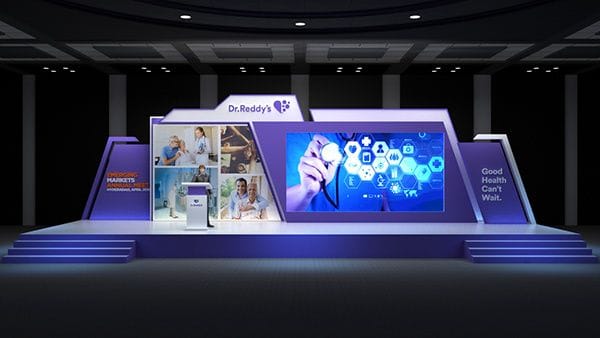
Implementation Strategies for Maximum Impact
--------------------------------------------
Successful micro events require strategic planning and execution. Start by defining clear objectives and identifying your ideal audience with laser precision. The success of small event marketing depends heavily on having the right people in the room.
Content should be highly relevant and actionable. Consider interactive formats like workshops, case study discussions, or problem-solving sessions rather than traditional presentation styles. Encourage participation through structured activities that leverage the small group dynamic.
Follow-up is crucial and more manageable with smaller attendee lists. Personalized post-event communications, exclusive resources, and continued engagement opportunities help maintain momentum and drive desired outcomes.
The Future of Event Marketing
-----------------------------
As attention becomes increasingly fragmented and audiences seek more meaningful experiences, micro events represent the future of effective event marketing. They offer the perfect antidote to event fatigue while delivering the human connection that digital interactions cannot replicate.
Smart brands are recognizing that in a world of endless options and shortened attention spans, the path to meaningful engagement often leads through smaller, more thoughtful experiences. Micro events don't just deliver results—they create lasting impressions that drive business growth.
By embracing the micro event approach, businesses can achieve greater engagement, stronger relationships, and superior ROI while providing attendees with the exclusive, personalized experiences they increasingly demand in today's marketplace. The era of one-size-fits-all events is ending, replaced by targeted experiences that deliver measurable results.
---
This blog is powered by Superblog. Visit https://superblog.ai to know more.
---
## Social Media Content Ideas for Your Next Event: Strategies That Drive Results
Author: Unknown
Published: 2025-05-31
Category: Event Marketing
Meta Title: Social Media Content Ideas for Event Promotion That Work
Meta Description: Discover proven social media content strategies to promote your next event. Get creative ideas for pre-event buzz, live coverage, and post-event engagement.
Tags: Event Planning Tools, social media marketing, event marketing tips
URL: https://venzi.ai/blog/social-media-content-ideas-event-promotion
Planning an incredible event is only half the battle. The other half? Getting people excited enough to actually show up. In today's digital landscape, social media isn't just a nice-to-have for event promotion—it's absolutely essential. Whether you're organizing a corporate conference, product launch, workshop, or community gathering, the right social media strategy can transform your event from "maybe I'll go" to "I can't wait to be there."
Pre-Event Content That Builds Anticipation
------------------------------------------
The key to successful event promotion is starting early and creating content that makes people feel like insiders. Behind-the-scenes content works exceptionally well because people love exclusive access. Share time-lapse videos of venue setup, candid photos of planning meetings, or sneak peeks of speaker preparations. These authentic moments humanize your event and build emotional investment before anyone arrives.
Speaker spotlights transform names on your agenda into real people your audience wants to meet. Create short video introductions where speakers share key insights, or design quote graphics featuring their most compelling thoughts. Consider giving speakers temporary control of your social accounts for takeovers that provide their unique perspective on your event's topics.
Educational teasers prove your event's value by giving audiences a taste of what they'll learn. Share mini-lessons related to your event topics, industry statistics you'll address, or problem-and-solution posts that position your event as the answer to challenges your audience faces. This approach moves beyond simple promotion to provide genuine value.
Social proof leverages FOMO more effectively than any sales pitch. Repost attendee excitement, share testimonials from previous events, and create branded hashtags that encourage organic promotion. When potential attendees see their peers excited about your event, it creates powerful motivation to register.
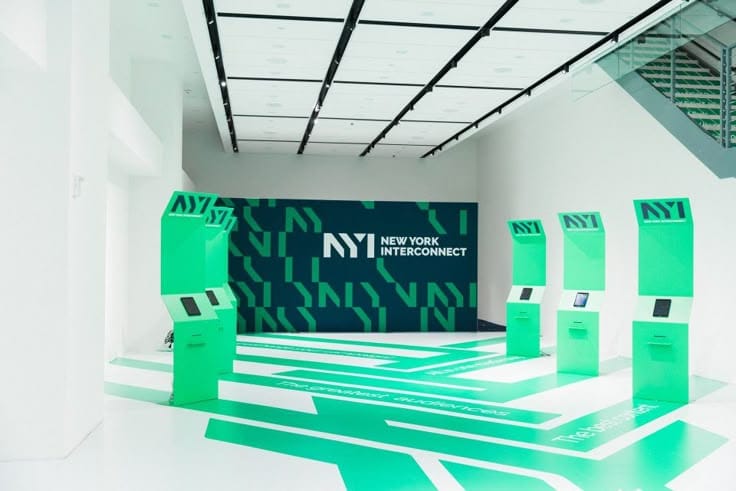
Live Event Coverage That Extends Your Reach
-------------------------------------------
Transform your event day into a content goldmine by creating shareable moments throughout. Use Instagram Stories for behind-the-scenes access, create Twitter threads capturing key takeaways in real-time, and consider Facebook Live streaming select sessions for virtual audiences.
Interactive elements keep both in-person and online audiences engaged. Live Twitter Q&As with speakers, Instagram Story polls about event content, and photo contests with event hashtags create participatory experiences that extend your event's impact beyond the physical venue.
Post-Event Content That Maximizes Value
---------------------------------------
Your content strategy shouldn't end when your event does. Create video highlight reels capturing key moments, design photo carousels showcasing memorable shots, and develop quote graphics featuring standout speaker insights. These materials provide ongoing value while building anticipation for future events.
Follow up with educational content that helps attendees implement what they learned. Share resource lists mentioned during sessions, speaker slide decks, and action item checklists. This approach transforms one-time attendees into long-term community members.
Platform-Specific Strategies
----------------------------
Each social platform serves different purposes in your promotion strategy. LinkedIn excels for B2B events and professional development content. Focus on industry insights, networking opportunities, and career advancement benefits. Share professional speaker credentials and engage in industry trend discussions.
Instagram's visual nature creates desire and FOMO around your event experience. High-quality venue photos, Stories with countdown stickers, and Reels showcasing preparations work particularly well. The platform's aesthetic focus makes it perfect for building visual anticipation.
Twitter's fast-paced environment suits live updates and community building. Live-tweet key insights, create event hashtags, and engage in real-time conversations about industry topics. The platform's conversational nature makes it ideal for building event buzz.
Facebook's community features support detailed information sharing and long-term relationship building. Create comprehensive event pages, establish groups for attendee networking, and share detailed countdown posts. The platform's longer-form content capabilities help communicate complex event value propositions.
Timing and Measurement
----------------------
Start promoting six weeks before your event for optimal results. Begin with announcements and early bird promotions, move into speaker spotlights during middle weeks, then finish with urgency messaging and social proof. During event week, shift to daily countdown posts and excitement building.
Track engagement rates, reach, impressions, and click-through rates to understand what resonates with your audience. Monitor hashtag performance and registration attribution by platform to optimize future campaigns. Use native platform analytics and Google Analytics with UTM parameters for comprehensive performance insights.
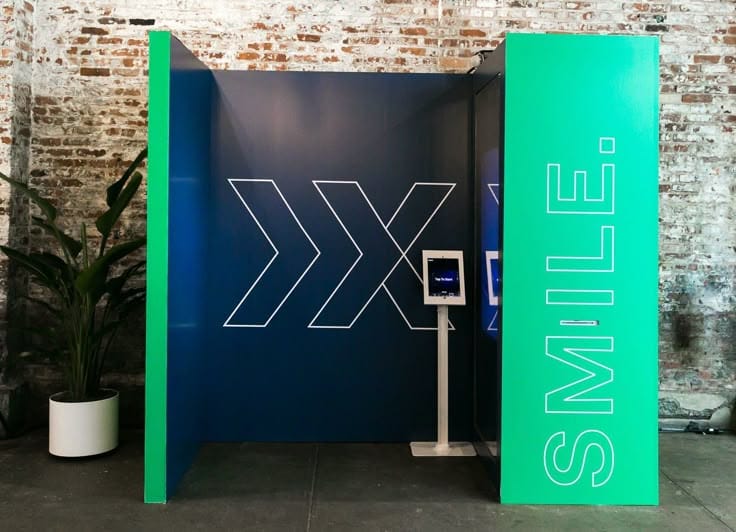
### Advanced Strategies
Leverage influencer partnerships and speaker collaborations to expand your reach. Cross-promote with complementary organizations and consider paid social amplification for high-performing content. Build lasting community through post-event groups and regular content sharing between events.
Key Success Factors
-------------------
Balance promotional posts with educational and entertaining content rather than constantly pushing registration. Maintain consistent messaging across platforms while customizing content for each platform's unique audience. Start early enough to build genuine excitement and remember that social media requires active, two-way engagement.
The most successful event organizers understand that social media promotion builds lasting relationships with their audience. Each post is an opportunity to demonstrate value, build trust, and create authentic excitement that transforms casual browsers into enthusiastic attendees. When executed well, your social media content doesn't just promote your event—it becomes part of the event experience itself.
* * *
_Looking for more insights on event marketing and audience engagement? Explore [Venzi's](https://venzi.ai/blog/essential-event-success-metrics-track/)comprehensive resources for event organizers and marketers who want to create memorable experiences that drive real results._
---
This blog is powered by Superblog. Visit https://superblog.ai to know more.
---
## Essential Event Success Metrics Every Organizer Should Track
Author: Unknown
Published: 2025-05-30
Category: Smart Event Management
Meta Title: Essential Event Success Metrics Every Organizer Should Track
Meta Description: Discover essential event success metrics to track performance, improve ROI, and make data-driven decisions for future events. Complete guide inside.
Tags: event management software, Data-Driven Events, Event Metrics
URL: https://venzi.ai/blog/essential-event-success-metrics-track
_The top metrics for tracking performance and improving future events. Supports data-driven decision making._
In today's competitive event landscape, success isn't just measured by applause or positive feedback. Modern event professionals need concrete data to understand what worked, what didn't, and how to optimize future experiences. Whether you're organizing corporate conferences, trade shows, or networking events, tracking the right metrics transforms gut feelings into actionable insights.
At Venzi, we understand that data-driven decision making is the cornerstone of exceptional event management. Let's explore the essential metrics every event organizer should track to measure success and drive continuous improvement.
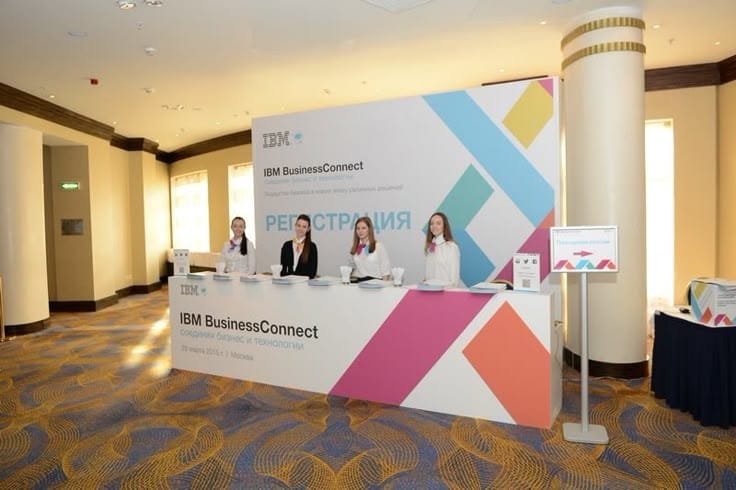
Pre-Event Metrics: Setting the Foundation
-----------------------------------------
### Registration and Marketing Performance
**Registration Rate**: Track the percentage of people who register after viewing your event page or receiving invitations. A healthy registration rate typically ranges from 20-30% for corporate events.
**Marketing Channel Effectiveness**: Measure which channels drive the most registrations. Monitor email open rates (aim for 20-25%), social media engagement, and website traffic to identify your most valuable marketing investments.
**Early Bird vs. Regular Registration Ratio**: This metric reveals attendee enthusiasm and helps optimize pricing strategies. A 60-70% early bird registration rate indicates strong initial interest.
### Attendance Predictions
**Registration-to-Attendance Ratio**: Historical data shows that typically 70-80% of registered attendees actually show up. Track this ratio to improve capacity planning and catering decisions.
During-Event Metrics: Real-Time Success Indicators
--------------------------------------------------
### Engagement Metrics
**Session Attendance Rates**: Measure how many registered attendees participate in each session. High-value content typically sees 80-90% attendance rates, while optional sessions may see 40-60%.
**Audience Interaction**: Track questions asked, polls participated in, and chat messages sent. Active engagement often correlates with event satisfaction and knowledge retention.
**Networking Activity**: For events with networking components, measure connection rates, conversation duration, and follow-up meeting bookings.
### Operational Efficiency
**Check-in Time**: Monitor average check-in duration. Efficient events maintain under 2-minute check-ins, directly impacting attendee satisfaction.
**Technical Issues**: Track system downtime, audio/visual problems, and platform accessibility issues. Zero tolerance for technical disruptions should be the goal.
Post-Event Metrics: Measuring Long-Term Impact
----------------------------------------------
### Satisfaction and Feedback
**Net Promoter Score (NPS)**: Ask attendees how likely they are to recommend your event. Scores above 50 are considered excellent, while scores above 70 indicate exceptional experiences.
**Overall Satisfaction Rating**: Use a 1-10 scale to gauge general satisfaction. Successful events typically achieve ratings of 8.0 or higher.
**Content Quality Scores**: Rate individual sessions, speakers, and topics. This granular feedback helps optimize future programming.
### Business Impact Metrics
**Lead Generation**: For B2B events, track qualified leads generated, business cards exchanged, and meeting requests scheduled. Quality trumps quantity in lead measurement.
**Revenue Attribution**: Measure direct sales resulting from the event, including immediate purchases and deals closed within 90 days post-event.
**Brand Awareness Lift**: Track social media mentions, website traffic increases, and brand search volume changes following your event.
### Learning and Development Outcomes
**Knowledge Retention**: For educational events, conduct pre- and post-event assessments to measure learning objectives achievement.
**Certification or Completion Rates**: Track how many attendees complete required sessions or earn certifications offered during the event.
**Implementation Rate**: Follow up 30-60 days post-event to measure how many attendees implemented lessons learned or took recommended actions.
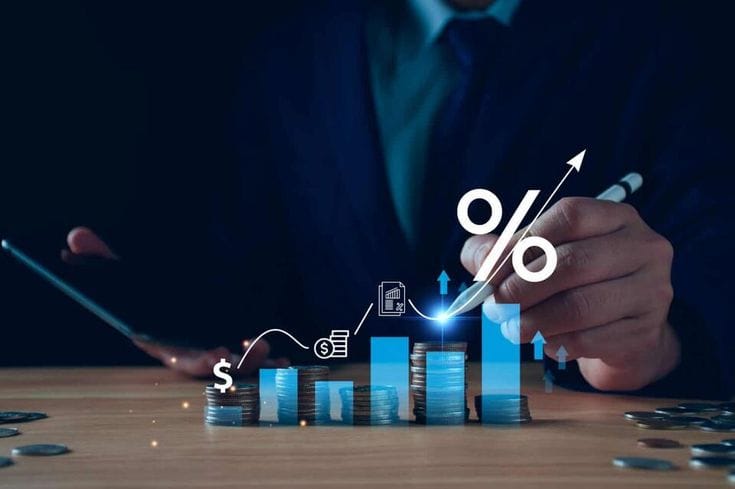
Advanced Analytics: Deeper Insights
-----------------------------------
### Attendee Journey Mapping
**Engagement Timeline**: Track when attendees are most active during your event. This data helps optimize scheduling and content placement.
**Drop-off Points**: Identify when and where attendees disengage. High drop-off rates may indicate content issues, technical problems, or scheduling conflicts.
### Comparative Analysis
**Year-over-Year Growth**: Compare current metrics against previous events to identify trends and improvement areas.
**Benchmark Comparison**: Measure your performance against industry standards and competitor events when possible.
**ROI Calculation**: Compare total event costs against measurable business outcomes to determine return on investment.
Technology Integration: Leveraging Event Platforms
--------------------------------------------------
Modern event management platforms like Venzi provide automated tracking for many of these metrics, eliminating manual data collection and reducing human error. Integration capabilities allow you to:
* Automatically capture registration and attendance data
* Monitor real-time engagement across all event touchpoints
* Generate comprehensive post-event reports
* Track long-term attendee behavior and preferences
Actionable Recommendations
--------------------------
### For Immediate Implementation
1. **Establish Baseline Metrics**: If you're new to event analytics, start with five core metrics: registration rate, attendance rate, satisfaction score, NPS, and lead generation.
2. **Create Measurement Templates**: Develop standardized surveys and tracking methods to ensure consistent data collection across all events.
3. **Set Realistic Benchmarks**: Use industry standards as starting points, but focus on beating your own previous performance.
### For Long-Term Success
1. **Invest in Analytics Tools**: Choose event management platforms that provide robust reporting capabilities and integrate with your existing marketing and sales systems.
2. **Train Your Team**: Ensure all team members understand which metrics to track and how to interpret the data.
3. **Create Feedback Loops**: Establish regular review cycles to analyze performance data and implement improvements for future events.
Common Pitfalls to Avoid
------------------------
**Vanity Metrics Trap**: Don't focus solely on attendance numbers or social media likes. These metrics don't necessarily correlate with business outcomes or event success.
**Analysis Paralysis**: While comprehensive data is valuable, avoid tracking so many metrics that you lose focus on the most important indicators.
**One-Size-Fits-All Approach**: Different event types require different success metrics. A networking event's success metrics will differ significantly from a training workshop's.
The Future of Event Analytics
-----------------------------
Event measurement continues evolving with technological advances. Emerging trends include AI-powered sentiment analysis, biometric engagement tracking, and predictive analytics for attendee behavior. However, the fundamentals remain constant: successful events create value for attendees and measurable outcomes for organizers.
Conclusion
----------
Measuring event success requires a strategic approach that balances quantitative data with qualitative insights. By tracking the right metrics at each stage of your event lifecycle, you'll build a foundation for continuous improvement and data-driven decision making.
The most successful event organizers don't just measure success after the fact—they build measurement into every aspect of their planning and execution process. Start with the basics, expand your analytics capabilities over time, and always remember that metrics should serve the ultimate goal of creating exceptional attendee experiences.
Ready to transform your event measurement strategy? Consider how comprehensive event management platforms can automate data collection and provide the insights you need to create truly exceptional events that deliver measurable business value.
* * *
_Want to elevate your [event management](https://venzi.ai/blog/event-tech-stack-choosing-right-tools-success/) with powerful analytics and seamless execution? Discover how Venzi's comprehensive platform can help you track, measure, and optimize every aspect of your events for maximum impact and ROI._
---
This blog is powered by Superblog. Visit https://superblog.ai to know more.
---
## Event Tech Stack: Choosing the Right Tools for Success
Author: Unknown
Published: 2025-05-27
Category: Event Technology
Meta Title: Event Tech Stack: Choosing the Right Tools for Success
Meta Description: Learn how to choose and integrate the perfect event tech stack. Discover essential tools, AI-powered solutions, and strategies to streamline logistics.
Tags: venue management, networking tools
URL: https://venzi.ai/blog/event-tech-stack-choosing-right-tools-success
_How to choose and integrate event tech that matches your goals, simplifies event logistics, and improves attendee experience_
The modern event landscape has been transformed by technology. From virtual networking platforms to AI-powered matchmaking, event organizers today have access to an unprecedented array of digital tools. However, with countless options available, choosing the right technology stack can feel overwhelming. The key lies not in adopting every new tool, but in strategically selecting technologies that align with your specific event goals and enhance both operational efficiency and attendee satisfaction.
Understanding Your Event Tech Foundation
----------------------------------------
Before diving into specific tools, it's crucial to understand what constitutes an effective event tech stack. Think of it as the digital infrastructure that supports every aspect of your event, from initial planning through post-event follow-up. A well-designed tech stack should seamlessly integrate multiple components while serving distinct purposes throughout the event lifecycle.
The most successful event organizers approach technology selection with a clear understanding of their primary objectives. Are you focused on maximizing networking opportunities? Streamlining registration and check-in processes? Gathering comprehensive attendee data? Or perhaps creating immersive hybrid experiences that engage both in-person and virtual participants? Your answers to these questions will guide every subsequent technology decision.
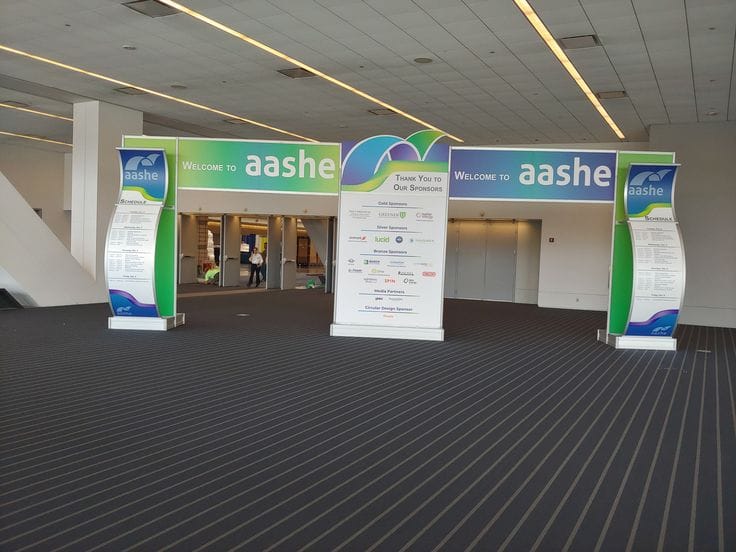
Core Components of a Modern Event Tech Stack
--------------------------------------------
### Registration and Event Management Platforms
Your registration system serves as the first touchpoint between your event and potential attendees, making it a critical component of your tech stack. Modern registration platforms go far beyond simple ticket sales, offering sophisticated features like tiered pricing, early bird discounts, group registrations, and detailed attendee profiling.
Comprehensive event management platforms serve as the central nervous system of your tech stack, coordinating multiple functions from a single dashboard. These systems typically include features for venue management, speaker coordination, schedule building, and team collaboration. When selecting platforms, prioritize those that offer robust API integrations, allowing you to connect with specialized tools that address your unique requirements.
### Mobile Event Apps and Networking Tools
Mobile apps have become essential for creating engaging, interactive event experiences. Modern event apps go beyond static schedules and speaker bios, offering features like live polling, Q&A sessions, networking tools, and gamification elements that encourage active participation.
Facilitating meaningful connections between attendees is often a primary goal for events, and technology can significantly enhance networking opportunities. AI-powered matchmaking tools analyze attendee profiles and interests to suggest relevant connections, while dedicated networking platforms provide structured environments for relationship building.
AI-Powered Event Intelligence
-----------------------------
Artificial intelligence is revolutionizing how events are planned, executed, and optimized. AI-powered platforms like Venzi are transforming event management by providing intelligent insights, automated workflows, and predictive analytics that help organizers make data-driven decisions throughout the event lifecycle.
These advanced platforms can analyze attendee behavior patterns, predict engagement levels, optimize session scheduling, and even suggest content recommendations based on participant interests. AI tools excel at managing complex logistics, from automated speaker coordination to intelligent venue capacity management, allowing event organizers to focus on creating exceptional experiences rather than getting bogged down in operational details.
Hybrid Events and Analytics
---------------------------
The rise of hybrid events has created demand for sophisticated streaming and interaction technologies. Modern hybrid platforms offer multi-camera production capabilities, interactive features for remote attendees, and seamless integration between physical and virtual experiences. When selecting hybrid event technology, consider factors like video quality, latency, audience capacity, and interactive features.
Data-driven decision making has become crucial for event success, and modern analytics tools provide unprecedented insights into attendee behavior, engagement levels, and event performance. These platforms can track everything from session attendance and app usage to networking activity and content engagement.
Strategic Integration and Implementation
----------------------------------------
The true power of an event tech stack lies not in individual tools, but in how effectively they work together. Successful integration requires careful planning and a clear understanding of data flow between systems. API integrations are often the key to seamless connectivity between platforms, while data consistency ensures that attendee information remains synchronized across all systems.
Budget considerations are equally important. Technology investments can represent a significant portion of your event budget, making careful financial planning essential. Calculate potential ROI by considering both cost savings and revenue generation opportunities. Automated processes can reduce staffing requirements, while enhanced attendee experiences can justify premium pricing.
The Future of Event Technology
------------------------------
As we look toward the future of event technology, artificial intelligence emerges as the most transformative force in the industry. Platforms like [Venzi](https://venzi.ai/blog/data-driven-event-personalization-roi-satisfaction/) are pioneering this evolution by offering comprehensive AI-powered event management solutions that go beyond traditional tools to provide intelligent, predictive, and adaptive event experiences.
AI-driven platforms excel in areas where human capabilities reach their limits. They can process vast amounts of attendee data to identify optimal networking matches, predict which sessions will be most popular, and even suggest real-time agenda adjustments based on engagement patterns. This level of intelligence enables event organizers to create truly personalized experiences that adapt to attendee preferences and behaviors in real-time.
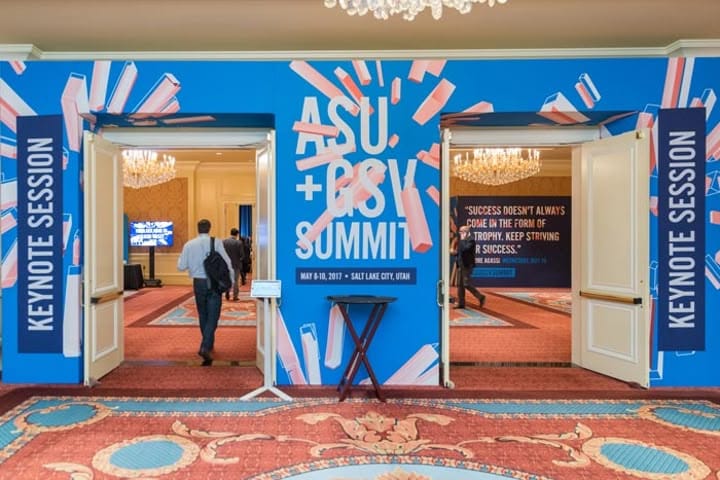
Conclusion
----------
Building an effective event tech stack is both an art and a science, requiring strategic thinking, careful planning, and ongoing optimization. The most successful approach focuses on understanding your specific event goals and selecting technologies that enhance rather than complicate your operations.
Remember that technology should serve your event objectives, not drive them. The best tech stacks are often invisible to attendees, seamlessly facilitating great experiences without drawing attention to themselves. By focusing on integration, user experience, and measurable outcomes, you can create a technology foundation that supports exceptional events and drives long-term success.
---
This blog is powered by Superblog. Visit https://superblog.ai to know more.
---
## Personalizing Events: Leveraging Attendee Data for Tailored Experiences
Author: Unknown
Published: 2025-05-26
Category: Event Technology
Meta Title: Data-Driven Event Personalization: Higher ROI & Satisfaction
Meta Description: Learn how to use attendee data to personalize events, boost satisfaction by 73%, and increase ROI by 40%. Expert strategies for tailored experiences.
Tags: event ROI, Data Analytics, Event personalization
URL: https://venzi.ai/blog/data-driven-event-personalization-roi-satisfaction
In today's competitive event landscape, one-size-fits-all approaches no longer cut it. Attendees expect experiences that speak directly to their interests, preferences, and professional goals. The key to delivering these tailored experiences lies in data – and more importantly, how you leverage it to create meaningful, personalized interactions that drive satisfaction and ROI.
The Power of Data-Driven Event Personalization
----------------------------------------------
Event personalization isn't just about adding someone's name to an email. It's about creating experiences that feel uniquely crafted for each attendee based on their behavior, preferences, and objectives. When done right, personalized events can increase attendee satisfaction by up to 73% and boost event ROI by 40%.
Modern event technology platforms collect vast amounts of data throughout the attendee journey – from registration patterns and session preferences to networking behaviors and engagement metrics. The challenge isn't gathering this data; it's transforming it into actionable insights that enhance the attendee experience.
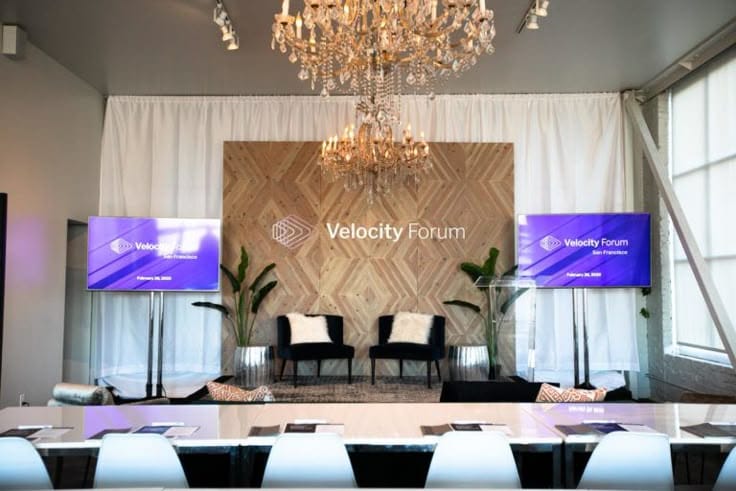
Key Areas Where Data Drives Personalization
-------------------------------------------
### 1\. Intelligent Session Recommendations
By analyzing attendee profiles, past event behavior, and stated interests, smart algorithms can recommend sessions that align with individual goals. This goes beyond simple category matching – advanced systems consider factors like skill level, industry focus, and career trajectory to suggest truly relevant content.
For example, a marketing professional attending a tech conference might receive recommendations not just for marketing sessions, but for specific talks about AI in marketing automation or data privacy compliance – topics that intersect with their role and current industry trends.
### 2\. Dynamic Content Curation
Event apps and platforms can now deliver personalized content feeds, displaying the most relevant announcements, resources, and updates for each attendee. This ensures important information doesn't get lost in the noise and keeps attendees engaged with content that matters to them.
### 3\. Strategic Networking Facilitation
Perhaps the most valuable aspect of events is networking, yet it's often left to chance. Data-driven platforms can analyze attendee profiles, interests, and objectives to suggest meaningful connections. By facilitating introductions between attendees with complementary goals or shared interests, events become more valuable networking opportunities.
### 4\. Customized Communication Flows
Pre-event, during-event, and post-event communications can be tailored based on attendee segments, engagement levels, and preferences. New attendees might receive orientation materials, while returning participants get updates on new features or sessions that build on previous year's content.
The Technology Behind Personalization
-------------------------------------
Modern event platforms use a combination of technologies to deliver personalized experiences:
**Machine Learning Algorithms** analyze patterns in attendee behavior to predict preferences and suggest relevant content or connections. These systems improve over time, becoming more accurate at understanding individual preferences.
**Real-Time Analytics** track attendee behavior during the event, allowing for dynamic adjustments to recommendations and content delivery. If someone spends significant time in certain exhibit areas, the system can suggest related sessions or networking opportunities.
**Integration Capabilities** connect event data with CRM systems, marketing automation platforms, and other business tools to create comprehensive attendee profiles that inform personalization efforts.
**Mobile-First Design** ensures personalized experiences are accessible throughout the event venue, with push notifications, location-based recommendations, and seamless access to personalized agendas.
Measuring the Impact of Personalization
---------------------------------------
The success of event personalization should be measured across multiple dimensions:
**Engagement Metrics** such as session attendance rates, app usage, and content interaction provide immediate feedback on personalization effectiveness. Personalized events typically see 35% higher session attendance and 50% more app engagement.
**Satisfaction Scores** from post-event surveys reveal how well personalization met attendee expectations. Events with strong personalization strategies consistently achieve Net Promoter Scores 25-30 points higher than generic events.
**Business Outcomes** including lead quality, partnership opportunities, and revenue generation demonstrate the ROI of personalized experiences. Sales teams report that leads from personalized events convert 60% faster than those from traditional events.
**Long-term Engagement** measures how personalization affects attendee retention and advocacy. Personalized events see 45% higher registration rates for subsequent events and generate 3x more social media mentions.
Best Practices for Implementation
---------------------------------
### Start with Clear Objectives
Before implementing personalization technology, define what success looks like for your specific event and audience. Are you focused on increasing networking opportunities, improving session relevance, or enhancing sponsor value? Clear objectives guide technology selection and measurement strategies.
### Respect Privacy and Build Trust
Personalization requires data, but attendees must feel comfortable sharing information. Be transparent about data collection and use, provide clear value in exchange for data, and ensure robust privacy protections are in place.
### Balance Automation with Human Touch
While algorithms can process data at scale, human insight remains crucial for understanding context and nuance. The most successful personalized events combine automated recommendations with human-curated experiences.
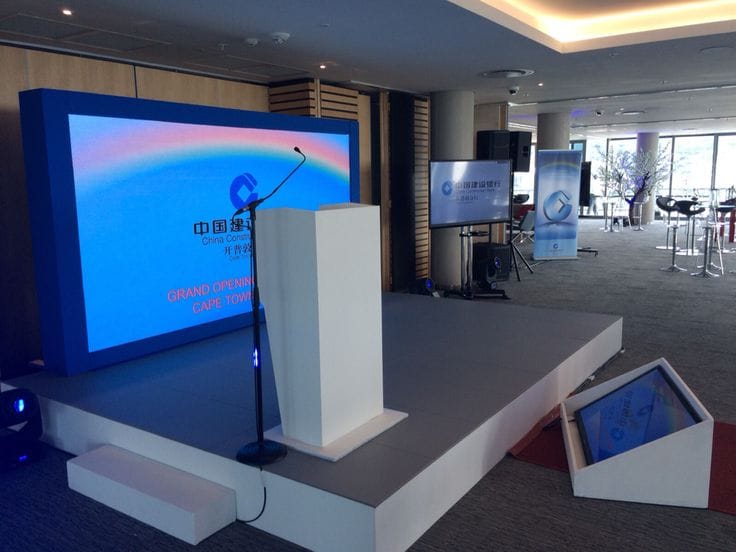
The Future of Personalized Events
---------------------------------
As artificial intelligence and machine learning technologies advance, event personalization will become even more sophisticated. We're moving toward events that adapt in real-time to attendee behavior, predict networking opportunities before they're obvious, and create seamless experiences across physical and digital touchpoints.
The integration of IoT sensors, advanced analytics, and predictive modeling will enable events that not only respond to attendee preferences but anticipate their needs. Imagine events that automatically adjust lighting and temperature in session rooms based on attendee comfort preferences, or that suggest lunch partners based on conversation topics from morning sessions.
Conclusion
----------
[Event personalization](https://venzi.ai/blog/event-gamification-boost-attendance-engagement/) represents a fundamental shift from broadcasting to narrowcasting – from creating one experience for everyone to crafting unique experiences for each individual. The data and technology exist today to make this vision a reality, but success requires thoughtful implementation, clear objectives, and a commitment to continuous improvement.
Organizations that embrace data-driven personalization will create events that attendees not only enjoy but actively seek out. These events become competitive advantages, driving higher satisfaction, stronger relationships, and measurable business outcomes.
The future of events is personal, and that future is available today for organizations ready to leverage their data for truly tailored experiences.
---
This blog is powered by Superblog. Visit https://superblog.ai to know more.
---
## Engaging Attendees: The Role of Gamification in Events
Author: Unknown
Published: 2025-05-23
Category: Event Technology
Meta Title: Event Gamification: Boost Attendance & Engagement by 40%
Meta Description: Transform your events with gamification strategies. Increase attendee participation, networking, and satisfaction through interactive games and rewards.
Tags: event engagement, gamification
URL: https://venzi.ai/blog/event-gamification-boost-attendance-engagement
_Discover how gamification can increase participation and enjoyment. Tap into fun, interactive experiences for better results._
In today's competitive event landscape, capturing and maintaining attendee attention has become increasingly challenging. With shorter attention spans and higher expectations for interactive experiences, event organizers are turning to a powerful strategy that transforms passive participation into active engagement: gamification.
Gamification isn't just about adding games to your event—it's about strategically incorporating game mechanics to drive meaningful participation, enhance learning outcomes, and create memorable experiences that attendees will talk about long after your event ends.
Understanding Gamification in the Event Context
-----------------------------------------------
Gamification applies game design elements and principles in non-game environments to motivate and increase user activity. In events, this translates to using points, badges, leaderboards, challenges, and rewards to encourage specific behaviors like networking, session attendance, social media sharing, and active participation.
The psychology behind gamification taps into fundamental human motivations: the desire for achievement, recognition, competition, and social connection. When implemented thoughtfully, these elements can transform routine event activities into engaging experiences that attendees actively seek out.
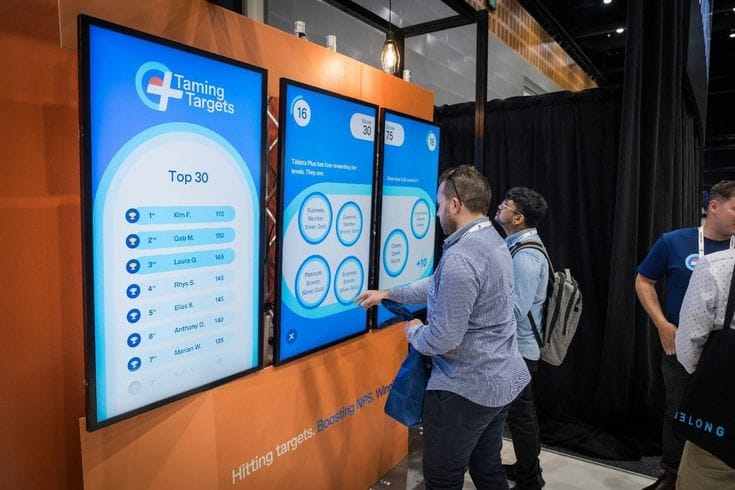
The Compelling Case for Event Gamification
------------------------------------------
### Measurable Engagement Boost
Events that incorporate gamification typically see significant improvements in key metrics. Attendees spend more time at the event, visit more exhibitor booths, attend additional sessions, and participate more actively in networking opportunities. This increased engagement directly translates to higher ROI for both organizers and sponsors.
### Enhanced Learning and Retention
Gamified elements make information more memorable through active participation rather than passive consumption. When attendees compete in knowledge-based challenges or earn points for attending educational sessions, they're more likely to retain and apply what they've learned.
### Valuable Data Collection
Gamification provides natural opportunities to collect attendee data and preferences. Through game mechanics, you can track which sessions generate the most interest, which networking activities are most successful, and what types of content resonate with your audience.
### Improved Networking Outcomes
Many attendees struggle with networking anxiety or don't know how to initiate conversations. Gamified networking activities provide structured ways to connect, making it easier for introverts to participate and creating natural conversation starters for everyone.
Strategic Implementation: Gamification Elements That Work
---------------------------------------------------------
### Point Systems and Rewards
Create a comprehensive point system that rewards desired behaviors. Attendees might earn points for checking into sessions, visiting sponsor booths, completing profile information, or participating in discussions. The key is making the point values reflect the relative importance of each activity to your event goals.
Consider offering tiered rewards that cater to different motivation levels. Small, immediate rewards for basic participation combined with larger prizes for top performers can maintain engagement across your entire audience.
### Social Challenges and Team Building
Design challenges that require collaboration or friendly competition between attendees. Scavenger hunts that encourage exploration of the venue, team-based trivia competitions, or collaborative problem-solving activities can break down barriers and foster connections.
### Achievement Badges and Status
Create digital badges for various accomplishments—attending your first session, making five new connections, visiting all platinum sponsors, or sharing content on social media. These visible achievements provide social proof and encourage others to participate.
### Real-Time Leaderboards
Display live leaderboards showing top participants in various categories. This creates excitement and encourages ongoing participation throughout the event. Consider multiple leaderboard categories to give different types of attendees opportunities to excel.
### Interactive Content Creation
Encourage attendees to create and share content through photo contests, video challenges, or user-generated social media campaigns. This not only increases engagement but also provides valuable marketing content for future events.
Technology Platforms That Enable Success
----------------------------------------
### Mobile Event Apps
Modern event apps serve as the perfect platform for gamification features. They can track attendance, award points, display leaderboards, and facilitate social interactions all in one place. Look for platforms that offer customizable gamification modules.
### QR Code Integration
QR codes provide seamless ways to track participation and award points. Attendees can quickly scan codes at sessions, sponsor booths, or networking areas to earn rewards without complex check-in processes.
### Social Media Integration
Connect your gamification system with social media platforms to encourage sharing and expand your event's reach. Automated posting when attendees achieve milestones can amplify your event's visibility.
### RFID and Beacon Technology
For more sophisticated tracking, RFID badges or beacon technology can automatically detect when attendees visit specific areas or interact with exhibitors, making participation tracking effortless.
Real-World Success Stories
--------------------------
### Conference Networking Revolution
A major technology conference implemented a networking game where attendees earned points for making connections with people from different industries, companies, or geographic regions. The result was a 40% increase in meaningful networking conversations and significantly higher attendee satisfaction scores.
### Trade Show Engagement Transformation
An industry trade show created a digital passport system where attendees collected stamps by visiting exhibitor booths and attending sessions. Completed passports entered attendees into prize drawings, resulting in 60% more booth visits and extended time spent at the event.
### Educational Event Enhancement
A professional development conference used gamified learning paths where attendees could choose different tracks and earn specialized badges for completion. This approach increased session attendance by 35% and improved knowledge retention scores.
Measuring Gamification Success
------------------------------
### Participation Metrics
Track increases in session attendance, booth visits, app engagement, and social media activity. Compare these metrics to previous events to quantify the impact of your gamification efforts.
### Attendee Satisfaction
Survey attendees about their experience with gamified elements. Ask specific questions about whether these features enhanced their enjoyment and participation in the event.
### Behavioral Analytics
Analyze which gamification elements drove the most engagement and which had limited appeal. This data helps refine your approach for future events.
### Long-Term Engagement
Monitor post-event engagement through continued app usage, social media interaction, and early registration for future events. Successful gamification often extends engagement beyond the event itself.
Best Practices for Implementation
---------------------------------
### Start Simple
Don't overwhelm attendees with complex game mechanics. Begin with basic point systems and gradually add more sophisticated elements as your audience becomes comfortable with the concept.
### Align with Event Goals
Every gamification element should support your broader event objectives. If networking is a priority, focus on games that facilitate connections. If education is key, emphasize learning-based challenges.
### Ensure Inclusivity
Design games that appeal to different personality types and comfort levels. Provide both competitive and collaborative options, and ensure that introverted attendees have opportunities to participate meaningfully.
### Provide Clear Instructions
Make game rules and objectives crystal clear from the beginning. Confusion about how to participate can quickly kill enthusiasm for gamified activities.
### Offer Meaningful Rewards
Prizes don't have to be expensive, but they should be relevant and valuable to your audience. Consider offering networking opportunities, exclusive content, or recognition rather than just physical prizes.
Overcoming Common Challenges
----------------------------
### Technology Barriers
Some attendees may struggle with technology-based gamification. Provide adequate support and alternative participation methods for those who need them.
### Balancing Competition and Collaboration
Strike the right balance between competitive elements that drive engagement and collaborative activities that build community. Not everyone responds positively to competition.
### Avoiding Gamification Fatigue
Don't gamify every aspect of your event. Strategic application is more effective than overwhelming attendees with constant game mechanics.
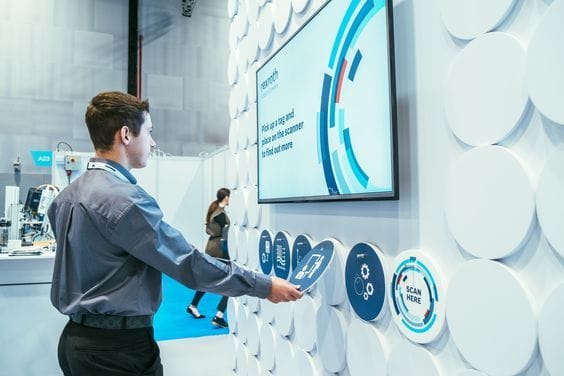
The Future of [Event Gamification](https://venzi.ai/blog/art-of-networking-event-connections/)
-----------------------------------------------------------------------------------------------
As technology continues to evolve, we can expect to see more sophisticated gamification options including augmented reality experiences, AI-powered personalized challenges, and integration with virtual and hybrid event platforms. The key is staying focused on creating genuine value for attendees rather than just implementing the latest technology trends.
Successful event gamification creates a virtuous cycle: engaged attendees have better experiences, leading to positive word-of-mouth marketing, increased return attendance, and stronger sponsor relationships. By thoughtfully implementing game mechanics that align with your event goals and audience preferences, you can transform routine event activities into memorable, engaging experiences that deliver measurable results.
The question isn't whether to implement gamification in your events—it's how to do it strategically to maximize attendee engagement and achieve your organizational objectives. Start planning your gamification strategy today, and watch as your events become more interactive, memorable, and successful than ever before.
* * *
_Ready to gamify your next event? Venzi.ai provides the tools and expertise to help you create engaging, interactive experiences that drive real results. From simple point systems to complex multi-layered games, we'll help you design the perfect gamification strategy for your audience and objectives._
---
This blog is powered by Superblog. Visit https://superblog.ai to know more.
---
## The Art of Networking: How to Facilitate Powerful Event Connections
Author: Unknown
Published: 2025-05-21
Category: Event Strategy
Meta Title: The Art of Networking: Boost Event Connections Smartly
Meta Description: Discover powerful networking strategies to enhance ROI. Boost event connections before, during & after with smart, human-centered tech.
Tags: event ROI, Event Networking, Event Strategy
URL: https://venzi.ai/blog/art-of-networking-event-connections
In today’s digitally driven event landscape, one timeless element holds steady: the human connection. Whether you're organizing a global business summit, a high-tech product launch, or a hybrid trade show, the real value often lies in the relationships your attendees build—not just the content they consume.
For event organizers, facilitating meaningful networking is no longer optional—it’s a critical driver of return on investment (ROI) and attendee satisfaction. At Venzi.ai, we understand that modern networking requires more than cocktail hours and business cards. It demands intentional design, intelligent technology, and ongoing engagement.
Here’s how to optimize networking before, during, and after your event to create lasting connections that fuel business outcomes.
Before the Event: Set the Stage for Connection
----------------------------------------------
The networking journey doesn’t begin when attendees arrive—it begins weeks before the first session goes live.
### 1\. Smart Matchmaking Tools
Generic event platforms often leave networking up to chance. But with AI-powered tools like Venzi.ai’s intelligent matchmaking, you can align attendees with the most relevant contacts based on shared interests, goals, and industry roles. This leads to higher-quality meetings and stronger outcomes.
Imagine an attendee logging in pre-event and seeing curated connection suggestions—executives in similar industries, potential partners, or even future clients. These tailored recommendations spark curiosity and drive proactive networking.
### 2\. Pre-Event Icebreakers and Introductions
Break the ice before the event starts. Encourage attendees to participate in themed chat rooms, interest-based forums, or virtual lounges. Introduce features like:
* “Coffee Chat Roulette” to randomly pair people before the event.
* Daily polls or fun prompts (e.g., “What’s your dream collaboration?”).
* Intro video submissions on the platform.
These interactions build early momentum, reduce awkwardness, and increase engagement right from day one.
### 3\. Customized Agendas With Networking Triggers
Let attendees create personalized event itineraries. Venzi.ai can go a step further—flagging sessions that potential connections are attending, suggesting breaks to network, or recommending workshops with mutual interests. This blends content consumption with connection opportunities.
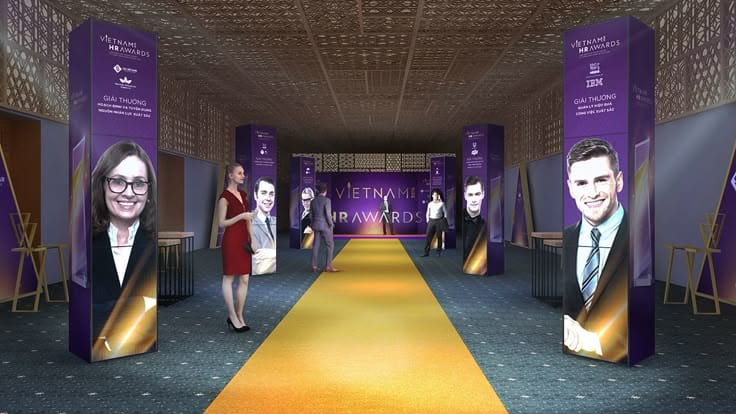
During the Event: Structure + Serendipity
-----------------------------------------
Once the event kicks off, it’s all about creating an environment that encourages both planned and spontaneous connections.
### 1\. Structured Networking Sessions
Attendees crave valuable conversations but often lack a format to initiate them. Offer speed networking sessions, topic-specific roundtables, or “Ask Me Anything” (AMA) booths to provide structured time for relationship building.
Pro tip: Let your sponsors host a networking break around a theme relevant to their brand. It boosts sponsor value while delivering targeted engagement.
### 2\. Real-Time Smart Suggestions
With live event activity in full swing, Venzi.ai can dynamically suggest new contacts based on behavior, participation, and session engagement. If someone is attending a session on AI in marketing, they might be prompted to connect with a speaker or peer who’s exploring similar tech applications.
This type of intelligent nudge takes networking from passive to proactive, all within a few taps.
### 3\. Gamify Networking
Gamification is more than just fun—it’s functional. Create leaderboards or incentives for completing networking goals:
* Meet five new people.
* Schedule two 1:1 video calls.
* Visit three sponsor booths.
Attendees love the sense of achievement, and your event metrics get a major boost in engagement.
**After the Event: Keep the Momentum Alive**
Events don’t end when the lights go off. Networking should extend well beyond the venue.
### 1\. Encourage Follow-Ups with Tools & Templates
Make post-event communication easy. Enable follow-up templates within the platform or allow attendees to add notes to contact cards during conversations.
Venzi.ai can even prompt attendees to reconnect 24–48 hours after their meeting, ensuring the conversation doesn’t fade.
### 2\. Share a Networking Summary
Give attendees a recap of who they met, where they connected, and what sessions they both attended. This snapshot strengthens memory and adds context to every new relationship. Bonus points if it includes an option to schedule a follow-up call or LinkedIn request directly from the dashboard.
### 3\. Build a Long-Term Community
Your event can be the start of a community, not just a standalone experience. Use Venzi.ai’s ecosystem to:
* Host quarterly networking updates.
* Run member-exclusive webinars.
* Offer continued learning and collaboration spaces.
Turn attendees into advocates and repeat registrants by continuing the conversation year-round.
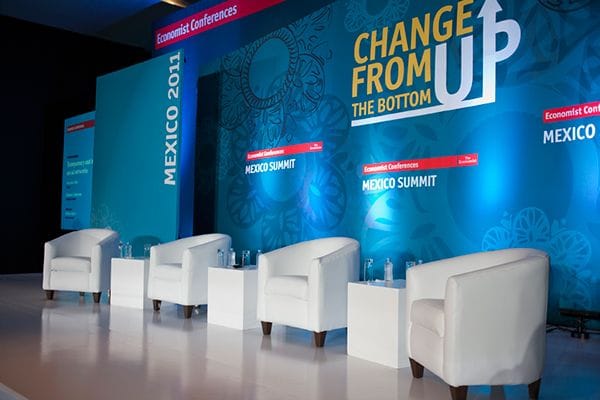
Why Networking = ROI
--------------------
When you ask event attendees what they value most, “networking” is always near the top. But more than that, it’s a key ROI driver for organizers and sponsors alike:
* Attendees leave feeling enriched and connected.
* Sponsors enjoy higher engagement with targeted leads.
* Speakers gain new followers and connections.
* Organizers benefit from stronger retention and word-of-mouth buzz.
With Venzi.ai, you unlock the tools to make networking intentional, intuitive, and measurable—helping you maximize every interaction for business impact.
Final Thoughts: Human-Centered Networking is the Future
-------------------------------------------------------
Great events create more than just good memories—they create opportunities. In a noisy digital world, the events that succeed are those that understand the power of relationships.
At [Venzi.ai](https://venzi.ai/blog/creating-inclusive-events-a-comprehensive-guide-to-welcoming-all-attendees-cmauv3m7700cpkwl44hzhxkxr/), we don’t just facilitate connections—we enhance them. Our platform is built to help you create human-centered networking experiences that feel natural, smart, and impactful—before, during, and after the event.
Let’s move beyond badge scans and business cards. Let’s create meaningful connections that drive real growth.
---
This blog is powered by Superblog. Visit https://superblog.ai to know more.
---
## Creating Inclusive Events: A Comprehensive Guide to Welcoming All Attendees
Author: Unknown
Published: 2025-05-19
Category: Event Planning
Meta Title: Creating Inclusive Events: Guide to Welcoming Diverse Attendees
Meta Description: Design events that embrace diversity through accessible spaces, inclusive language, cultural sensitivity & equitable practices. Learn practical steps for creating welcoming experiences for all.
Tags: Inclusive Events, Equity in Events, Cultural Sensitivity, AI event management
URL: https://venzi.ai/blog/creating-inclusive-events-a-comprehensive-guide-to-welcoming-all-attendees-cmauv3m7700cpkwl44hzhxkxr
In today's interconnected world, event planning has evolved far beyond logistics and aesthetics. The most successful events now prioritize inclusivity, accessibility, and creating environments where all attendees feel genuinely welcomed and valued. At Venzi, we believe that inclusive event design isn't just a nice-to-have—it's essential for meaningful engagement and memorable experiences.
Why Inclusivity Matters in Event Planning
-----------------------------------------
Inclusive events don't just benefit those with specific accessibility needs—they create better experiences for everyone. When events are designed with diversity in mind:
* **Broader participation** occurs naturally, bringing richer perspectives and interactions.
* **Attendee satisfaction increases** as people feel seen, heard, and accommodated.
* **Innovation flourishes** through diverse viewpoints and experiences.
* **Brand reputation strengthens** as your organization demonstrates genuine commitment to equity.
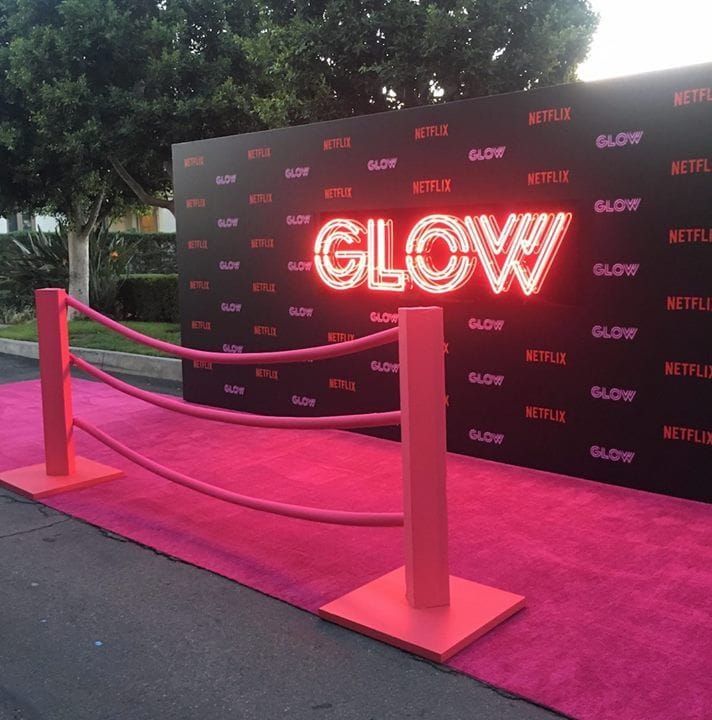
Key Dimensions of Event Inclusivity
-----------------------------------
### Physical Accessibility
Physical accessibility forms the foundation of inclusive events, yet it's often overlooked until it becomes a problem:
* Select venues with wheelchair access, accessible restrooms, and navigation accommodations.
* Consider proximity to public transportation and accessible parking options.
* Provide clear signage with universal design principles.
* Create quiet spaces for those who may need sensory breaks.
* Ensure stages and presentation areas have ramp access for speakers with mobility needs.
### Financial Accessibility
Events that cater only to those with significant financial resources exclude valuable participants:
* Consider tiered pricing structures or scholarships for those with financial constraints
* Offer virtual attendance options at reduced rates
* Provide essential event information without requiring premium registration
* Be mindful of hidden costs like transportation, accommodation, and meals
### Language and Communication
Effective communication ensures everyone can fully participate in your event:
* Provide sign language interpretation for deaf and hard-of-hearing attendees
* Consider offering real-time captioning for presentations
* Make materials available in multiple languages relevant to your audience
* Use plain, accessible language in communications and presentations
* Provide materials in accessible digital formats compatible with screen readers
### Cultural Sensitivity
Cultural inclusivity demonstrates respect for all attendees:
* Consider diverse dietary requirements (religious, cultural, and medical)
* Schedule around major religious holidays and prayer times
* Diversify speakers, perspectives, and content
* Create programming that represents various cultural viewpoints
* Train staff on cultural sensitivity and avoiding stereotypes
### Gender Inclusivity
Creating gender-inclusive spaces makes everyone feel respected:
* Use gender-neutral language in event materials and communications
* Provide gender-neutral restrooms when possible
* Include pronoun options on name badges (but make this optional)
* Ensure speaker lineups and panels include gender diversity
* Train staff on respectful interaction with attendees of all gender identities
Practical Steps to Plan More Inclusive Events
---------------------------------------------
### 1\. Start with inclusive design principles
Rather than retrofitting accommodations, begin with inclusive design as a foundational principle. This approach considers the full range of human diversity from the planning stages.
### 2\. Gather diverse input early
Form an advisory committee representing different perspectives and lived experiences. Their insights will help identify potential barriers you might not otherwise consider.
### 3\. Create comprehensive accessibility information
Develop an accessibility guide for your event that clearly communicates what accommodations are available and how to request additional support. Make this information prominent, not hidden in fine print.
### 4\. Train your team
Ensure all staff and volunteers receive training on inclusivity practices, from using appropriate language to understanding how to assist attendees with various needs respectfully.
### 5\. Collect meaningful feedback
Design post-event surveys that specifically ask about inclusivity and accessibility. Create safe channels for feedback so attendees can share their experiences honestly.
### 6\. Continuously improve
Use the feedback to enhance future events, acknowledging that creating truly inclusive environments is an ongoing journey of learning and adaptation.
Measuring Success Beyond Attendance Numbers
-------------------------------------------
Traditional metrics like ticket sales and attendance don't tell the full story of an event's success. Consider tracking:
* Demographic diversity of attendees and speakers
* Number and types of accommodation requests fulfilled
* Qualitative feedback on inclusivity measures
* Return attendance rates among diverse groups
* Word-of-mouth recommendations and community building.
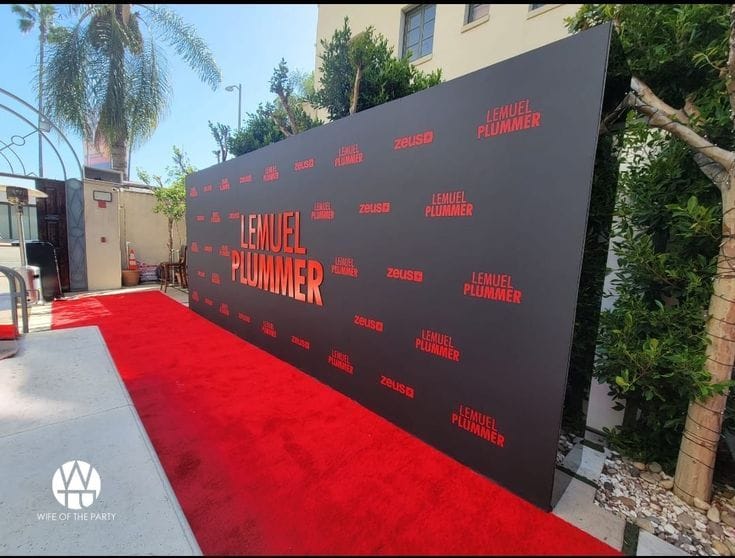
Common Challenges and Solutions
-------------------------------
### Budget Constraints
**Challenge:** Limited resources for accessibility features.
**Solution:** Start with low-cost, high-impact changes like clear communication and staff training. Prioritize accommodations based on registered attendee needs, and consider partnerships with accessibility organizations for resources.
### Venue Limitations
**Challenge:** Working with venues that weren't designed with accessibility in mind.
**Solution:** Conduct thorough site visits with an accessibility checklist. Create temporary solutions where possible (portable ramps, designated quiet spaces) and communicate limitations transparently to attendees.
### Knowledge Gaps
**Challenge:** Event planners may not have expertise in all aspects of inclusive design.
**Solution:** Invest in training, consult with inclusion specialists, and most importantly—listen to feedback from attendees with diverse needs and experiences.
Conclusion: The Future of Events is Inclusive
---------------------------------------------
As our understanding of diversity, equity, and inclusion continues to evolve, so too will our approach to event planning. Forward-thinking organizations recognize that inclusive events aren't just about compliance or checking boxes—they're about creating spaces where genuine connection and engagement can flourish across differences.
At [Venzi](https://venzi.ai/blog/virtual-reality-transforming-event-experiences/), we're committed to advancing inclusive event practices and supporting organizations on their journey toward more equitable experiences. By embracing principles of inclusive design and continuously learning from diverse perspectives, we can create events that truly welcome everyone—not just in theory, but in practice.
When we design events with everyone in mind, we don't just meet expectations—we exceed them, creating memorable experiences that resonate with all attendees and reflect the full diversity of our communities.
---
This blog is powered by Superblog. Visit https://superblog.ai to know more.
---
## Virtual Reality in Events: Creating Immersive Experiences By Venzi
Author: Unknown
Published: 2025-05-17
Category: Event Technology
Meta Title: Virtual Reality: Transforming Event Experiences Beyond Boundaries
Meta Description:
Explore how VR creates immersive event experiences with virtual venues and interactive elements that revolutionize attendee engagement.
Tags: Virtual Reality, Event Innovation, Immersive Experiences, Event Technology
URL: https://venzi.ai/blog/virtual-reality-transforming-event-experiences
Virtual Reality in Events: Creating Immersive Experiences
---------------------------------------------------------
In the rapidly evolving landscape of event technology, virtual reality (VR) stands at the forefront of innovation, fundamentally transforming how attendees engage with events. At Venzi, we're witnessing firsthand how VR is revolutionizing the event industry, creating unprecedented opportunities for immersive experiences that transcend traditional boundaries.
### The Evolution of Event Experiences
Gone are the days when event success was measured solely by attendance numbers and speaker lineups. Today's attendees crave memorable, interactive experiences that engage multiple senses and create lasting impressions. Virtual reality has emerged as the perfect solution to meet these evolving expectations, offering a blend of technology and creativity that opens new dimensions for event organizers.
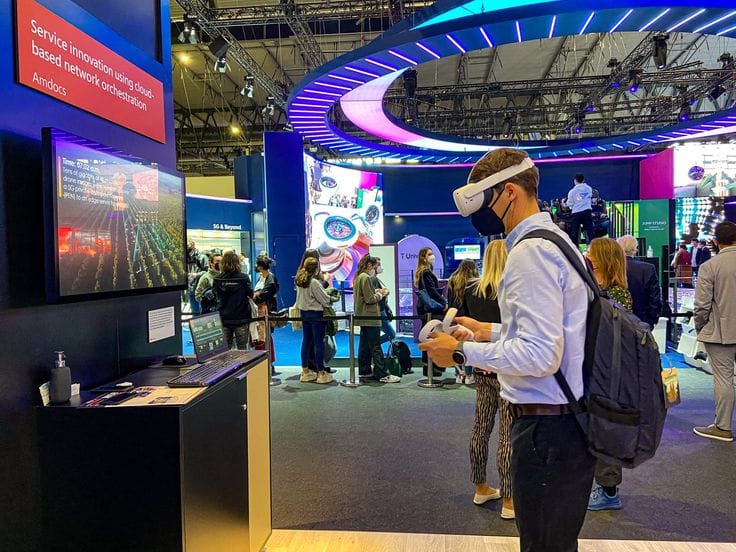
How VR is Transforming Events
-----------------------------
#### 1\. Beyond Physical Limitations
Virtual reality eliminates geographical constraints, allowing attendees from anywhere in the world to participate in events without travel. This technology creates shared virtual spaces where participants can interact with content, exhibitors, and each other in ways that feel remarkably close to in-person experiences.
#### 2\. Enhanced Engagement Through Immersion
VR creates environments where attendees aren't just passive observers but active participants. Whether it's walking through a virtual product showcase, experiencing a brand's story from within, or participating in interactive workshops, VR drives deeper engagement by making attendees part of the narrative.
#### 3\. Data-Driven Insights
One of VR's hidden strengths is its ability to generate valuable behavioral data. Event organizers can track where attendees look, what captures their attention, how they interact with virtual elements, and which experiences resonate most—providing unprecedented insights for future event design and content strategy.
### Innovative Applications in Today's Events
#### Virtual Venues and Digital Twins
Leading platforms are now creating detailed digital twins of physical venues, allowing for hybrid events where in-person and virtual attendees share experiences. These virtual venues can be customized with branded elements, interactive features, and networking spaces that mirror—and sometimes enhance—their physical counterparts.
#### Immersive Product Demonstrations
For product launches and trade shows, VR enables attendees to experience products in context rather than simply viewing them. Automotive companies let users sit in and "drive" new vehicles, architectural firms walk clients through unbuilt structures, and medical technology companies demonstrate complex procedures—all within safe, controlled virtual environments.
#### Interactive Learning Experiences
Educational sessions are being transformed through VR, with presenters guiding attendees through three-dimensional visualizations of complex concepts. Learning retention increases dramatically when participants can interact with information rather than simply hearing about it.
### Real-World Success Stories
#### Conference Reimagined: SpotMe's Approach
SpotMe has pioneered multi-user VR conference experiences where attendees create customizable avatars that can move through exhibition halls, join breakout rooms, and network with other participants. Their platform's success lies in balancing technological innovation with intuitive user experience, making VR accessible even to technologically cautious attendees.
#### Brand Activation Excellence: Eventify
Eventify has made waves with brand activations that blur the line between reality and virtual experiences. In a recent campaign for a sustainable fashion brand, attendees experienced the entire supply chain journey of a garment—from cotton field to retail store—creating emotional connections to the brand's ethical practices that traditional presentations simply couldn't achieve.
#### Global Teambuilding: Implecho's Solution
Implecho has focused on using VR for corporate team-building events, creating shared challenges that remote teams solve together in virtual spaces. Their data shows significant improvements in team cohesion and communication after these shared VR experiences, demonstrating the technology's value beyond consumer-facing events.
### Overcoming Implementation Challenges
Despite its potential, VR implementation comes with challenges. Hardware costs and distribution can be prohibitive for large-scale events, while ensuring user comfort and accessibility requires careful planning. Successful event organizers are addressing these challenges through:
### The Future of VR in Events
As technology advances, we anticipate several developments that will further enhance VR's role in events:
#### Haptic Feedback and Sensory Expansion
The next generation of VR will incorporate more sophisticated haptic feedback, allowing attendees to "feel" virtual objects and environments. Some pioneers are even experimenting with scent integration, creating truly multi-sensory experiences.
#### AI-Driven Personalization
Artificial intelligence will increasingly customize VR event experiences in real-time based on attendee preferences and behavior, creating uniquely relevant journeys for each participant.
#### Seamless Integration with Physical Events
The distinction between virtual and physical will continue to blur, with AR (augmented reality) creating bridging experiences that enhance physical events with digital elements that only certain attendees can see and interact with.
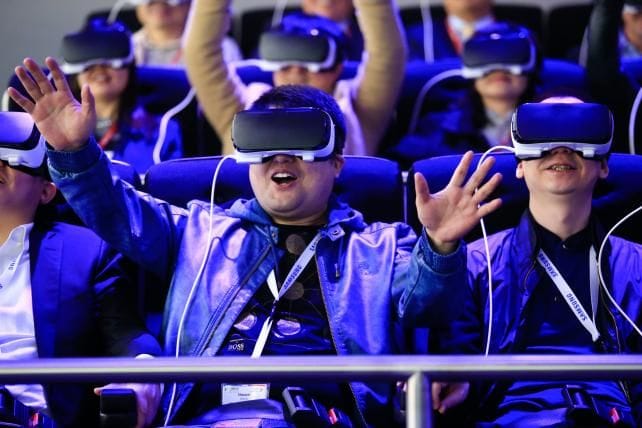
### Conclusion: Embracing the VR Revolution
Virtual reality isn't just adding a technological element to events—it's fundamentally changing what events can achieve. At Venzi, we believe that the organizations that embrace these technologies thoughtfully will create more engaging, accessible, and measurable event experiences.
As VR technology becomes more sophisticated and widely available, the question for event organizers is no longer whether to incorporate virtual elements, but how to leverage them most effectively to achieve their specific goals. By focusing on meaningful applications that enhance the attendee experience rather than technology for its own sake, organizations can ensure their VR investments deliver genuine value.
Are you ready to explore how virtual reality can transform your next event? Connect with our team at [Venzi](https://venzi.ai/blog/post-event-engagement-strategies-maintaining-momentum/) to discover the possibilities of immersive event experiences.
---
This blog is powered by Superblog. Visit https://superblog.ai to know more.
---
## Post-Event Strategies By Venzi: Keeping the Momentum Going
Author: Unknown
Published: 2025-05-15
Category: Smart Event Management
Meta Title: Post-Event Strategies: Keeping the Momentum Going | Venzi.ai
Meta Description: Learn 9 proven tactics to maintain engagement after events, build lasting communities, and maximize ROI. Turn one-time attendees into loyal advocates with Venzi.ai's expert approach.
Tags: post-event engagement, community building, Event Marketing
URL: https://venzi.ai/blog/post-event-engagement-strategies-maintaining-momentum
Events are powerful catalysts for community building, brand awareness, and business growth. Whether you've hosted a virtual conference, an in-person workshop, or a hybrid networking session, the true value of your event extends far beyond its conclusion. At Venzi.ai, we've discovered that strategically leveraging post-event momentum can transform one-time attendees into loyal community members and drive sustained engagement.
Why Post-Event Engagement Matters
---------------------------------
Many event organizers make the critical mistake of considering their job complete once the event ends. However, the post-event period offers a golden opportunity to:
* Solidify relationships formed during the event
* Convert interest into action while enthusiasm is high
* Gather valuable insights that can improve future events
* Extend the lifespan of your event content and investments
* Build a sustainable community that thrives between events
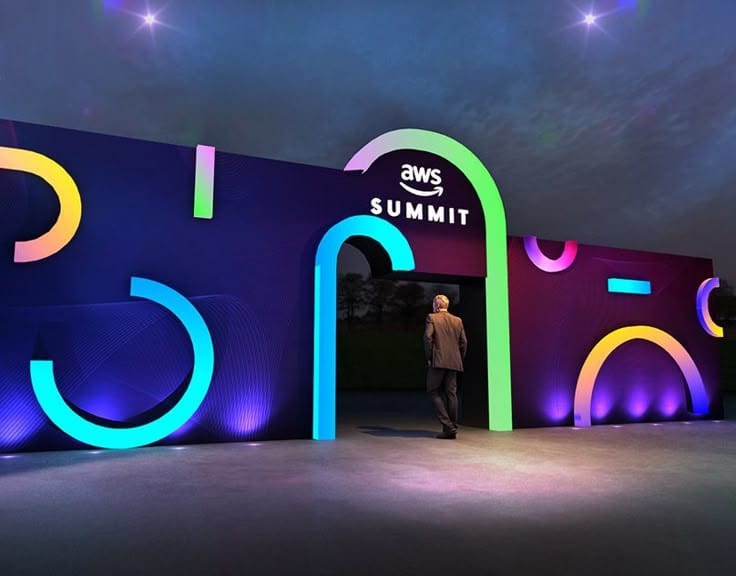
Effective Post-Event Strategies for Sustained Engagement
--------------------------------------------------------
### 1\. Prompt Content Distribution
What to do: Package and share event highlights within 24-48 hours.
The immediate post-event period is when attendee excitement peaks. Capitalize on this by quickly distributing:
* Highlight reels and key moments
* Session recordings and presentation slides
* Key takeaways and insights infographics
* Speaker interviews and behind-the-scenes content
At Venzi.ai, we've found that creating a dedicated post-event content hub helps centralize these resources while driving traffic back to our platform.
### 2\. Personalized Follow-Up Communications
What to do: Segment your audience and tailor your follow-up.
Generic "thank you for attending" emails rarely drive meaningful engagement. Instead:
* Segment attendees based on sessions attended and engagement levels
* Reference specific sessions or interactions in your communications
* Include personalized next steps and resources based on demonstrated interests
* Invite feedback through targeted surveys with minimal friction
Our data shows that personalized follow-ups generate 3x higher response rates than generic communications.
### 3\. Create Exclusive Community Spaces
What to do: Establish dedicated spaces for continued conversation.
The relationships formed during your event need nurturing. Consider:
* Creating private LinkedIn or Slack groups for attendees
* Hosting a dedicated forum on your platform
* Developing a mobile app for your community
* Offering exclusive access to additional resources
At Venzi.ai, our post-event communities have become vibrant ecosystems where participants continue discussions, share insights, and form valuable connections.
### 4\. Implement a Content Drip Campaign
What to do: Plan a strategic content release schedule.
Rather than overwhelming attendees with all post-event content at once:
* Map out a 4-6 week content release calendar
* Alternate between different content formats (videos, blogs, infographics)
* Gradually introduce deeper dives into topics covered at the event
* Include exclusive content not available during the live event
* Integrate calls-to-action relevant to each content piece
This approach maintains engagement while preventing information overload.
### 5\. Host Follow-Up Micro-Events
What to do: Schedule smaller touchpoints to maintain momentum.
Bridge the gap between major events with:
* Q&A sessions with popular speakers
* Deep-dive workshops on specific topics
* Community meetups (virtual or in-person)
* Challenges or competitions related to event themes
* "Office hours" with industry experts
These micro-events require fewer resources while keeping your community active and engaged.
### 6\. Leverage User-Generated Content
What to do: Encourage and amplify attendee perspectives.
Some of your most valuable post-event content will come from participants:
* Create hashtags for social sharing
* Feature attendee testimonials and insights
* Invite guest blog posts about event experiences
* Create compilation videos of attendee feedback
* Host a "showcase" of projects inspired by your event
This approach not only provides fresh content but also strengthens community bonds by highlighting member contributions.
### 7\. Develop Action-Oriented Resources
What to do: Help attendees implement what they've learned.
Bridge the gap between knowledge and action with:
* Implementation guides and workbooks
* Templates and frameworks
* Checklists and roadmaps
* Accountability programs
* Expert office hours for troubleshooting
Our most successful Venzi.ai events include comprehensive implementation toolkits that drive measurable results for participants.
### 8\. Gather and Act on Feedback
What to do: Collect, analyze, and visibly implement feedback.
Show attendees their input matters by:
* Sending targeted surveys with specific questions
* Conducting one-on-one interviews with select participants
* Hosting feedback roundtables
* Publicly sharing insights gained from feedback
* Demonstrating how feedback shapes future events
When attendees see their suggestions implemented, they develop a deeper investment in your community.
### 9\. Create Anticipation for Future Events
What to do: Begin building excitement for what's next.
Use the post-event period to plant seeds for future engagement:
* Share early announcements about upcoming events
* Offer exclusive early access or discounts to past attendees
* Involve community members in planning future events
* Create "save the date" campaigns with teasers
* Establish annual traditions or special features attendees can look forward to
The goal is to create a continuous engagement cycle rather than isolated event experiences.
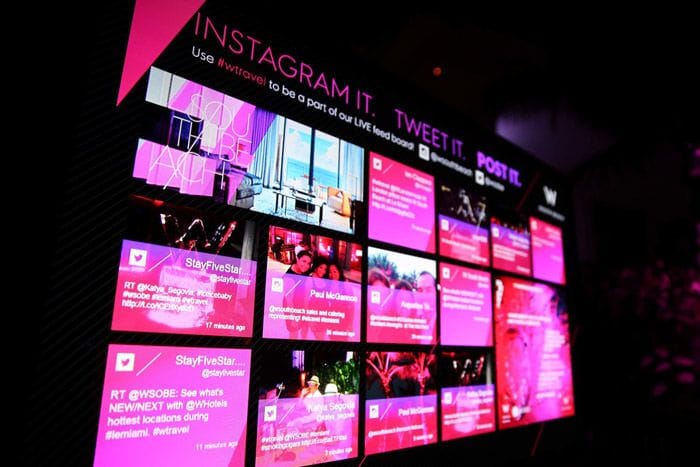
Case Study: [Venzi.ai](https://venzi.ai/blog/event-content-repurposing-strategy-guide/)Community Summit
-------------------------------------------------------------------------------------------------------
At our most recent Venzi.ai Community Summit, we implemented a comprehensive post-event strategy that resulted in:
* 78% of attendees engaging with post-event content
* 42% participation in follow-up micro-events
* 65% retention rate for our next major event
* 3x increase in community platform activity
* 25% conversion rate on post-event offers
The key was integrating multiple touchpoints and creating clear pathways for continued engagement that aligned with attendee interests and needs.
Measuring Post-Event Success
----------------------------
To determine the effectiveness of your post-event strategy, track metrics such as:
* Content engagement rates
* Community participation levels
* Feedback response rates
* Implementation of learnings
* Conversion rates for relevant offers
* Return attendance at future events
* Net Promoter Score trends
These indicators will help you refine your approach and demonstrate ROI.
Final Thoughts: Building a Continuous Engagement Ecosystem
----------------------------------------------------------
The most successful organizations don't view events as standalone experiences but as integral components of a continuous engagement ecosystem. By implementing these post-event strategies, you can transform the temporary excitement of an event into sustained momentum that drives long-term community growth and business success.
At Venzi.ai, we're committed to helping organizations build these sustainable engagement ecosystems through innovative technology solutions and strategic expertise. To learn more about how we can support your post-event strategy, visit [Venzi.ai](https://venzi.ai/) or contact our team directly.
How do you maintain momentum after your events? Share your experiences in the comments below!
---
This blog is powered by Superblog. Visit https://superblog.ai to know more.
---
## From Stage to Screen: 12 Ways to Transform Your Event Content into a Year-Round Marketing Powerhouse
Author: Unknown
Published: 2025-05-12
Category: Content Marketing
Meta Title: From Stage to Screen: 12 Ways to Transform Your Event Content into a Year-Round Marketing Powerhouse
Meta Description: Learn strategic approaches to transform event materials into multi-platform content that engages audiences long after your event ends, extending your marketing impact while saving time and resources.
Tags: Content Repurposing, Digital Strategy, Audience Engagement, Marketing ROI, Event Marketing
URL: https://venzi.ai/blog/event-content-repurposing-strategy-guide
Introduction: The Hidden Content Goldmine in Your Events
--------------------------------------------------------
Events represent some of the most resource-intensive initiatives in a company's marketing calendar. From speaker recruitment and venue selection to promotion and technical production, the investment is substantial—both in terms of budget and human resources. Yet, many organizations treat event content as ephemeral, allowing valuable insights, presentations, and interactions to disappear once the closing remarks conclude.
This approach misses a tremendous opportunity. Your event isn't just an isolated moment in time; it's a content creation engine waiting to be leveraged. Every keynote, breakout session, Q&A segment, and even networking conversation contains material that can fuel your content marketing strategy for weeks or months afterward.
In this comprehensive guide, we'll explore twelve strategic approaches to repurpose your event content, helping you extend its lifespan, reach new audiences, and maximize your return on investment.
Why Repurposing Event Content Matters
-------------------------------------
Before diving into specific tactics, let's understand the strategic value of content repurposing:
* **Extended content lifespan:** Transform a one-time event into content that delivers value for months or years.
* **Broader audience reach:** Connect with people who couldn't attend your live event.
* **Multi-channel presence:** Meet your audience where they are with format-optimized content.
* **Enhanced SEO value:** Create multiple indexed assets from a single source.
* **Improved ROI:** Maximize the value extracted from your event investment.
* **Content consistency:** Maintain regular publishing schedules with high-quality material.
12 Strategic Ways to Repurpose Your Event Content
-------------------------------------------------
### 1\. Create Episodic Video Series
Transform lengthy presentations or panel discussions into bite-sized video episodes. Each episode should focus on a specific point or question, ideally 3-5 minutes in length—perfect for modern attention spans.
**Implementation tips:**
* Segment recordings based on natural topic transitions
* Create consistent intro/outro segments for brand recognition
* Add captions for accessibility and silent viewing
* Include clear calls-to-action directing viewers to related content
### 2\. Develop Comprehensive Guides or Whitepapers
Combine multiple presentations on related topics into authoritative, downloadable resources. This approach positions your brand as a thought leader while capturing leads through gated content.
**Implementation tips:**
* Transcribe relevant presentations and organize by theme
* Supplement with additional research and context
* Include visual elements from presentations
* Create executive summaries for busy professionals
### 3\. Extract Quotable Social Media Content
Mine your event recordings for powerful quotes, surprising statistics, or provocative questions. These make excellent social media posts that can drive engagement while promoting your event's full content.
**Implementation tips:**
* Create branded templates for quote graphics
* Pair quotes with speaker headshots when possible
* Schedule posts strategically over time rather than all at once
* Tag speakers to leverage their networks
### 4\. Launch a Topic-Focused Podcast Series
Audio content continues to grow in popularity. Repurpose your event's audio into podcast episodes, potentially including follow-up interviews with speakers to add fresh perspectives.
**Implementation tips:**
* Enhance audio quality through professional editing
* Create segment structures for consistency across episodes
* Develop podcast artwork that aligns with your event branding
* Distribute across major podcast platforms
*
### 5\. Author Guest Articles and Blog Posts
Expand on individual presentations or panels to create in-depth articles. These can be published on your company blog or pitched to industry publications as guest contributions.
**Implementation tips:**
* Focus each article on solving a specific problem
* Include actionable takeaways not fully covered in the original presentation
* Incorporate relevant data points from the event
* Add custom graphics to illustrate key concepts
### 6\. Compile "Best of" Highlight Reels
Create compilation videos showcasing the most impactful moments from your event. These serve as excellent promotional tools for future events while delivering concentrated value.
**Implementation tips:**
* Select moments demonstrating energy and audience engagement
* Keep the pace brisk to maintain viewer interest
* Include brief context captions for each segment
* End with information about accessing full content
### 7\. Create Interactive Training Materials
Transform educational sessions into interactive learning resources. These might include assessments, worksheets, or interactive presentations that help users apply concepts.
**Implementation tips:**
* Break content into clear learning modules
* Add practice exercises and self-assessment tools
* Create implementation checklists
* Offer certification or completion recognition
### 8\. Develop Case Study Collections
If your event featured success stories or implementation examples, repurpose these into formal case studies that showcase results and methodologies.
**Implementation tips:**
* Follow the problem-solution-result format
* Include quantifiable outcomes whenever possible
* Add contextual information not covered in the original presentation
* Create versions optimized for different stages of the buyer journey
### 9\. Launch Email Nurture Campaigns
Segment event content into a series of value-delivering emails. This approach keeps your brand top-of-mind while providing ongoing value to subscribers.
**Implementation tips:**
* Group content by persona interest or topic area
* Include both text summaries and rich media elements
* Space delivery appropriately (not too frequent, not too sparse)
* Incorporate progressive calls-to-action
### 10\. Create Visual Infographics
Translate data-heavy presentations into visually engaging infographics that communicate key points at a glance.
**Implementation tips:**
* Focus on a single coherent story or data narrative
* Maintain brand visual identity while ensuring readability
* Include source attribution to build credibility
* Design for both digital sharing and print distribution
### 11\. Compile an "Event Insights" eBook
Package presentations, attendee feedback, and additional context into a comprehensive eBook that serves as the definitive record of your event.
**Implementation tips:**
* Organize content thematically rather than chronologically
* Include speaker profiles and credentials
* Add executive perspectives not covered in presentations
* Design for both online reading and printing
### 12\. Develop Interactive Social Experiences
Create polls, quizzes, or assessments based on event content that encourages audience participation while subtly promoting the full content library.
**Implementation tips:**
* Design experiences that provide personalized insights
* Make sharing results easy and appealing
* Include links to relevant full-length content
* Gather data to inform future content creation
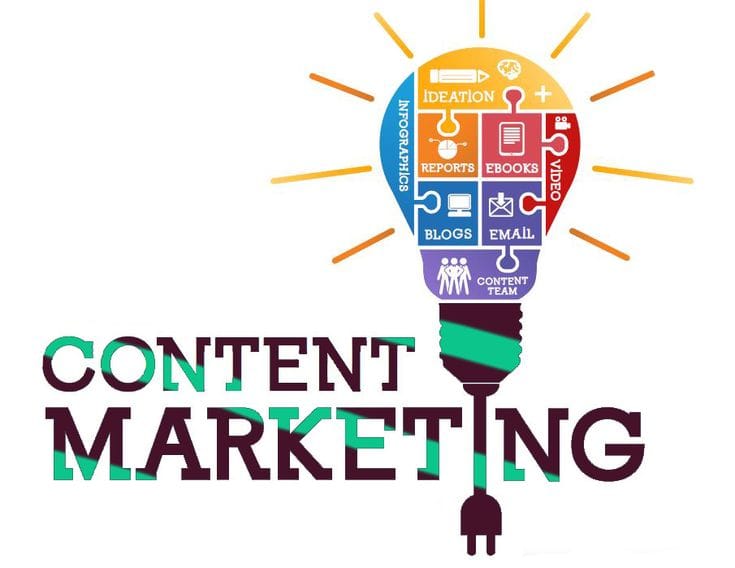
Building Your Event Content Repurposing Strategy
------------------------------------------------
To implement these approaches effectively, follow these five steps:
### Step 1: Plan for Repurposing Before Your Event
The most successful repurposing strategies begin before the event itself. Consider:
* Setting up optimal recording equipment for high-quality capture
* Briefing speakers about your repurposing intentions
* Preparing templates for quick post-event production
* Creating a content calendar for systematic repurposing
### Step 2: Categorize and Prioritize Content
Not all content deserves equal repurposing effort. Evaluate your event content based on:
* Audience response during the live event
* Alignment with current marketing priorities
* Evergreen vs. time-sensitive nature
* Uniqueness compared to existing content
### Step 3: Match Content Types to Audience Segments
Different audience segments prefer different content formats. Map your repurposing strategy to meet these preferences:
* C-suite executives: Executive summaries, short videos, podcasts for commutes
* Technical implementers: Detailed guides, interactive tools, comprehensive recordings
* Researchers/analysts: Data-rich downloadables, methodology explanations
* Prospective customers: Case studies, testimonial compilations, solution overviews
### Step 4: Establish a Production Pipeline
Systematic production ensures consistent output. Create workflows for:
* Content transcription and initial editing
* Review and approval processes
* Format-specific production requirements
* Distribution scheduling
### Step 5: Measure and Optimize Performance
Track how repurposed content performs across channels:
* Engagement metrics by content format and platform
* Conversion rates from repurposed content
* Audience feedback and sharing behavior
* Time-to-production efficiency
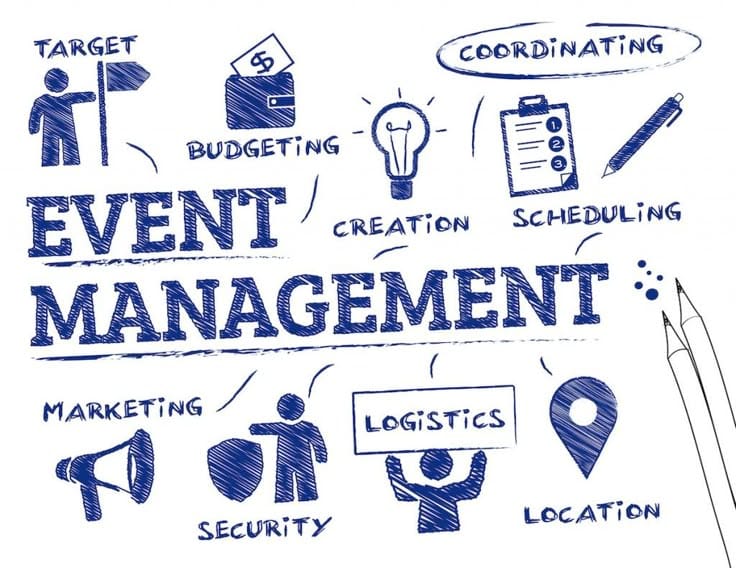
Conclusion: The Compounding Value of Strategic Repurposing
----------------------------------------------------------
When executed thoughtfully, content repurposing creates a virtuous cycle. Each repurposed asset extends the reach of your original event investment, potentially attracting new audiences to your next live event—where the process begins again.
The most sophisticated marketers view their events not as isolated experiences but as content creation opportunities that fuel their broader marketing ecosystem. By implementing the strategies outlined in this guide, you'll transform your events from fleeting moments into enduring assets that drive engagement, establish thought leadership, and deliver measurable business results long after the venue lights dim.
Ready to maximize the impact of your next event? Start by auditing your most recent event content against these repurposing opportunities. Identify the low-hanging fruit—the content most ready for repurposing—and begin building your systematic approach to event content maximization.
* * *
_Looking for a technology partner to help capture and repurpose your event content efficiently? [Venzi.ai](https://venzi.ai/blog/power-of-micro-events/)'s intelligent content management platform streamlines the process from recording to multi-channel distribution. Contact us today to learn how we can help transform your event content strategy._
---
This blog is powered by Superblog. Visit https://superblog.ai to know more.
---
## Crafting Exclusive Experiences: The Power of Micro-Events By Venzi
Author: Unknown
Published: 2025-05-05
Category: Event Marketing
Meta Title: Crafting Exclusive Experiences: The Power of Micro-Events
Meta Description: Discover how intimate, personalized micro-events create deeper connections and memorable experiences. Learn strategies to design impactful small gatherings with higher engagement and ROI.
Tags: Event Planning Tools, micro-events, exclusive experiences, personalized gatherings
URL: https://venzi.ai/blog/power-of-micro-events
In today's experience-driven economy, consumers are increasingly valuing quality over quantity. This shift has given rise to a compelling trend that's reshaping how brands, organizations, and individuals connect with their audiences: micro-events.
What Are Micro-Events?
----------------------
Micro-events are intimate, carefully curated gatherings designed for smaller audiences—typically ranging from 5 to 50 participants. Unlike large-scale conferences or conventions that aim to attract hundreds or thousands, micro-events focus on creating deeper connections and personalized experiences that resonate with specific communities.
Why Micro-Events Are Transforming the Experience Landscape
----------------------------------------------------------
### 1\. **Authentic Connection in a Digital World**
In an era where digital interactions dominate, micro-events offer a refreshing opportunity for genuine human connection. With fewer participants, attendees can engage in meaningful conversations, build relationships, and network with purpose rather than getting lost in the crowd.
_"The smaller the gathering, the bigger the impact of each interaction,"_ notes experience design expert Sarah Chen. _"When you're one of twenty instead of one of two thousand, your voice matters differently."_
### 2\. **Hyper-Personalization at Scale**
Micro-events allow organizers to tailor every aspect of the experience to the specific interests, needs, and preferences of their audience. From the venue selection to the agenda, catering choices, and interactive elements—everything can be customized to create moments that feel designed specifically for each participant.
### 3\. **Higher Engagement and Participation**
Smaller settings naturally encourage higher levels of engagement. Participants at micro-events are more likely to:
* Ask questions during discussions
* Contribute to group activities
* Share personal insights and experience
* Fully immerse themselves in the experience
### 4\. **Lower Barriers to Meaningful Participation**
Large events can be intimidating for many attendees, particularly those who are introverted or new to a community. Micro-events create safer spaces where diverse voices can be heard and valued, leading to richer discussions and more inclusive experiences.
### 5\. **Greater Exclusivity and Perceived Value**
Limited availability naturally increases perceived value. When attendance is capped at a small number, invitations become more coveted, and the experience feels more exclusive. This exclusivity can translate into higher willingness to pay and stronger brand affinity.
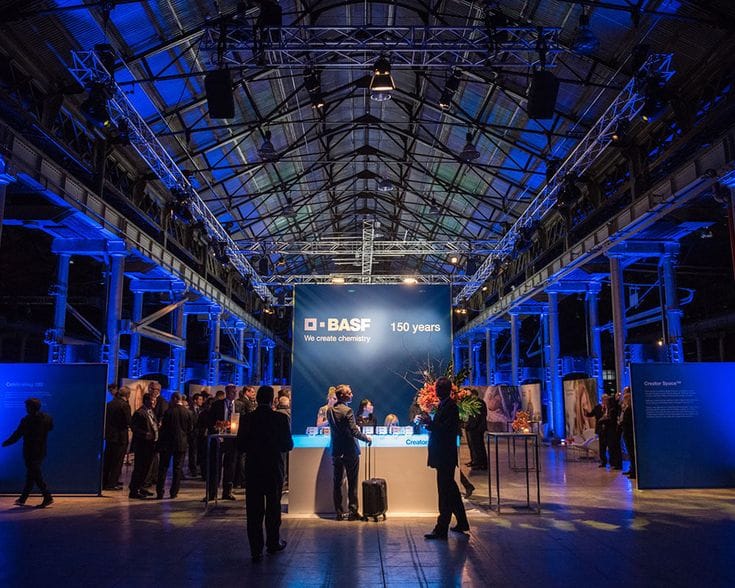
Types of Micro-Events Finding Success
-------------------------------------
* **Intimate Workshops and Master Classes**: Skill-building sessions with direct access to expert.
* **Brand Showcases**: Exclusive product launches for select customers and influencers.
* **Supper Clubs**: Curated dining experiences combining culinary artistry with community building.
* **VIP Behind-the-Scenes Tours**: Offering access to spaces and processes not available to the general public.
* **Mini-Retreats**: Focused wellness or professional development gatherings in unique settings.
* **Micro-Conferences**: Single-track, highly focused professional events with curated attendee lists.
How to Create Impactful Micro-Events
------------------------------------
### 1\. **Define Your Purpose with Precision**
Begin with a crystal-clear understanding of what you want to achieve. Is it brand building, community development, education, or something else? The more specific your objectives, the more effectively you can design every element of the experience.
### 2\. **Know Your Audience Intimately**
Success hinges on understanding exactly who your event serves. Go beyond basic demographics to uncover their passions, pain points, and what would constitute a transformative experience for them.
### 3\. **Curate Attendees Thoughtfully**
Consider how participants will interact and what each person brings to the communal experience. The right mix of personalities and perspectives can create dynamic energy and meaningful connections.
### 4\. **Design for Interaction**
The most memorable micro-events facilitate connection—between attendees, with the content, and with the environment. Create multiple touchpoints for engagement and leave room for spontaneous interaction.
### 5\. **Focus on Sensory Details**
When working with smaller numbers, you can pay attention to details that would be impossible at scale. Consider how every sense will be engaged during the experience and look for opportunities to surprise and delight.
### 6\. **Create Moments Worth Sharing**
Despite their intimate nature, micro-events can amplify your reach when participants become advocates. Design "Instagram moments" and shareable experiences that extend the event's impact beyond those physically present.
Measuring Micro-Event Success
-----------------------------
While traditional metrics like attendance numbers become less relevant, other indicators grow in importance:
* Depth of engagement during the even
* Quality of connections formed
* Participant feedback and sentiment
* Post-event actions taken
* Word-of-mouth referrals
* Long-term relationship development
The Business Case for Going Small
---------------------------------
Though micro-events reach fewer people directly, their ROI can actually exceed that of larger gatherings when you consider:
* Lower overall production costs
* Higher conversion rates for desired actions
* Stronger relationship building
* More qualified lead generation
* Enhanced brand loyalty and advocacy
* Valuable data collection opportunities

Looking Forward: The Future of [Micro-Events](https://venzi.ai/blog/building-event-communities-strategies-2025/)
-----------------------------------------------------------------------------------------------------------------
As consumer expectations continue to evolve, we can expect micro-events to become increasingly sophisticated and strategic. Emerging trends include:
* Hybrid micro-events with both in-person and virtual components
* Serialized experiences that build community over time
* Hyper-local gatherings that celebrate specific cultures and contexts
* AI-enhanced personalization of micro-event journeys
* Sustainability-focused intimate gatherings
Conclusion: Small Gatherings, Big Impact
----------------------------------------
In a world where attention is the scarcest resource, micro-events offer a powerful way to create meaningful connections and memorable experiences. By focusing on quality over quantity, brands and organizations can foster deeper engagement, build stronger communities, and create advocates who amplify their message far beyond the event itself.
When crafted with intention and executed with care, these intimate gatherings prove that sometimes the smallest events create the biggest impressions.
---
This blog is powered by Superblog. Visit https://superblog.ai to know more.
---
## Building Event Communities: Top Strategies for 2025 With Venzi
Author: Unknown
Published: 2025-05-02
Category: Event Marketing
Meta Title: Building Event Communities: Top Strategies for 2025
Meta Description: Discover 2025's top strategies to build strong event communities, boost attendee engagement, and drive brand loyalty through community-led experiences.
Tags: Event Tech, community engagement, virtual events, Event Marketing
URL: https://venzi.ai/blog/building-event-communities-strategies-2025
By 2025, the event world will exceed its basic booths and keynotes and focus on developing enduring, strong, work-related communities. Today's event participants seek more than information since they seek meaningful connections. Events in 2025 achieve their primary success factor through their ability to create sustained engagement and involvement.
Brands that intend to sustain their market relevance use community-driven event marketing because people today value human-centric experiences above all else. The development of event communities has become mandatory for creating high-performing event strategies.
This blog explains why community development matters to the future of 2025 and reveals steps event planners need to follow to create and sustain online and offline communities to build brand advocacy among loyal participants.
**Why Event Communities Matter in 2025**
----------------------------------------
The limits of success measurement solely through ticket sales and event-day attendance no longer exist. Modern technology has enabled brands to develop miniature communities that unite members through mutual life purposes, common interests, and shared identity traits.
### **These vibrant communities:**
* Mutual attendance coupled with brand loyalty action emerges as a result
* Generate organic promotion through word-of-mouth
* Boost net promoter scores (NPS)
* The platform should let users keep communicating after the event concludes.
Robust Event communities enable brands to maintain constant brand recognition throughout each year. The system at Venzi.ai has a chance to introduce communication solutions that help event organizers maintain post-event engagement with their audience. The main focus is event-time activities and the resulting effects beyond the event conclusion.
The event industry will face these three fundamental approaches to constructing communities by 2025.
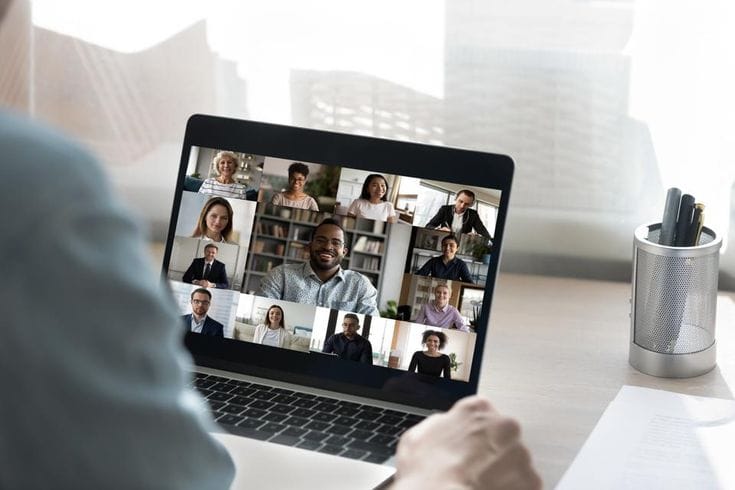
**1\. Communities should begin their formation before event inception**
You must initiate community creation projects well before your events launch. Planners should identify their attendees in advance through segmentation techniques alongside implementing engagement activities that begin before the first occasion. The build-up of excitement and the feeling of being an elite member occurs through initiating audience participation with restricted discussion platforms, special Discord chat channels, and selected email content before the event's launch.
To create anticipation about the event, organizers should launch an AMA session with keynote speakers, which takes place weeks before the launch date to attract attendees who want early interaction.
**2\. Use event technology tools from Smart Event to customize the experience.**
Venzi.ai represents an AI-powered technology that delivers precise customization options for organizers to enhance attendee engagement. The analysis of three types of user data, including industry background as well as past conference participation and content engagement, lets platforms deliver:
* Tailored session recommendations
* Smart networking pairings
* Custom content libraries
At a fintech conference, the first-time founder will access special investor-matching events, whereas returning CTOs will receive customized blockchain infrastructure information. Event platforms enable better user satisfaction and increased audience participation through smart personalization options.
**3\. Focus on Two-Way Engagement**
Today's audience seeks communication rather than one-directional speaking. The events should establish participation elements, which include:
* Live polls
* Crowd-sourced Q&As
* Peer-led panels
* Breakout rooms
Per our professional tip, you should allow attendees to participate in topic selection and speaker choices through your community platform. The participation of attendees makes them remain engaged. Allowing event participants to decide their personal experience level boosts their emotional connection and encourages future participation.
**4\. Build a Year-Round Content Ecosystem**
The most popular events have now transitioned from being temporary single-time events. The events act as content centers to transmit webinars along with newsletters and social content between events through continuous engagement and relevance preservation.
Apply post-event analytics for user segmentation, which enables personalized follow-up procedures. The educational experience deepens through the delivery of session recordings, important takeaways, exclusive interview content, and whitepapers.
The automated workflows available through Venzi.ai enable staff to provide personalized attendee treatment based on their interaction levels, interests, and community participation history, thus delivering enhanced quality experiences while reducing staff workload by hundreds of hours.
**5\. Create Value-Based Micro-Communities**
Multiple micro-communities should be formed by splitting your large audience into segments according to job position or location and shared motivations or membership affiliations. The communities deliver prolonged peer-to-peer value through relevant interactions, which lead to deep connections.
**Examples include:**
* Women in Tech circles
* Founder-to-Founder chat rooms
* Student mentor programs
* Geographic networking pods
LinkedIn announced in 2024 that focused interest groups brought in triple the engagement levels compared to standard community pages.
**6\. Empower Community Ambassadors**
Search out the members in your community who lead the way the most and appoint them to be brand ambassadors while making them group leaders. Your community will profit from members who regulate panel discussions, assist with online group chats, and handle social media brand representation.
The grassroots support system creates both an active and humanized community experience when major events are absent. The influence of these members creates better trust with community newcomers while helping them join the community at the same time.
**Examples of Brands Doing It Right**
* SaaS Annual developed a permanent Slack community with more than 20,000 SaaS experts who gain access to continuous peer learning resources and ongoing content.
* Users find creative challenges each year at Adobe MAX, and content drops spread across the year, connecting them with an actively developing system.
* Notion invites participants to their annual event to organize superuser community groups and local events around the globe.
Brands that build strong communities transform single-use participants into permanent promoters who become devoted customers.

**How Venzi.ai Supports Community-Led Events**
----------------------------------------------
Venzi.ai provides organizers with fundamental capabilities to construct communities and automated management to grow their communities with limited human intervention sustainably. The platform offers event-stage-specific tools to engage audience members before, during, and after the event.
* The implementation of personalized invitations and smart segmentation should occur before the event.
* Event participants can benefit from session recommendations, automatic participant matching, and interactive live experiences.
* The Event Completion Phase Involves Automating Follow-up Communications That Send Content And Perceive Audience Behavior Changes For Nurturing Needs
[Venzi.ai](https://venzi.ai/blog/ai-powered-event-networking/) users can graduate from holding single events to establishing continuous online community domains.
---
This blog is powered by Superblog. Visit https://superblog.ai to know more.
---
## How AI-Powered Matchmaking Is Transforming the Future of Event Networking
Author: Unknown
Published: 2025-04-30
Category: Event Matchmaking
Meta Title: Revolutionizing Event Networking with AI Matchmaking
Meta Description: Discover how AI-powered matchmaking is transforming event networking—boosting engagement, ROI, and meaningful connections for all event stakeholders.
Tags: Event Planning Tools, Event Engagement, Event Tech Solutions, Smart Networking, AI in Events
URL: https://venzi.ai/blog/ai-powered-event-networking
The business world demands thoroughly transformed expectations from events because digitalization has reshaped data management and operations. Business event participants now require more than randomness in their encounters since they expect meaningful connections during business card exchanges. People attending these events demand meaningful connections that deliver both speed and meaningful worth in each encounter. The organizers of events, along with exhibitors, now demand meaningful connections combined with measurable returns of investment backed by analytical information.
Artificial intelligence is a practical solution that transforms networking interactions by addressing their fundamental needs.
AI-powered matchmaking serves as a contemporary network matching system that directs suitable connections between people during appropriate times for suitable purposes. Venzi represents the future by helping events connect participants through unique relationships that transition passive involvement into focused participation.

**The Challenges with Traditional Event Networking**
----------------------------------------------------
Connecting with others during events usually fails to yield productive results. Many attendees waste several hours between sessions at exhibition areas yet establish minimal appropriate professional relationships. Several problems exist within traditional networking networks, such as:
* Random or irrelevant conversations
* Participation opportunities are short to recognize the correct team members who match business objectives.
* Lack of context before meetings
* Low conversion from contacts to actual business opportunities
Event attendees who have prepared their goals struggle to locate their most valuable connections because of the fast-paced nature of in-person or virtual occasions. The result of this limited networking falls short of organizer satisfaction metrics because they cannot effectively track attendee data and measure performance levels or areas that need improvement.
**What Is AI-Powered Matchmaking?**
-----------------------------------
The AI system, through matchmaking, enhances networking by automatically finding matches between participants with compatible goals, professional alignments, and mutual interests. The system identifies suitable partnerships among participants through data analysis before arranging purposeful engagement opportunities.
### **Here's how it typically works:**
**1\. Profile Matching**
The attendees gave information, mentioning their job titles, industries, business targets, and particular choices. The system uses the provided information to suggest meaningful connections.
**2\. Behavioural Analysis**
User behaviour data enables the system to learn about what sessions users attend and whom they interact with while tracking what interests they show on the platform.
**3\. Real-Time Optimization**
The AI modifies its recommendations during the event to enhance match quality and participant engagement.
The system uses continuous learning protocols to make matches progressively more suitable as users extend their platform activity. The system generates a tailored platform which maximizes stakeholder satisfaction through an efficient network process without compromising quality results.
**How Venzi Enhances AI Matchmaking**
The Venzi platform transforms events into interconnected systems that drive discovery between people and enable collaboration at maximum efficiency. The AI-powered networking environment at Venzi performs more advanced than manual profile comparisons through intelligent networking features.
The Venzi matchmaking platform includes several essential features, which comprise:
**1\. Smart Recommendations**
Computing systems use profiles besides goals and behavioural patterns from attendees to establish pairings.
**2\. Advanced Filters**
Participants can enhance their matchmaking experience through specific preference settings, including job functions, study choices, and business objectives.
**3\. Meeting Scheduler**
The scheduling tool inside the program enables users to plan individual sessions through its integration with personal schedule databases.
**4\. Live Updates**
Venzi updates its match recommendations throughout the event's interactions according to what users find attractive.
**5\. Post-Event Engagement**
The application maintains connections and conversations after the event to allow businesses to continue contact.
The automatic system is extremely helpful for major events because it simplifies finding appropriate contacts. Venzi automates discovery functions together with targeted meeting promotion, which creates both high user satisfaction rates and enhances the worth of participant involvement.
**Benefits for All Stakeholders**
**For Attendees**
* Fewer but more relevant meetings
* The meetings provide financial and temporal advantages when evaluating expenses and meeting durations.
* Personalized networking experiences
**For Exhibitors and Sponsors**
* Better access to high-value leads
* The platform improves the number of booth encounters, which leads to higher conversion statistics.
* Greater visibility into attendee interests
**For Organizers**
* Increased attendee satisfaction and retention
* Higher participation in networking activities
* The system provides relevant, actionable data that exhibitors and sponsors can share with stakeholders.
Venzi manages stakeholder objectives in a way that produces an integrated event environment which places networking at its core value base.
**Example in Practice**
One of the marketing executive team members chose to attend an industry conference with 3000 participants. A marketing executive seeks to meet individuals with senior positions within retail technology to present their software product. Before these approaches, they must trust others to change or distribute their efforts widely.
**With Venzi:**
* The platform provides instant contact recommendations with five suitable business professionals and two CIOs.
* The matches come with detailed information explaining the significance of each professional relationship.
* Participants can schedule meetings inside the application through combined time slot availability.
* After meetings, the executive gets reports containing performance data and participant activity statistics.
Purpose-driven strategies improve event ROI through strategic replacements of guesswork behaviour. Event attendees develop networks that deliver lasting value by building connections directly related to their strategic business vision.

**Human Connection, Enhanced by AI**
The widespread use of technology often leads people to fear that events may lose their human personality. The reality reveals that artificial intelligence-powered matchmaking improves human experiences by removing standard networking issues for participants. Event participants dedicate their time to meaningful discussions since they do not need to hunt for potential connections.
AI is an enhancement tool for human relationships through its ability to deliver appropriate information within critical moments.
**Why Now?**
The adoption of hybrid and virtual platforms has made it paramount for organizers to present demonstrable value to their event participants. The requirement of smart networking practices exceeds being optional because it has become an essential expectation. The audience prioritizes personalized interactions during events, so exhibitors need measurable success. Artificial Intelligence matching systems are an efficient data-based solution to fulfil networking expectations.
[Venzi](https://venzi.ai/blog/netflix-personalized-conferences-with-ai-venzi/) platforms assist event organizers in leadership by providing adaptive real-time networking features that generate quantifiable outputs and increase the worth of all events.
Event networking will move past digital-only services into an advanced and client-centered system. And it's happening now.# FAQs
Q: Is AI matchmaking suitable for small events?
A: Yes. AI matchmaking scales to fit events of any size. Even smaller events can benefit from smarter, more targeted networking.
Q: What kind of attendee data does Venzi use?
A: Venzi uses self-reported profile information, event activity, preferences, and goals to create accurate matches.
Q: How does Venzi ensure privacy and data security?
A: Venzi is GDPR-compliant and uses encrypted protocols to ensure that all attendee data is safe and confidential.
Q: Can users control their match suggestions?
A: Yes. Users can set filters and preferences to refine their matches and ensure relevance.
Q: What’s the benefit for sponsors and exhibitors?
A: AI matchmaking helps them connect with the most relevant prospects, increasing engagement and the chances of conversion.
---
This blog is powered by Superblog. Visit https://superblog.ai to know more.
---
## What If Netflix Planned Your Next Conference? AI + Personalization Explained
Author: Unknown
Published: 2025-04-28
Category: Event Personalization
Meta Title: What If Netflix Planned Your Next Conference? | Venzi.ai
Meta Description: Discover how Venzi.ai uses AI and personalization to deliver conference experiences as smart, seamless, and relevant as Netflix. The future of events is now.
Tags: AI for events, Smart conferences, Netflix, Event personalization
URL: https://venzi.ai/blog/netflix-personalized-conferences-with-ai-venzi
A conference experience should provide attendees with customized programs like how Netflix recommends ideal shows to its users: no endless scrolling or second-guessing. Your events bring you only meaningful experiences that stand out due to being both exciting and meaningful for your professional development.
Your upcoming conference has the potential to match the tailored experience that Netflix provides to its users. People no longer need to wait for the personalized conference experience because AI technology and Venzi.ai have made it a reality.
**How Netflix Changed Personalization Forever**
-----------------------------------------------
Personalization techniques at Netflix are excellent because of their superior execution. Users do not encounter random TV shows or movies through its system. The platform studies how you view content while analyzing your viewing patterns to provide material that it predicts you will like. Your platform activities, such as clicks, scrolls, and watch time, reveal your preferences to Netflix, which responds automatically.
The result? Users find their choice of entertainment quickly with Netflix, which produces both greater satisfaction and improved customer loyalty.
The algorithm that Netflix uses operates as a learning rather than a guessing system. The platform examines your pattern for watching action, drama, and documentary content. The system detects your preference for watching activity. The resulting knowledge Albino forms through deep insights creates a delightful and natural viewing experience.
By implementing this method at conferences and events, the entire visiting experience will undergo a complete transformation. No more generic agendas. No more awkward networking. The concept only requires engagement metrics combined with data processing to operate.
**A Conference System like Netflix Currently Operates**
Attendees should receive a dynamic, personalized agenda from their preferences, behavioral data, and current time-based activities rather than programs based on print or apps with complex interfaces.
* A digital marketer's job would allow automated discovery of sessions focusing on AI-driven campaigns and influencer marketing.
* The founder enters a vital meeting with venture capitalists through a VIP roundtable recommendation.
* Healthcare professionals would find appropriate workshops between digital health innovations sessions alongside patient experience development programs through matching algorithms.
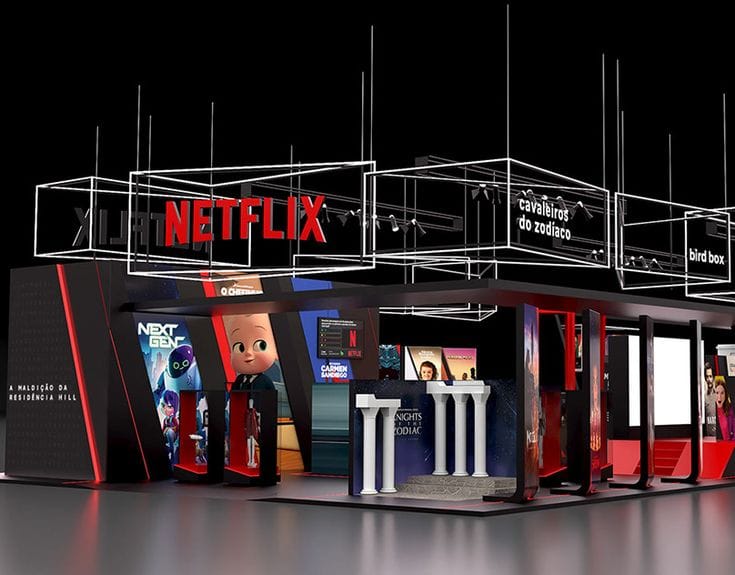
**The mystical features continue beyond the scheduled appointments.**
---------------------------------------------------------------------
### Smart personalization can recommend:
* The best booths to visit.
* The participants who would deliver the most beneficial interactions.
* Event guests have the option to attend after-hours programming that matches their expertise.
* After events, the system provides content recommendations, like Netflix does, by recommending more material through its "Because You Watched..." feature.
The platform ensures you never lose valuable time through unproductive arrangements, abandoned contacts, or excessive commitments. Every moment of the conference feels handpicked for you.
**Venzi.ai Develops These Solutions**
This isn't just a dream. The company Venzi.ai transforms this vision into practical achievement.
The latest AI technology lets Venzi monitor numerous attendee activities, including registration choices, session check-ins, and in-event behavior such as booth stops and digital engagement,t to teach it about tailoring custom event plans and individualized event experiences.
### **Here's how it works:**
* When attendees participate in registration, they specify their professional interests and event objectives.
* AI technology built by Venzi generates specific meeting plans and matches professional networking opportunities.
* Venzi adjusts its recommendations throughout the event by tracking which sessions participants attend and which connections they establish.
* The event-generated follow-up content ensures extended value for participants for whom the event exceeds post-closing time.
Like a personal event assistant who thinks ahead for you, the technology creates an advanced system that enhances all your experience steps while you are present.
The event management process produces more pleased attendees while creating enhanced session participation data for organizers.
**Personalization now represents the fundamental standard that businesses should adopt.**
Modern businesses must provide personalized experiences because this capacity has evolved from being additional to becoming mandatory.
**Recent event industry research shows:**
* Most (72%) of event attendees will interact with personalized event experiences.
* Exactly developed content results in a 25% rise in attendance throughout the event sessions.
* Real-time network recommendations increase meaningful networking interactions to a level that exceeds 40%.
* Guests prefer personal follow-ups after events when these communications are generated through session attendance information.
Personalization is the main strategy that succeeds when attention spans are short and choices are abundant. Organizers show attendees that they have priority over their time, personal choices, and objectives.
When properly applied, it generates emotional power, which converts passive visitors into active event promoters.
**The Future: Smart Conferences That Adapt in Real-Time**
Future conferences will no longer operate statically. These spaces will function as living environments that automatically adjust to the movements of their attendees.
**Picture this:**
* The sustainability trends keynote presentation becomes one of your main conference sessions.
* Your event application immediately presents two relevant breakout events in the afternoon.
* The system notifies you about upcoming network events among climate technology innovators.
* As you walk through the exhibition floor, the app recommends green technology displays from the expo based on your preferred areas of interest.
* The event platform provides handpicked sustainability-focused content, such as articles and podcasts, and sustainability-related upcoming events following the conference's conclusion.
Artificial Intelligence technology executes these services independently while eliminating the need for manual filtering or guessing from users.
Venzi.ai platforms serve to transform traditional events into new innovative standards through their platform design. The result? Ever-partial attendees create better business results for event organizers while enhancing the connected event system.
Your encounter at events becomes an experience thanks to personalization practices.
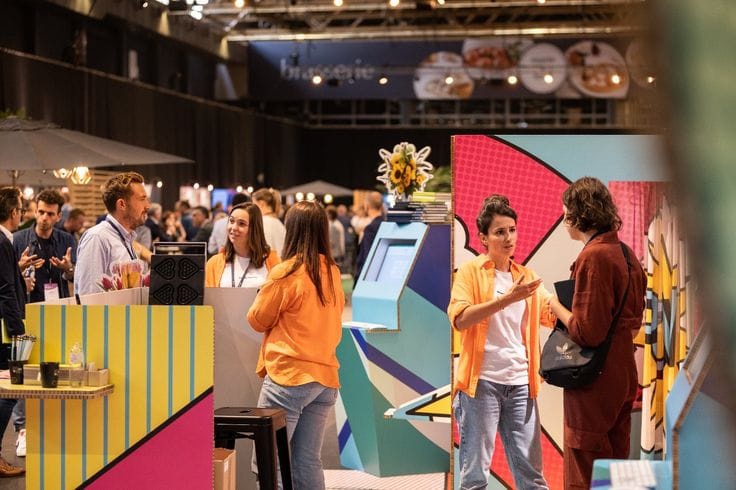
**Conclusion: Your Conference, Your Way**
Your conference can detect your upcoming conference's best session while identifying its most suitable presenter and engaging opportunities.
Venzi.ai uses AI and personalized capabilities to transform basic events into amazing guest experiences through customized solutions for every participant.
Events in modern times must use smart personalization because attention functions as the principal currency while smart personalization is present now.
You need to plan your next extraordinary conference with [Venzi](https://venzi.ai/blog/ai-event-marketing-viral-strategies/).# FAQs
Q: How does Venzi.ai personalize event experiences?
A: Venzi.ai uses AI to analyze attendee data, preferences, and real-time behavior to deliver customized content recommendations, networking opportunities, and personalized agendas.
Q: Why is personalization important for conferences today?
A: Personalization improves attendee satisfaction, increases engagement rates, boosts ROI for organizers, and makes events feel more relevant and memorable.
Q: Can AI-driven personalization work for small or niche events?
A: Absolutely. Whether it's a global conference or a focused industry workshop, AI personalization can enhance the experience for every size and type of event.
Q: How does real-time personalization during events actually work?
A: Venzi.ai's AI continuously updates suggestions based on an attendee’s ongoing activity, like attending sessions, checking into booths, and interacting with event content.
---
This blog is powered by Superblog. Visit https://superblog.ai to know more.
---
## 10 Surprising Ways AI Can Make Your Event Go Viral
Author: Unknown
Published: 2025-04-25
Category: AI for Event Marketing
Meta Title: 10 AI Strategies to Make Your Event Go Viral
Meta Description: Discover 10 surprising ways AI can help your event go viral with real use cases, smart tools, and modern marketing strategies that drive buzz and attendance.
Tags: Artificial Intelligence, Venzi.ai Tips, Digital Marketing Strategies, Event Marketing
URL: https://venzi.ai/blog/ai-event-marketing-viral-strategies
Successfully promoting your event in digital marketing requires strategically implementing appropriate tools during specific times rather than baseless luck. Artificial Intelligence (AI) drives a total transformation of event promotion alongside how people experience and recall events. Artificial Intelligence delivers power through content creation and predictive targeting, transforming unnoticed events into unforgettable ones.
AI offers ten innovative methods to ramp up event virality, and this piece provides practical implementations along with device recommendations for your event initiative.
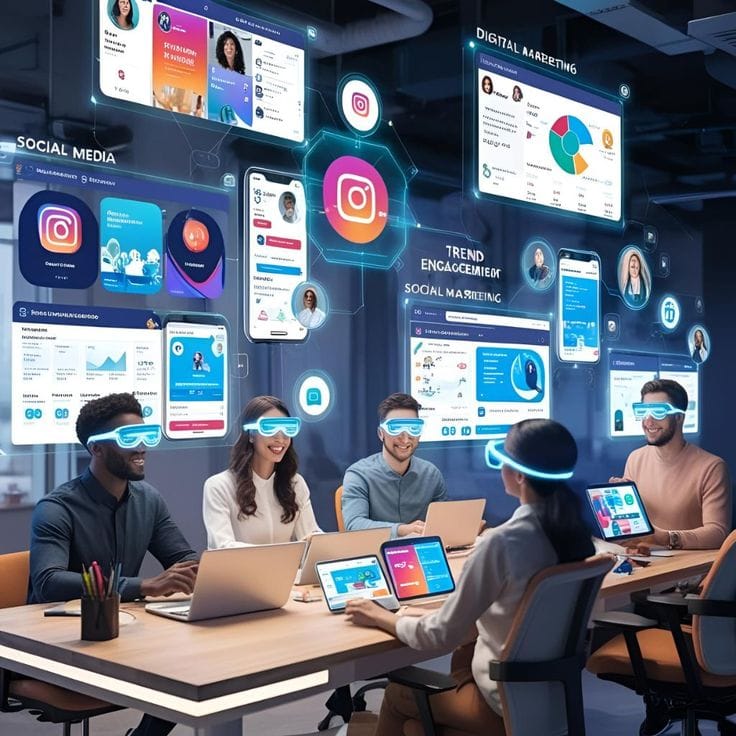
**1\. The content produced by AI systems is specifically designed to achieve trending status**
----------------------------------------------------------------------------------------------
Good content gets noticed. Great content gets shared. AI content tools, including ChatGPT and Jasper and Venzi's Smart Prompter, provide immediate generation of customized blog content and newsletters alongside tweet threads, LinkedIn carousels, and engaging Instagram copy for your target audience.
A SaaS company utilized AI technology to produce 30 pieces of promotional material to promote their virtual summit. The result? The landing page traffic escalated 3 times alongside the company achieving its highest sign-up total.
AI tools should be used to run A/B testing against headline subject lines and captions before launch to discover the most shareable variations.
### **2\. Hyper-Personalized Email Campaigns That Convert**
Forget one-size-fits-all emails. You can divide your audience by their behavioral signals, geographical data, and interaction patterns using AI technology. In contrast, the messages appear custom-made despite their computer-generated origin.
The email platforms Mailchimp with AI, HubSpot's Smart Content, and ActiveCampaign let users achieve personalized marketing on a large scale.
You should automate your follow-up correspondences through AI technology, which adjusts delivery messages according to user interaction results, such as opening or not responding.
**3\. Real-Time Social Listening to Join Viral Trends**
The AI-powered tools Brand24 and Mention plus Talkwalker track active social conversations so you can sync event messaging with what people are discussing in real-time. This strategy allows you to capitalize on existing popular trends without difficulty.
The fintech webinar shifted its topic to cryptocurrency regulations after a regulation announcement through an immediate 48-hour alteration that raised Twitter sign-ups by 40%.
A connection between Venzi automation and AI social listening should run content creation through an immediate trigger to spawn material around trending topics.
**4\. AI-Powered Influencer Discovery**
Identifying suitable micro-influencers allows you to generate substantial event exposure through their platform. The AI platforms Upfluence, Influencity, and Heepsy use user data, audience engagement, and sector-specific evaluation for events to assess influencer profiles.
The application of artificial intelligence by this B2B event permitted the identification of 15 LinkedIn and YouTube influencers who delivered an organic reach of 20,000+ within 10 days.
You must leverage AI systems to estimate ROI rates and engagement metrics before entering any business arrangement with an influencer.
**5\. Auto-generated highlight Reels and Social Teasers**
The popularity of video content stands as the number one element for sharing, while AI technology enables its automatic production today. The combination of Pictory, Lumen5, and Runway ML enables users to transform their unprocessed images, videos, or written text into dynamic promotional videos, trailer clips, or dynamic introductions.
Pictory allowed a university to produce highlight videos from their past events. Using AI, the platform extracted top content from videos, which resulted in a 72% increase in user engagement on Instagram.
Using AI-generated captions alongside transitions and background music enables you to refine your videos in minutes instead of spending days on them.
**6\. Smart Chatbots That Convert Visitors into Attendees**
A correctly positioned AI chatbot supports users by answering common questions while helping with registration, suggesting events, and presenting VIP opportunities in an automated format to visitors.
Combining Intercom, Drift, or customized chatbots made by Venzi's API will lead to substantial conversion rate improvements.
A healthtech startup implemented a chatbot on its event page and obtained a 47% sign-up boost through completion in only 2 weeks.
**7\. Your Target Audience Predictions\_engage Customers Who Will Become Your Best Event Participants**
The AI-based ad platforms from Advantage+ by Meta, AI Smart Bidding by Google, and Predictive Targeting from LinkedIn apply past user behavior data to predict likely registrants or engaged users and allocate their advertising budgets to those audiences.
A meta-driven lookalike audience campaign launched in Dubai decreased product launch lead costs by 40% within one promotional cycle.
Venzi can overlay its audience behavior analytics data with Growth Hack to produce an understanding of events.
**8\. Generative AI for On-Brand Visuals in Seconds**
Artistic design creation takes a lot of time until you utilize AI art generators, including Midjourney DALL•E or Canva's Magic Design tools. The tools enable users to automatically create event posters together with speaker cards and promo graphics featuring company branding.
People should use AI to make "shareable moments," such as countdown carousels and speaker reveal cards that match each social network requirement.
**9\. Real-Time Engagement & Sentiment Analysis During the Event**
Your event retention will increase through AI-powered tools such as Slido, Mentimeter, or Venzi integration offerings, real-time polls, and sentiment tracking with content adjustment capabilities.
The application of sentiment analysis at a live conference created automatic mood adjustments based on feedback changes, leading to enhanced ratings and better participant involvement.
The engagement AI system triggers notifications for application users through app alerts and push messages, keeping their attention levels high.
**10\. Post-Event AI Analysis for Future Virality**
The event data gets analyzed by AI post-event, which reveals everything correct about the event and everything that needs improvement. Woopra and Mixpanel, together with Venzi AI dashboards, enable companies to monitor social performance, measure attendee feedback, and understand session engagement metrics.
Through AI monitoring, the SaaS company identified that brief video clips of speaker keynotes produced maximum traffic after the event. The team transformed this content into new material for their successful viral marketing efforts.
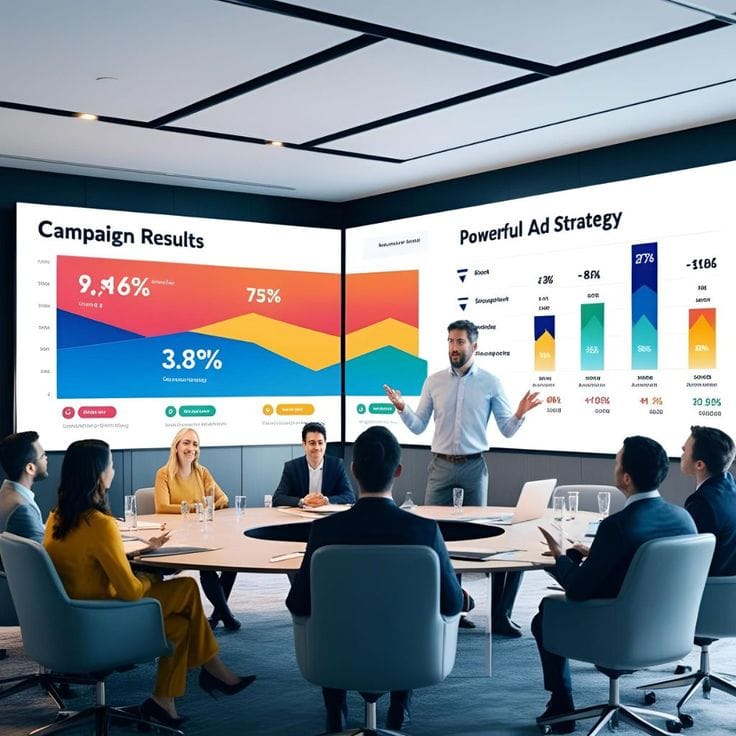
**You Should Let Artificial Intelligence Incorporate Itself as Your Event Partnership Partner**
-----------------------------------------------------------------------------------------------
The virality power you need to propel your business can be found in your AI implementation. The combination of AI systems supports your promotional efforts both before the event and during its execution, and afterward, it helps you evaluate your performance.
[Venzi.ai](https://venzi.ai/blog/manual-vs-automated-event-planning/) provides straightforward implementations of advanced AI systems, allowing you to concentrate on exceptional event delivery. Ready to go viral? The AI approach will help us achieve this goal.# FAQs
Q: Is AI useful for both virtual and physical events?
A: Absolutely. AI can enhance event marketing, registration, and post-event engagement for both virtual and in-person formats.
Q: How can I start using AI for my event?
A: Start small. Use tools like Venzi’s Smart Prompter for content, or AI chatbots on your site. As you grow, integrate social listening, influencer outreach, and analytics.
Q: Can AI really make an event go viral?
A: Yes, when used strategically. AI helps identify trends, optimize content, automate targeting, and generate high-performing assets that increase your chances of going viral.
---
This blog is powered by Superblog. Visit https://superblog.ai to know more.
---
## Are You Still Planning Events Manually? Here’s What You’re Missing Out On
Author: Unknown
Published: 2025-04-23
Category: Smart Event Management
Meta Title: Why Manual Event Planning Is Holding You Back | Venzi.ai
Meta Description: Still planning events manually? Discover how automation with Venzi.ai saves time, boosts engagement, and streamlines your entire event planning process.
Tags: Event Planning Tools, Event Trends 2025, Event Technology, Event Marketing
URL: https://venzi.ai/blog/manual-vs-automated-event-planning
Event planning operates rapidly because manual processes consume time and money resources concurrently.
You are among many event planners who handle their tasks with spreadsheets while keeping track of RSVPs through lengthy email correspondence and manually coordinating vendors and speakers. The absence of technological optimization represents a lack of benefit from current technology advancements. Current event management progresses rapidly because automation functions as its central driving force. Through its leadership position, Venzi.ai demonstrates its ability to help event organizers simplify operations while eliminating mistakes and directing their efforts toward creating a memorable experience.
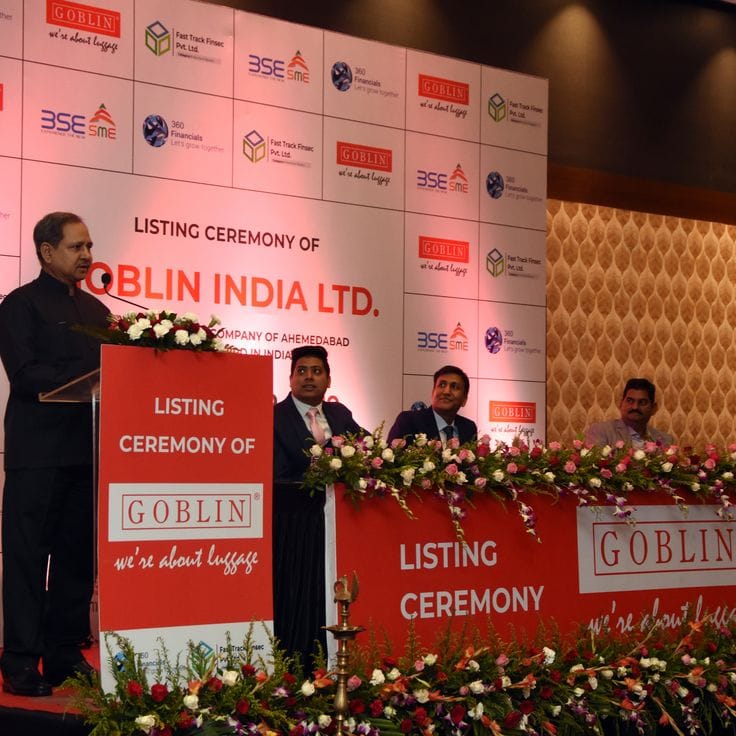
Think Corporate Event, Think ABLink
For Events Queries
Email : events@ablink.in | info@ablink.in
Contact : 9824023886
Visit us: www.ablink.in">
This piece will explain why manual planning gives you deficiencies and how automation transforms event approaches.
------------------------------------------------------------------------------------------------------------------
### **1\. Time-Saving Efficiency**
The traditional process of manual event organization requires workers to dedicate many hours toward recurrent duties, including reminder delivery, guest list management, and feedback acquisition. The combined tasks build up to form a significant time commitment that becomes quite substantial.
Venzi.ai performs the bulk work that reduces your administrative load. The platform allows you to schedule event interactions and optimize them before reclaiming time, which lets you develop strategies and artistic concepts.
**2\. Real-Time Data and Insights**
Manual planning makes it complicated to base decisions on actual data. Manual planning makes you dependent on outdated or subjective feedback information. When current data is unavailable, poor results occur, with all key performance indicators at risk of producing substandard outcomes.
Venzi provides event managers with live data about attendance figures, audience participation metrics, and presentation statistics. Using the real-time data and insights from Venzi will allow immediate event optimization and better strategic decisions for upcoming events.
**3\. Flawless Attendee Experience**
Attendee experience is everything. A manual setup operation allows humans to accidentally forget crucial significant aspects, including wrong name tags, undetected dietary requirements, and delayed alert messages, among other material points.
The communication platform of Venzi.ai provides every participant with punctual messages that deliver specialized content designed for their needs. Intelligent automation helps you develop uninterrupted processes that support audience engagement and enhance their value perception throughout registration.
**4\. Higher Engagement Through Personalization**
Standardized email messages and generalized communication approaches no longer work for modern audiences. Event participants require individualized treatment across all activations, such as recommendation services, networking possibilities and post-event deliverables.
Venzi enables institutions to deliver tailored content to numerous individuals using available behavioural data. Users enable custom session notification services which adapt content presentation according to participant activity without any hands-on labour.
**5\. Integrated Communication Channels**
Event planning through manual means requires organizations to use different platforms simultaneously since they need email for invitations, WhatsApp for urgent messages, Excel for attendee management, and Google Forms for gathering feedback. The process creates a heavy chaos that produces inconsistent delivery while allowing multiple errors to occur.
Venzi centralizes your communication. Through the Venzi interface, clients can monitor all communication channels, including websites, WhatsApp, and push notifications. The system dilemma enables you to guide operations while your attendees receive constant updates.
**6\. Scalability Without the Headaches**
You can manage seminars with thirty people through manual planning, yet almost all other large events spanning 500+ participants or several hybrid days demand automated planning.
That's where automation becomes essential. Venzi's capabilities match your business growth. Venzi provides flexible tools that automate speakers' coordination alongside breakout room management and ensure check-in processes across multiple locations, thus making your business expansion seem simple.
**7\. Cost-Efficiency and ROI**
The notion that automation expenses are high exists solely as a myth. Virtual data handling offers financial advantages because it is cheaper than manual operations.
Using human labour frequently leads to costly mistakes, including repeated bookings, communication-related no-shows, and vendor expenses that exceed expectations. Advantages derived from Venzi automation include helping you reduce waste while improving attendance, which results in amplified ROI.
**8\. Stress-Free Planning**
All of us have experienced the stressful aspects related to organizing events. Perpetual anxiety arises from concerns about forgetting things while juggling unexpected modifications or a lack of available personnel.
The presence of Venzi eliminates all sources of stress from your operations. An all-in-one platform provides scheduling tools, communication features, logistics management, and analytics capabilities to ensure stress-free planning of memorable experiences.

**Final Thoughts**
It is the same as typing with a typewriter when Artificial Intelligence exists. Although manual event planning functions, it takes a long time and remains an inefficient process unsuitable for current requirements.
You must discard traditional manual planning methods because a software update will maximize your event quality and audience connection while maintaining progressive strategies. Your event planning through Venzi.ai becomes an experience-creation process that operates through intelligent systems, automation, and detailed accuracy.
Does manual event planning continue to be your method of choice?
Now is the right time to check out what previous methods will reveal to you.
Does your event need automation assistance now?
-----------------------------------------------
Users should evaluate the upcoming advancement of event planning solutions at [Venzi.ai](https://venzi.ai/blog/venzi-event-marketing-transformation/).
---
This blog is powered by Superblog. Visit https://superblog.ai to know more.
---
## From Boring Booths to Brand Buzz: How Venzi Transforms Event Marketing
Author: Unknown
Published: 2025-04-16
Category: Experiential Marketing
Meta Title: Venzi: Transforming Event Marketing with Smart Booths
Meta Description: Discover how Venzi turns boring event booths into interactive, data-driven brand experiences that boost engagement, leads, and ROI at every event.
Tags: Venzi Platform, Experiential Marketing, Marketing Technology, Conference Marketing, Event Marketing
URL: https://venzi.ai/blog/venzi-event-marketing-transformation
Marketing in the contemporary world needs more than static event booths featuring simple banner displays, brochures, and sweets to grab the attendees' interest. Today's event participants want memorable interactive experiences instead of ordinary giveaway items like pens or tote bags. Venzi functions as a platform that enables boring booths to evolve into powerful brand activations while passing crowds develop into strong brand recognition.
**Why Traditional Booths Fall Flat**
Event booths manage to be forgettable experiences for most visitors. These static booths feature standardized layouts, have uninterested personnel who show intense pressure or nonchalance and do not utilize digital features. The inability of these booths to form lasting impacts leads brands to miss valuable client acquisitions, sales opportunities, and public recognition.
Visitors pass the display booths until they take promotional material, but the experience stops there without connection points or follow-up opportunities. The numerous companies in one expo hall create an environment where being ordinary will result in complete neglect from attendees.
Through collaboration with Venzi, companies can achieve brand visibility while engendering customer dialogue, collecting data, and enhancing return on investment.
What is Venzi?
--------------
Venzi is an advanced event marketing solution that lets brands produce engaging interactive experiences during trade shows, conferences, exhibitions, and pop-up shows. Venzi empowers marketers to build highly interactive digital experiences through their platform to attract visitors and maintain their engagement during the event.
Venzi delivers results to companies by providing event-based experiences of game-based interactions, live information retention, individualized content, and real-time data analytics.
**Venzi stands out through its essential features, which shape the current market**.
------------------------------------------------------------------------------------
### **1\. Interactive Experiences**
Through its design, Venzi converts stationary visitors into participating event-goers. The platform enables touch screens and quizzes, AR filters, product demonstrations, virtual spin games, and live interactive challenges. The statement motivates visitors to engage with our brand rather than observe our products.
The function allows attention capture and brand memory stamping for trade show participants.
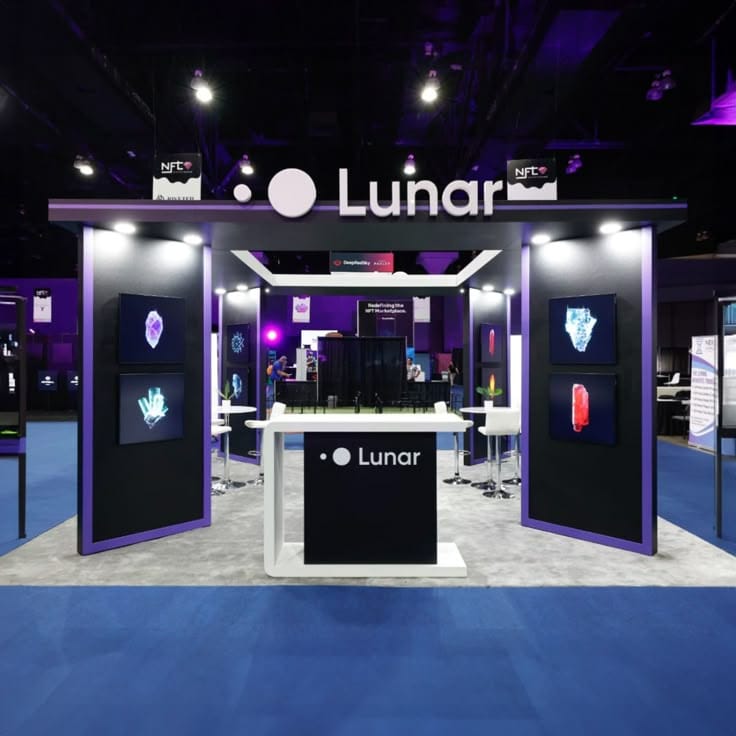
**2\. Real-Time Data Collection**
Significant progress has replaced the traditional approach of writing names on clipboards. The lead-capturing system in Venzi operates through automated processes for efficient data management. The platform efficiently collects real-time contact information, individual interests, engagement statistics, and other metrics.
Using real-time analytics after the event lets you organize your customer information for better engagement through personalized outreach methods.
**3\. Gamification for Engagement**
Games serve as forceful marketing solutions in addition to delivering entertainment. Through Venzi, you implement branded games and easy-to-play challenges that link to actual rewards.
Your booth engagement times increase while prospect participation rises three times higher, which creates active participation from visitors you initially attracted casually.
**4\. Social Media Integration**
Want your booth to go viral? Event attendees can use Venzi features to create booth content while applying branded filters and event hashtags because the platform provides instant sharing capabilities.
Your event presence will become more noticeable through social media network interactions with event participants, resulting in cost-free promotional value for event attendees.
**5\. Post-Event Analytics**
Measuring the return on investment remains among the most complex tasks when executing event marketing campaigns. Venzi eliminates this challenge through a user-friendly analytics dashboard that presents optimal activation results, including visitor metrics and engagement times. The platform also delivers audience conversion rates while displaying general click metrics.
Event strategy improvement becomes possible when you receive such analytical data to demonstrate booth success at future stakeholder meetings.
**A Real-World Transformation**
When exhibiting at a major industry conference, your SaaS brand could take part. Exhibiting with a roll-up banner and some brochures proves inadequate when you select Venzi as your partner.
**Your exhibit at Venzi would provide the following:**
* A touchscreen interface enables visitors to view product benefits as they happen in real time.
* The giveaways entice booth visitors to the spin-to-win contest, which rewards participants with price discounts.
* A selfie station with your logo and fun digital props
* Visitors can watch a virtual display featuring the game's most successful individuals.
* Your CRM system receives leads automatically through integrated lead-capturing software.
Your installation will attract attendees and produce positive excitement among them. The attendees actively participate because they perform various activities, including playing games and sharing information while engaging in conversations and creating memorable experiences.
**The Power of Experience-Driven Marketing**
Customers no longer respond to traditional sales approaches because they seek direct brand connections. They prefer genuine experiences rather than traditional advertisements and want to take part instead of remaining passive spectators actively. Brands can use Venzi to establish meaningful interactive experiences between their products and event attendees.
Through activity-based booth transformations, Venzi creates events that boost guest pleasure, organizational profits, and strategic value assessment capabilities.
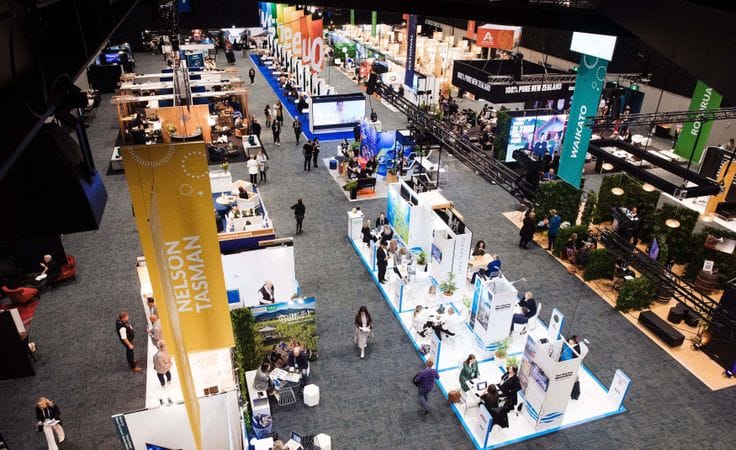
**The future of [event marketing](https://venzi.ai/blog/how-event-agencies-use-venzi-to-close-deals-faster/) has become a present-day reality**
Your brand spends thousands to millions on event sponsorships; thus, you should aim for more than run-of-the-mill results. Through its platform, Venzi helps brands optimize every available booth space by transforming it into an interactive customer engagement system.
Venzi provides a comprehensive collection of tools that enable you both to enhance your brand visibility while creating profound long-term marketing effects.
The era of dull booths needs to end because we welcome brand enthusiasm.
Venzi introduces its time to activate.# FAQs
Q: How does Venzi enhance brand visibility at events?
A: Venzi uses interactive tools like social media sharing, branded filters, and gamification to increase attendee engagement and online visibility, amplifying your brand reach.
Q: Can Venzi integrate with our existing CRM or marketing tools?
A: Yes, Venzi supports integration with major CRMs and marketing platforms, making it easy to sync collected leads and follow up with personalized campaigns post-event.
Q: What types of interactive experiences can I create with Venzi?
A: You can build games, digital contests, product demos, quizzes, virtual spin wheels, polls, AR filters, and much more to engage your audience in real time.
Q: Is any technical knowledge required to use Venzi?
A: Not at all. Venzi is designed for marketers and event teams. It offers an intuitive interface and a support team to help you set up custom activations without needing coding skills.
---
This blog is powered by Superblog. Visit https://superblog.ai to know more.
---
## Behind the Scenes: How Event Agencies Use Venzi to Close Deals Faster
Author: Unknown
Published: 2025-04-11
Category: event managment
Meta Title: How Event Agencies Use Venzi to Close Deals Faster
Meta Description: Discover how top event agencies use Venzi to send smart proposals, manage vendors, and close deals faster with real-time collaboration and automation.
Tags: Event Agencies, Venzi Platform, Event Planning Tools, Event Tech
URL: https://venzi.ai/blog/how-event-agencies-use-venzi-to-close-deals-faster
In the fast-paced world of event management, every second counts. Event agencies manage competing responsibilities between multiple proposals and venues alongside vendors while dealing with client demands during their quick and efficient deal approval process. Event planning needs faster performance from technology than ever to succeed in a hectic scenario. That's where Venzi comes in.
Venzi transforms the way event agencies operate to close deals more efficiently. The platform functions more than an instrument because it is a smart platform that makes the complete event planning process flow smoothly from proposal generation to final client acceptance. This article unveils how event agencies utilize Venzi to succeed in deal closures while minimizing internal delays and improving client experience.
**1\. The Smart Templates feature allows event agencies to accelerate their proposal process.**
-----------------------------------------------------------------------------------------------
The generation of proposals takes up the most significant amount of time for agencies that handle events. Event clients seek complete details about cost estimates with delivery schedules and deliverables, as well as visual reference materials by yesterday's deadlines.
Venzi provides flexible proposal templates that allow organizations to enhance their client proposal generation speed. Each template functions beyond standard pre-made documents by being interactive. Using the system's client-specific function, agencies can choose pre-approved vendor services to add branded visuals for sending proposals within minutes rather than the previous hours.
The process shortens drastically from the initial client meeting to submitting a proposal. The shorter time it takes to deliver the proposal enables a quicker client response for approval.

**2\. Real-Time Collaboration That Cuts Down on Delays**
Event planning workflows involving traditional practices face communication problems because information disperses across multiple software applications, digital spreadsheets, and email correspondences. Version confusion arises when missed updates and additional delays occur because of this situation.
Venzi serves as a single platform that contains all communication needs. The operational dashboard allows clients, team members, and vendors to simultaneously work together for proposal review and change approval without exiting the system platform.
All parties maintain alignment through a unified source of information. Users can now stop looking for emails and worry about deck version updates because both issues disappear. The shortened time to make decisions leads to deal closures faster.
**3\. Automated Follow-Ups and Smart Reminders**
The sales and event planning workforce face time management challenges when they must pursue leads and clients as they need customer approval. Venzi's automated follow-up system performs smart workflow operations.
Automation tools enabled through Venzi let you create prompts combined with email prompts and deadline notifications to sustain momentum. The Venzi platform performs necessary follow-up actions when clients fail to approve proposal documents, or vendors do not confirm their quotes.
The automated workflow system ensures that all opportunities remain tracked properly and project advancement becomes uninterrupted.
**4\. Data-Driven Decision Making**
Event agencies typically base their package creation methods and service delivery pricing on their instincts and accumulated professional experience. The application of genuine business information allows you to enhance your pitching approach.
Users of Venzi benefit from built-in analytics that monitor proposal openings and record client session lengths within sections and service engagement.
Agencies gain the ability to modify their strategies instantly because of it. With data analytics, agencies achieve their greatest impact by identifying client preferences that help refine pricing structures to achieve more successful deals through factual insights rather than random guesses.
**5\. Streamlined Vendor Management**
Any event requires vendors who supply catering, decoration and management of lighting systems, AV controls and entertainment services as its foundational elements. Paper-based coordination of vendors typically presents major scheduling complications to agency teams.
Venzi enables vendor collaboration through its built-in database system, which features scheduling and quoting functions. The system enables agencies to request quotations and make vendor assessments and confirmations more efficiently by bypassing different software platforms in addition to email correspondence.
The solution provides clients with better visibility into vendor choices and complete cost information, shortening their decision-making process. Police departments gain trust from transparent systems, accelerating their approval processes.
**6\. Branded Client Portals That Impress**
The way you present certainly matters, especially for such high-budget events. Through Venzi, agencies gain the capacity to establish platform portals using their brand themes, which consolidate proposals along with updates and communications into an elegant single-user interface.
All key information becomes accessible within one centralized space, which clients find extremely convenient. High-end presentation of the experience leads to faster client confidence building and accelerates the purchasing timeline.
As all aspects align smoothly, the buying process moves faster while your brand remains constantly in clients' thoughts, thus leading to quicker affirmative responses.
**7\. Seamless Integration with Existing Tools**
Almost all event agencies operate with at least one combination of tools, including CRMs, calendar apps, accounting software, and design tools. Venzi provides users with seamless integration capabilities that work with their present tech stacks, including HubSpot and Salesforce, alongside Google Workspace and Slack.
The integration functions allow teams to maintain their existing preferred tools while Venzi improves how different systems relate. When you minimize technological interruptions, your team will adopt the platform more effectively and initiate favorable outcomes faster.

**Through Venzi, organizations simultaneously gain money and time efficiency.**
-------------------------------------------------------------------------------
Venzi delivers business advantages through fast, efficient solutions that help event agencies optimize their operational effectiveness. The Venzi platform assists event agencies in three ways: it automates their tasks, facilitates real-time teamwork, and provides in-depth client behavioral data.
* Send better proposals faster.
* Close more deals
* Deliver standout client experiences.
* They successfully grow their business operations by avoiding operational exhaustion.
Event agencies which want to increase their prospect-to-booking conversion should examine how [Venzi](https://venzi.ai/blog/how-ai-is-transforming-b2b-event-marketing-venzi/) can upgrade their operational methods.
### **Ready to achieve quicker sales closures?**
Venzi offers features that will enhance your event planning abilities while instantly targeting prospects to turn them into customers.# FAQs
Q: What is Venzi and how does it help event agencies?
A: Venzi is a proposal and event planning platform that helps agencies streamline workflows, send proposals quickly, manage vendors, and close deals faster.
Q: Can Venzi help reduce back-and-forth with clients?
A: Yes, Venzi offers real-time collaboration and client portals, reducing email threads and enabling quicker approvals and decisions.
Q: Does Venzi integrate with tools we already use?
A: Absolutely! Venzi integrates with CRMs, calendars, Slack, and more to fit seamlessly into your existing workflow.
---
This blog is powered by Superblog. Visit https://superblog.ai to know more.
---
## How AI is Transforming B2B Event Marketing: A Deep Dive with Venzi.ai
Author: Unknown
Published: 2025-04-08
Category: B2B Marketing
Meta Title: How AI is Transforming B2B Event Marketing | Venzi.ai
Meta Description: Discover how Venzi.ai is revolutionizing B2B event marketing using AI. Learn how to boost lead quality, engagement, and ROI with intelligent automation.
Tags: AI in Marketing, Marketing Automation, Lead Generation, B2B Marketing, Event Marketing
URL: https://venzi.ai/blog/how-ai-is-transforming-b2b-event-marketing-venzi
B2B event marketing has consistently provided fundamental functions to build partnerships while creating new leads which advance business expansion. Successful B2B marketers distinguish themselves by their ability to reach the appropriate audience through shows, online webinars, meetings and exclusive networking events. Traditional marketing approaches become inadequate when faced with growing market competition and changing consumer patterns. Artificial intelligence has become the transformative force that transforms the way businesses approach B2B event marketing. The B2B marketing industry has received a fundamental transformation from Venzi.ai, which delivers exceptional capabilities to enhance B2B event planning execution and analysis.
The following article examines the AI revolution in B2B event marketing, specifically through the lens of Venzi.ai and its impact on current business leadership methods.
**The B2B Event Marketing Landscape: A New Era**
------------------------------------------------
The industry of B2B events has transitioned from broad traditional setups to individualized data-based solution delivery. B2B event participants need content that addresses their profiles while expecting fluid digital dealings and a clear evaluation of returned value. Across the B2B event marketing realm, marketers handle multiple activities, which begin with lead qualification and then continue to segmentation before moving on to outreach and engagement tracking until they report ROI metrics.
Delivering complex functions at big volumes proves difficult when using traditional tools. Artist enables real-time optimization through automation and provides insights into main events.
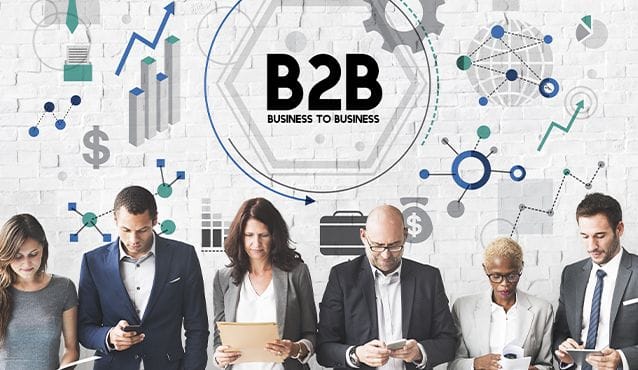
**What is Venzi.ai?**
Venzi.ai is an AI technology platform engineered to help B2B marketers run their events. Through its sophisticated machine learning methods, Venzi.ai provides marketing assistance to professionals in three main areas:
* Discover high-intent prospects
* Personalize outreach at scale
* Automate pre- and post-event engagement
* Measure ROI more accurately
Through its services, Venzi.ai assists B2B companies in enhancing their show performance between trade shows and digital conferences.
### **1\. Hyper-Targeted Attendee Discovery**
Event marketing for B2B experiences faces its most significant obstacle when identifying suitable participants for the event. Through intent data processing and predictive analytics, Venzi.ai helps companies detect professionals and businesses most inclined to interact with their events.
Through digital channel analytics of behavioral patterns, Venzi generates high-quality potential customers that match your ideal customer profile (ICP). The result ensures your audience selection becomes more precise because guesswork no longer exists.
Your outreach potential gets significantly boosted when Venzi.ai separates 1,000 focused prospects from a general list of 10,000 clients who research your competitor space and industry niche.
**2\. Personalized Outreach at Scale**
Audience identification follows the identification of the correct audience segment. Recipients routinely dismiss most cold emails and generic LinkedIn messages. Venzi.ai applies AI-generated text content and personalization engines that produce communications that match individual prospect requirements and their technical problems.
By processing historical data together with dynamic content, Venzi.ai produces personalized communication across emails, LinkedIn initiatives, and advertisements that appear personalized even when reaching a large audience.
Research shows that personalizing event invitations leads to RSVP responses from more than 60% of your audience, according to modern B2B marketing reports.
**3\. Smart Event Engagement Workflows**
The event phase discovers multiple AI applications which boost attendee participation among the audience. Venzi.ai combines capabilities with CRM systems, webinar solutions, and event management platforms to monitor real-time participant activities through their session attendance lengths and question submissions.
The collected behavioral information allows for automatic lead scoring and generates recommendations for next actions, including follow-ups, targeted offers or nurturing sequences.
The tool sends instant alerts to your sales personnel when senior stakeholders watch a product demonstration and access a whitepaper at an event.
**4\. Post-Event Follow-Up and Lead Nurturing**
The event closure represents what initiates the future sales process. Standard follow-up strategies have challenges since marketers normally distribute generic "Thanks for attending" messages after events. Venzi.ai revolutionizes follow-up procedures through scalable sequencing protocols that target each attendee's specific interests and user interactions.
The system automatically segments leads into specific categories while creating tailored messaging for each segment, and afterwards, it distributes leads to the proper sales representative. The result? The system generates faster responses and numerous conversations that produce shortened sales durations.
**5\. Real-Time Analytics and ROI Tracking**
Proving ROI is a special priority in B2B marketing when it comes to event activities that require large investments of time and budget. With Venzi.ai, users get instant dashboard reports that demonstrate the complete performance metrics of their event, presenting the following information:
* Registrations vs. attendance
* Lead engagement scores
* Conversion rates
* Pipeline value generated
It doesn't stop there. Marketers using Venzi.ai benefit from its functionalities, enabling cross-event and channel performance analysis to aid better decision-making for the next campaigns.
The Bigger Picture: What AI Means for B2B Event Marketers
---------------------------------------------------------
AI provides much more than being a mere tool since it delivers strategic benefits to businesses. The B2B event marketing process undergoes complete transformation through Venzi.ai, which turns manual operations into a data-optimized growth engine for B2B events.
The upcoming scenario reveals itself as follows:
* The predictive targeting approach helps events attract better-quality leads to the event.
* The combination of AI-based features produces increased attendance levels because of customized interactions for users.
* Sophisticated workflows connected with automation enable organizations to maximize their resource potential.
* A system for improved sales alignment uses instant lead evaluation and monitoring functions to maximize performance.
* Companies should accelerate the process of reporting returns on investment from events to demonstrate actionable value metrics for every event.

**Final Thoughts**
Today's Standout success requires every company to provide meaningful, personalized event experiences due to universal digital noise. Internet-based technology helps B2B marketers operating through [Venzi.ai](https://venzi.ai/blog/ai-powered-sustainable-event-management-venzi-ai/) accelerate their work while improving efficiency and generating superior conversion rates.
The time to utilize Artificial Intelligence for B2B event marketing has arrived as a strategic enhancement service rather than a substitution tool.# FAQs
Q: What is Venzi.ai?
A: Venzi.ai is an AI-powered platform designed to optimize B2B event marketing by improving lead targeting, engagement, and ROI through automation and analytics.
Q: How does AI improve B2B event marketing?
A: AI helps by identifying high-intent leads, personalizing outreach, automating follow-ups, scoring attendees in real-time, and tracking ROI more effectively.
Q: Can Venzi.ai be used for virtual and in-person events?
A: Yes, Venzi.ai supports both virtual and in-person events, offering tools for engagement, tracking, and personalized communication across formats.
Q: How does Venzi.ai personalize outreach?
A: It uses behavioral data and AI-generated content to create tailored messages for each lead, making outreach more effective and increasing attendance.
Q: What kind of ROI can I expect with AI-powered event marketing?
A: Businesses using platforms like Venzi.ai often see higher-quality leads, better engagement rates, faster follow-ups, and a measurable increase in pipeline value.
---
This blog is powered by Superblog. Visit https://superblog.ai to know more.
---
## How AI is Revolutionizing Sustainable Event Management: The Venzi.ai Approach
Author: Unknown
Published: 2025-04-04
Category: Event Technology
Meta Title: AI for Sustainable Events: Venzi.ai Leads the Future
Meta Description: Discover how Venzi.ai uses AI to power sustainable event planning, reduce waste, optimize logistics, and enhance green practices from start to finish.
Tags: Sustainable events, Green event planning
URL: https://venzi.ai/blog/ai-powered-sustainable-event-management-venzi-ai
Introduction
------------
The worldwide events industry faces a major transformation because sustainability now represents a duty over a personal decision. The event planning industry traditionally carried heavy resource consumption, a significant carbon footprint, and high waste generation, but now it is adopting advanced technology to achieve green efficiency. The transition to sustainability in event management receives its driving force from Artificial Intelligence (AI), which helps planners increase efficiency and make optimized choices throughout every step of event functioning.
Venzi.ai is an industry leader because it incorporates AI-based sustainability features throughout the event production sequence. Artificial Intelligence influences every step of event organization, from planning to logistics to energy monitoring and post-event reporting, to transform modern professional gathering management beyond 2025.
Understanding the Environmental Impact of Traditional Event Management
----------------------------------------------------------------------
Every solution requires a clear understanding of the environmental difficulties linked to traditional event management.
* Thousands of printed brochures, flyers, tickets, and banners end up as waste after they serve only one purpose.
* Carbon emissions stem heavily from event-related shuttle transportation and delivery of materials and devices as well as the energy requirements of venues, which both produce air pollution and climate change effects.
* Environmental damage occurs from ordering excessive food and materials that exceed usage needs and under-utilizing catering and decoration materials.
* Event organizers currently struggle with insufficient tools to track sustainability metrics since they cannot monitor and report environmental impact data.
Sustainable event management has become mandatory because climate change speeds up while public awareness about environmental issues rises.
How Artificial Intelligence Enables Sustainable Events
The implementation of Artificial Intelligence transforms the process of planning green events. AI systems bring automatic precision, which helps decrease waste production alongside effective resource consumption and improve visitor satisfaction. [Venzi.ai](https://venzi.ai/blog/tailoring-attendee-experiences-event-technology/) and similar platforms occupy leadership positions by implementing these changes:
### 1\. Predictive Analytics for Smart Resource Allocation
AI analyzes historical data from event records and online visitor conduct to predict attendance numbers together with resource requirements while modelling participant actions. This helps planners:
* Preventing supply chain blockages helps organizations avoid wasted fuel and excessive time consumption.
Event planners can modify catering and transport needs according to predicted attendance levels by using 20% to evaluate expected low numbers due to weather forecasts and past attendance statistics.
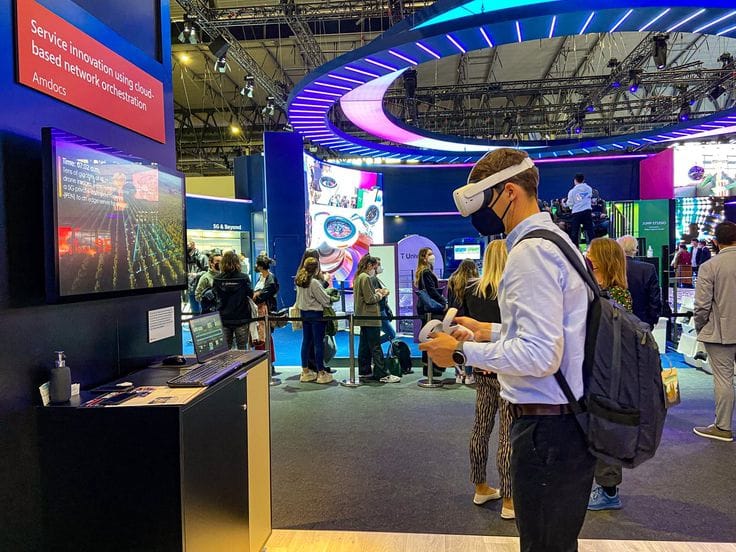
#### 2\. Digital-First Event Communication
The use of AI enables event organizers to transition their communication systems from traditional print methods to entirely digital operations because of:
* Email drip campaigns
* Smart mobile apps
* QR code-based ticketing and check-in
* Virtual programs and schedule
This measure diminishes paper use and allows events to adapt more efficiently. Apps receive real-time updates that allow users to view them instantly because printed materials cannot display this functionality.
#### 3\. Greener Transportation Coordination
The emissions from event transportation rank among the top sources of pollution in modern event management. Using AI, organizers can:
* Event administrators should present alternative carpooling choices to participants who use their geographical registration information.
* Recommend public transit routes.
* Create partnerships with environmentally-friendly hotels nearby and establish a shuttle system that connects venue visitors with such establishments.
Venzi.ai employs behavioral data and geolocation information to create individualized recommendations, decreasing the requirement for single-occupant driving activities and associated pollution.
#### 4\. Real-Time Venue Energy Optimization
The venue's infrastructure allows AI to manage its lighting functions, HVAC systems, and electrical utilization in real-time. This ensures:
* All vacant rooms receive complete darkness from power shut-offs.
* The facility adjusts heating or cooling functions according to the current number of guests present.
* Electronic components go into a power-off state whenever the devices are not operational.
The AI-driven server load balancing of virtual and hybrid events reduces digital energy consumption, making the event environmentally friendly for real and online visitors.
#### 5\. Post-Event Sustainability Reporting
AI demonstrates its greatest capability through its ability to analyze sustainability data using an analytical system driven by data. Users of Venzi.ai gain access to specific reports containing extensive data about event performance:
* Energy consumption per day or attendee
* Total waste generated and recycled
* Water usage metrics
* Transportation-related emissions
* Audience engagement and digital interaction rate
The openness of data collection remains essential for improving future events and earning a reputation among environmentally conscious stakeholders.
### Business Benefits of Sustainable Events
The implementation of sustainable events leads businesses toward improved performance results. A green approach brings both eco-friendly benefits to nature and profitable advantages to the business world. Eco-conscious events:
* Your organization will gain a better brand reputation and establish itself as an industry leader in sustainability practice.
* Appeal to younger, value-driven demographic.
* Attract eco-aligned sponsors and partners.
* Your business will comply with environmental regulations to avoid penalties and restrictions.
* Companies can lower their prolonged expenses using energy-efficient methods and smart resource management strategies.
The Year 2025 will see sustainability emerge as an essential factor creating brand market advantages because AI provides a system enabling wide-scale implementation and measurement of sustainability strategies.
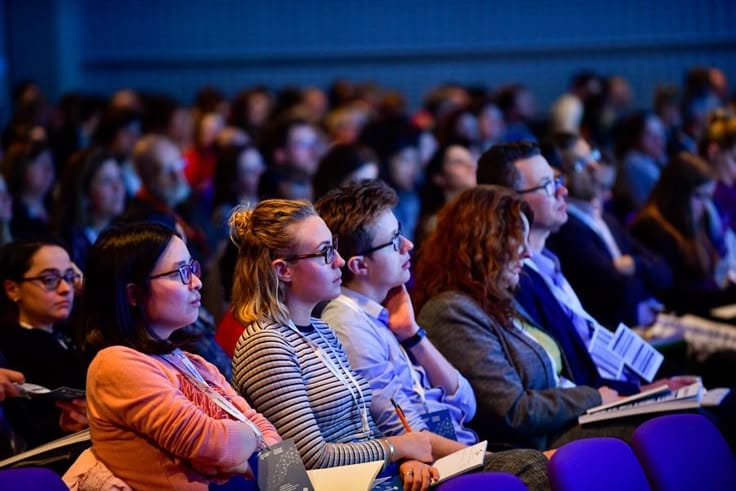
### Venzi.ai: Pioneering the Future of Sustainable Event Tech
Venzi.ai is a sustainable event solution because it handles planning and offers intelligent functions to achieve eco-friendly outcomes. Venzi.ai enables event professionals through the following features:
* Zero-waste communication only works through automatic workflows that personalize messages to users.
* The smart planning features of the platform manage forecast tracking and resource allocation adjustment.
* Green logistics coordination through attendee insights and smart mapping.
* The AI-generated engagement strategies create plans to skip unwanted promotional products or giveaways.
* Sustainability dashboards for real-time performance monitoring.
Your event will become impactful and sustainable thanks to Venzi.ai, regardless of its physical format, which includes virtual launch events, hybrid conferences, and in-person summits.
### What the Future Holds
The direction of event planning will transform because of ongoing artificial intelligence developments in the coming years.
* Through machine learning technology, the personalization of attendee experiences becomes possible at a higher level.
* Through Natural Language Processing (NLP), event communication will become better, and accessibility will improve.
* AI-based matching technology improves networking quality by reducing traditional printed materials.
* Blockchain integration offers transparency when it comes to sustainable sourcing documentation as well as certification verification.
Venzi.ai platforms are now crucial because organizations face mounting ESG expectations and mandatory carbon emission reductions.
### Conclusion
Events will become smarter and more sustainable while completely controlled by artificial Intelligence. Event professionals who implement environmentally friendly artificial intelligence-driven innovations will achieve waste reduction along with cost reduction and enhanced guest experiences. Venzi.ai is a leading organization in green event technology that supports this purposeful movement, enabling responsible planning and sustainable business development through its purposeful mission.
The first step in planning an event that combines smarter operations with cleaner practices and futuristic technology is artificial Intelligence. Start with [Venzi.ai](https://venzi.ai/).# FAQs
Q: What is sustainable event management?
A: Sustainable event management involves organizing events in an environmentally responsible way, reducing waste, conserving energy, and minimizing carbon footprint.
Q: How does AI support sustainability in event planning?
A: AI helps optimize resources, predict attendance, coordinate green logistics, reduce waste, and monitor energy use, making event planning more efficient and eco-friendly.
Q: What makes Venzi.ai different in sustainable event tech?
A: Venzi.ai offers AI-driven tools for predictive analytics, real-time energy management, smart logistics, and sustainability dashboards for comprehensive green event planning.
Q: Can Venzi.ai be used for virtual and hybrid events?
A: Yes, Venzi.ai supports in-person, hybrid, and virtual events with energy-efficient digital solutions and intelligent engagement strategies.
---
This blog is powered by Superblog. Visit https://superblog.ai to know more.
---
## Tailoring Attendee Experiences in Event Management: Technology's Role in Event Management.
Author: Unknown
Published: 2025-04-02
Category: AI in Events
Meta Title: How AI & Tech Personalize Event Management | Venzi.ai
Meta Description: Discover how AI and event technology transform event management with personalized experiences, smart networking, and tailored agendas for better engagement.
Tags: AI event management, event automation, Event personalization, smart event planning
URL: https://venzi.ai/blog/tailoring-attendee-experiences-event-technology
Participants at today's events demand more than basic services can fulfil their needs. People who participate in events demand specialized experiences that match their interests with adjectives and choices. Personalized event planning serves as the crucial solution for this need. Organizations should use technological systems to generate custom events, which enhances audience participation, thus producing better outcomes for host organizations and their investment returns.
**The Importance of Personalized Attendee Engagement**
------------------------------------------------------
Modern event guests no longer accept observing events as bystanders because they require firsthand experiences that personally affect them. The combination of personalized engagement produces memorable events that simultaneously improve audience retention rates. Combining artificial intelligence-generated insights with automated solutions and data analysis tools from technology helps event planners fulfil attendees' expectations.
Guests at customized events experience better attendance because they connect more, strengthening their involvement. Improving the host's reputation and enhanced brand recognition generate better business opportunities.
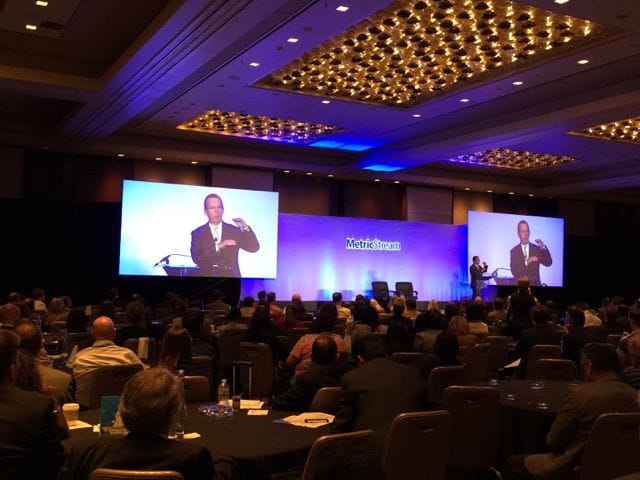
**Technology now shapes how event hosts customize events according to their attendees.**
**1\. Personalized Registrations and Invitations**
Standard invitation systems, along with standard registration procedures, fail to capture effective interest from attendees. Standard invitations fail to show personalized characteristics because they do not address specific preferences or past participation history.
Event attendees can enjoy personalized event destinations through registration tools that let them choose their preferred session speakers and subject matter. Event organizers can enhance attendance rates through previous data analysis that allows them to send invitation messages based on each individual's attendance history and personal choices. Such event planning methods boost participant engagement levels, thus producing more valuable event experiences.
**2\. AI-Driven Smart Scheduling and Agendas**
A common problem occurs when attendees struggle to discover appropriate sessions at bigger events, causing important opportunities to pass unnoticed and attendee frustration to arise.
A scheduling system that combines AI technology enables the analysis of participant behavior, which generates personalized schedules based on participant preferences. The program provides attendees with live protocol-based recommendations for choosing sessions because it helps them get the best value from the conference. The system decreases information overload and enhances time management capabilities through its functioning.
**3\. Enhanced Networking Features with AI Matchmaking**
The primary problem stems from attendees who avoid networking opportunities due to weak contacts or intuitiveness when starting conversations with suitable contacts.
Business participants can use artificial intelligence-based matching systems that form connections between individuals with similar occupational interests, professional objectives, and industrial backgrounds. Smart networking platforms support audience members in meeting people within their professional interests, expanding the benefits they get from event attendance—engagement benefits from AI-driven chatbots, virtual networking lounges, and meeting suggestion tools based on personal preferences.
**4\. Relevant and Engaging Event Content**
Many events lose attendee engagement because their basic content material does not absorb attendees enough.
Event organizers use modern technology to create content that matches their attendees' choices. Through interactive elements, push notifications, and in-event messages with polls and quizzes coupled with individual session recommendations, event organizers sustain attendee engagement throughout the event. The event organizers can provide members with customized presentation materials, backstage tour benefits, and limited-time discounts only members can access.
**5\. AR with VR technology provides people with customized events**
Available event formats often fail to deliver the deep engagement levels which attendees expect during their attendance.
Event participants experience transformation through Augmented Reality (AR) and Virtual Reality (VR) technologies, which develop interactive environments. The application of these technologies enables attendees to experience highly dynamic and interesting interactions during virtual sessions. Both AR-powered event guides provide real-time directional capabilities, and virtual Reality allows remote attendees to have a virtual presence at the event in real-time.
**6\. Customized Follow-Ups and Post-Event Engagement**
Many events lose their audience post-event connection, which could lead to sustained relationships because they do not follow up on attendee interaction.
Event organizers should use personal emails, session recordings, curated content, and AI to recommend future events for post-event engagement improvement. Data analytic tools can study audience conduct, leading event planners to make optimized plans for future events through preference analysis. Events gain extended outreach through social media by sharing valuable updates that include cited testimonials, event highlights, and unique post-event content.
**How Venzi.ai Elevates Event Personalization**
-----------------------------------------------
Venzi.ai develops AI-powered personalization solutions for events, which help event organizers build more meaningful and interactive programs. Event management has become more efficient due to automation and AI analysis, which Venzi.ai provides to achieve impactful results.
### **Key Features of Venzi.ai:**
* Each participant receives personalized event opportunities for agenda content and networking events according to their interests and historical engagement activities.
* System-driven Interaction Tools improve event participant communication, including real-time alerts and automatic messaging through AI-enabled customer support.
* The platform enables event planners to monitor engagement data, session performance, and participant activities to enhance their following event preparations.
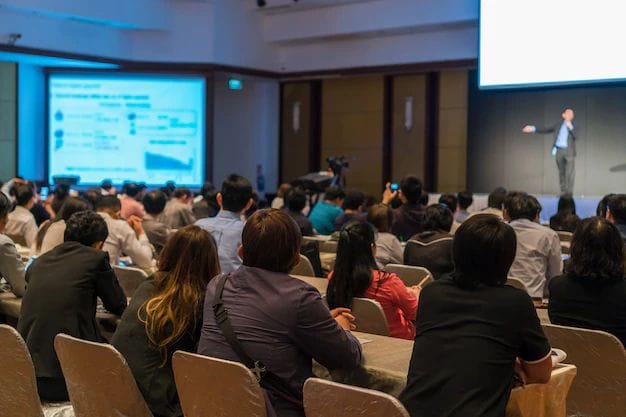
**The Future of [Event Personalization](https://venzi.ai/blog/event-data-analytics-the-advantages-ai-technology-offers-when-planning-an-event-cm8skt4s4000wdo5mwslhqtlb/)**
Personalized events are the future direction in which event planning will take shape. Events utilizing advances in AI along with machine learning and immersive technology systems now enable event planners to create personified experiences that keep participants actively involved.
Planners implementing smart event technologies guarantee that all participants will experience a distinctive, attractive, and worthwhile encounter. The industry's growth will require companies to implement AI solutions such as Venzi.ai to continue delivering high-quality events that focus on attendees.
---
This blog is powered by Superblog. Visit https://superblog.ai to know more.
---
## Event Data Analytics: The Advantages AI Technology Offers When Planning an Event
Author: Unknown
Published: 2025-03-28
Category: Event Planning & Management
Meta Title: How AI Transforms Event Planning with Data Analytics
Meta Description: Explore how AI-powered event data analytics enhances attendee engagement, optimizes budgets, and improves event ROI with Venzi.ai's smart solutions.
Tags: VenziAI, EventAnalytics, EventROI, SmartEventManagement
URL: https://venzi.ai/blog/event-data-analytics-the-advantages-ai-technology-offers-when-planning-an-event-cm8skt4s4000wdo5mwslhqtlb
Recent years have proven that the event management field has dramatically changed because organizations increasingly depend on data analytics and artificial intelligence (AI). Organizers now possess sophisticated tools to evaluate event effectiveness because survey techniques have become outdated. AI analytics lets organizers base their decisions on accurate data, improving event engagement rates, financial strategy, and overall results.
Through performance tools developed by Venzi.ai, users can analyze event data directly from the source to optimize their event tactics and boost their event results. The article examines the primary advantages of event data analysis and the transformative power of AI technology when planning events.
**Why Is Event Data Analytics Important in [Event Planning](https://venzi.ai/)?**
---------------------------------------------------------------------------------
**1\. Understanding Attendee Behavior**
**The Issue:**
The traditional surveys and reports measuring attendee engagement after events usually deliver inconsistent data results. Normal event data collection methods lack immediate information about audience engagement, so organizers find it hard to identify which parts of their events attract their participants most.
**How Venzi.ai Helps**:
Venzi.ai monitors attendee real-time activities through AI analytics, which provides data on participant numbers across sessions, engagement, and metrics for event activity durations. By analyzing this information, organizers can recognize popular parts of their event, which will help them create superior programs in upcoming events by understanding attendees' desires.
**2\. Measuring ROI and Event Performance**
**The Issue:**
Accurate return on investment (ROI) measurement is a top obstacle event organizers encounter during their operations. Event financial success cannot be measured properly by counting ticket sales alone. Event organizers must measure engagement statistics and their ability to generate new leads and convert them to check how their programs perform.
**How Venzi.ai Helps:**
The AI tracking systems of Venzi.ai examine participant behavior together with the outcomes of lead fostering and conversion path completion. Event organizers receive in-depth measurements from the platform for event profitability assessment, enabling them to adjust their strategies optimally for higher future profitability outcomes.

**3\. Venzi.ai employs AI analytics to enhance event marketing activities**
**The Issue:**
Event marketing is vital for attracting appropriate audiences since numerous organizers face challenges when creating promotional campaigns that drive substantial audience interest. Marketing initiatives become ineffective when data analysis fails because they miss the target audience, resulting in poor attendance numbers and wasted funding.
**How Venzi.ai Helps:**
The AI analysis provided by Venzi.ai evaluates audience population metrics, social media response metrics, and email response statistics. Organizers gain the ability to develop more focused marketing approaches while targeting particular audience groups more effectively through this system. Through AI analytics, the system helps identify promotional channels that bring the best possible returns from marketing investments.
**4\. Optimizing Budget Allocation for Events**
**The Issue:**
Event administration faces regular problems with budget control. Event organizers allocate their funds to unessential items but fail to allocate adequate resources to essential areas that would improve guest satisfaction. Spendings that exceed expectations result in financial losses and dissatisfied event participants.
**How Venzi.ai Helps:**
Through predictive analytic methods, Venzi.ai simplifies the process of budget distribution. The platform uses event data analysis to detect which costs make the biggest impact on achieving event success. The organized fund distribution enables event managers to optimize their money use so that every dollar directly enhances the complete event quality and profit enhancement.
**5\. Venzi.ai enables businesses to maintain industry awareness through AI-based analytical data monitoring.
**
**
The Issue:
**
Guest preferences within the industry show constant evolution since the events sector operates dynamically. Organizational failure to maintain up-to-date knowledge about rising trends leads to hosting events that lose their appeal or their ability to attract target audience members.
**How Venzi.ai Helps:**
The system at Venzi.ai uses continuous analysis of industry patterns, audience conduct, and competitor event data to give live knowledge to clients. The system provides event planners with advanced capabilities to make forecasts and use new ideas they can use for their events to stay contemporary and exciting. Event organizers can prevent curbed customer engagement with AI insights, which help them implement virtual reality, hybrid events and tailored attendee experiences.

**The Future of Event Planning With AI**
----------------------------------------
AI technology creates transformative changes for event planning operations while evaluating the results of executed events. Implementing AI analytics technology at event planning stages allows organizers to achieve three main advantages.
### Event planners can access more profound information about how attendees behave
* Improve engagement strategies
* Optimize budget allocation
* Enhance marketing effectiveness
* Stay ahead of industry trends
Venzi.ai leads the revolution by giving event organizers analytic tools to process unprocessed information into practical knowledge. The competitive edge that AI-driven event analytics provides involves monitoring attendee engagement metrics, evaluating the event's ROI, and optimizing marketing tactics.
**Final Thoughts: Invest in AI for Smarter [Event Planning](https://venzi.ai/blog/event-management-challenges-solutions/)**
Organizers in the digital era must use data for event planning because it represents a mandatory need. The analytics capabilities of artificial intelligence systems enable event planners to make wise decisions, thus creating meaningful gatherings that result in successful outcomes for their events. Event planners who utilize Venzi.ai gain access to the complete AI capabilities which help optimize their strategies and create outstanding event experiences.
Organizations which plan upcoming events should leverage AI analytics systems to improve their results. Learn about AI-powered event transformation through Venzi.ai by contacting them to discover the path toward success. The future of event planning belongs to Artificial Intelligence, which provides exceptional results to those who adopt this technology.# FAQs
Q: How does AI improve event planning?
A: AI enhances event planning by analyzing attendee behavior, optimizing budgets, improving marketing efforts, and providing real-time insights to maximize engagement and ROI.
Q: Can AI help increase event attendance?
A: Yes, AI-powered analytics help target the right audience through data-driven marketing, ensuring higher attendance and improved engagement.
Q: How does Venzi.ai track attendee engagement?
A: Venzi.ai monitors real-time interactions, session participation, and engagement metrics to provide a comprehensive analysis of attendee behavior.
---
This blog is powered by Superblog. Visit https://superblog.ai to know more.
---
## The Greatest Issues in Event Management and the Solutions Offered by Venzi.ai
Author: Unknown
Published: 2025-03-18
Category: event managment
Meta Title: Top 12 Problems with Event Management and How Venzi.ai Tackled Them with AI Solutions
Meta Description: Discover key event management challenges from planning to budgeting and data security, and see how Venzi.ai’s AI-powered platform delivers smart solutions.
Tags: events, aievent, event management, venzi.ai
URL: https://venzi.ai/blog/event-management-challenges-solutions
Everyone knows that organizing an event is never easy and requires attention to many details(like engaging attendance and sorting out logistics). Entrepreneurs, marketers, and even professional event organizers grapple with issues that can annihilate the most intricately planned strategies and concepts. Luckily enough, these problems can be solved with technology. AI is one of the many technologies that Venzi.ai utilizes to solve these issues.
**Most Prevalent Event Management Problems and Their Solutions**
----------------------------------------------------------------
To grasp fully how Venzi.ai changes the events business, let's look at frequent problems that pose challenges to event organizers and how this platform offers solutions through its software and tools.
1. **The Challenge:**
A successful event requires vendors, attendees, and sponsors to collaborate across the value chain. Gaps in communication, delays, and inefficiencies often shatter automated processes with little or no human intervention.
**What Venzi.ai does for You:
**With [Venzi.ai](https://venzi.ai/), you can automate your event and share documents to improve the planning process. The AI scheduling service will keep everyone on the same page and reduce errors. Furthermore, request and task automation will reduce the work volume to increase overall event productivity.
2. **Lack of Engagement and Interaction from Attendees
****The Challenge:**
Many organizers of events, especially virtual and hybrid ones, have difficulty keeping attendees engaged. Low levels of interactivity lead to poor customer satisfaction and low success rates of an event.
**How Venzi.ai Helps:
**Venzi.ai profiles attendees using AI algorithms to provide personalized recommendations that improve engagement. The platform provides live Q&A sessions, chatbots, and dedicated, customizable networking features to ensure attendee participation.
3. **Lack of Marketing Events and Targeting Users**
**The Challenge:**
One of the hardest problems is the right audience for the event and registrations. Attending the market with good promotional materials attracts valuable participants but doesn't.
**How Venzi.ai Helps:**
With AI insights, Venzi.ai assists in campaign marketing events by facilitating participants and monitoring their activity. Automated email, social media, and paid advertisement campaigns are tailored to the audience to ensure quality attendance.
4. **Managing the Budget is Difficult**
**The Challenge:**
The quality of an event gets tossed around while dealing with budget constraints. Mishandling funds or overspending can lead to losing money.
**How Venzi.ai Helps:**
Venzi.ai allows real-time budgets, expenses, and costs to be tracked so event organizers can allocate funds appropriately. Using AI in financial insight saves advisors money while getting quality options.
5. **Problems Associated with Managing Hybrid and Virtual Events
The Challenge:**
Introducing hybrid and virtual events makes it easier for participants to attend but harder for organizers to deliver an uninterrupted experience. Technical difficulties, lack of audience engagement, low internet bandwidth, etc, are hindrances to success.
**How Venzi.ai Assists:**
Venzi.ai collaborates with leading providers of virtual events to ensure seamless integration. It has seamless troubleshooting, content delivery, and AI-powered interaction features to ensure participants stay engaged, whether in person or online.
6. **Analyze Event Effectiveness & Measure ROI
The Challenge:**
Many event managers struggle to determine their events' effectiveness and go beyond simple attendance figures.
**How Venzi.ai Helps:**
Venzi.ai offers comprehensive post-event reports highlighting engagement, attendee responses, and conversions. This information assists administrators in improving their approach to future
events to achieve better ROI.
7. **Speaker and Performer Coordination Issues**
**The Challenge:**
Scheduling coordination tasks become complicated primarily during large-scale events because of their scale. The occurrence of final-minute schedule changes through cancels and booking conflicts produces disruptive outcomes.
**How Venzi.ai Helps:**
AI scheduler tools within Venzi.ai optimize availability for speakers as well as performers. The platform achieves effective coordination between contributors by using automatic alerts together with real-time system alerts which reduce scheduling issues.
8\. **Difficulty in Handling Last-Minute Changes**
**The Challenge:**
Any unexpected issue ranging from vendor cancellations to weather problems or practical challenges will cause major disruptions to the event at its last moments.
**How Venzi.ai Helps:**
The AI-based contingency planning functions of Venzi.ai detects future risks through analytical capabilities before it presents backup alternatives. Real-time adaptation combined with immediate alert systems through the platform creates effective ways to handle unexpected interruptions that occur at the final moment.
9\. **Data Security and Privacy Concerns**
**The Challenge:**
The crucial need to guarantee protection of attendee data data becomes more vital because of growing digitalization. The detection of data breaches together with unauthorized access events leads to serious damage in an organizer’s reputation while creating potential legal challenges.
**How Venzi.ai Helps:**
The information of attendees receives protection from Venzi.ai through advanced security protocols which combine encryption protocols and access restriction systems. Following data protection standards supports a safe system for event management.
**10\. Vendor and Supplier Management Issues
The Challenge:**
Delivering prompt service requirements and timely product deliveries to various suppliers and vendors represents a substantial organizational challenge.
**How Venzi.ai Helps:**
Venzi.ai transforms vendor relations through its AI-based system which handles contract development and maintenance and money tracking along with assessment of supplier performance. The event management benefits from reliable vendor relations established through this system which leads to successful execution of events.
**Final Thoughts: Enhance Your Event Omnibus with [Venzi.ai](https://venzi.ai/)**
---------------------------------------------------------------------------------
Anyone understands that hosting an event can be quite complex, but thanks to Venzi.ai, it does not have to be. The platform plans and markets your event, optimizing participation and budget considerations, resulting in a successful event every time.
### Are you struggling with event management? It is time to harness the power of artificial intelligence. Head on over to Venzi.ai and elevate your events today.
# FAQs
Q: The event planning process receives enhancement through the capabilities of Venzi.ai.
A: Venzi.ai implements scheduling automation and manages tasks and document-sharing functions which optimize event planning efficiency through systematic task reduction.
Q: Does Venzi.ai operate as a tool for organizing virtual together with physical events?
A: The platform allows users to plan both in-person and virtual events because it features tools which ensure complete organizational coordination together with audience engagement throughout event execution.
Q: Does Venzi.ai provide marketing support and audience targeting functionality for users?
A: The application utilizes AI algorithms to seamlessly execute social media and email marketing as well as tailor advertisement campaigns for precise audience targeting.
---
This blog is powered by Superblog. Visit https://superblog.ai to know more.
---
## Sample Page
Author: Unknown
Published: 2025-03-17
URL: https://venzi.ai/blog/sample-page
This is a page. Notice how there are no elements like author, date, social sharing icons?
Yes, this is the page format. You can create a whole website using Superblog if you wish to do so!
---
This blog is powered by Superblog. Visit https://superblog.ai to know more.
---